

18 Do’s And Don’ts To Visiting Switzerland On A Budget
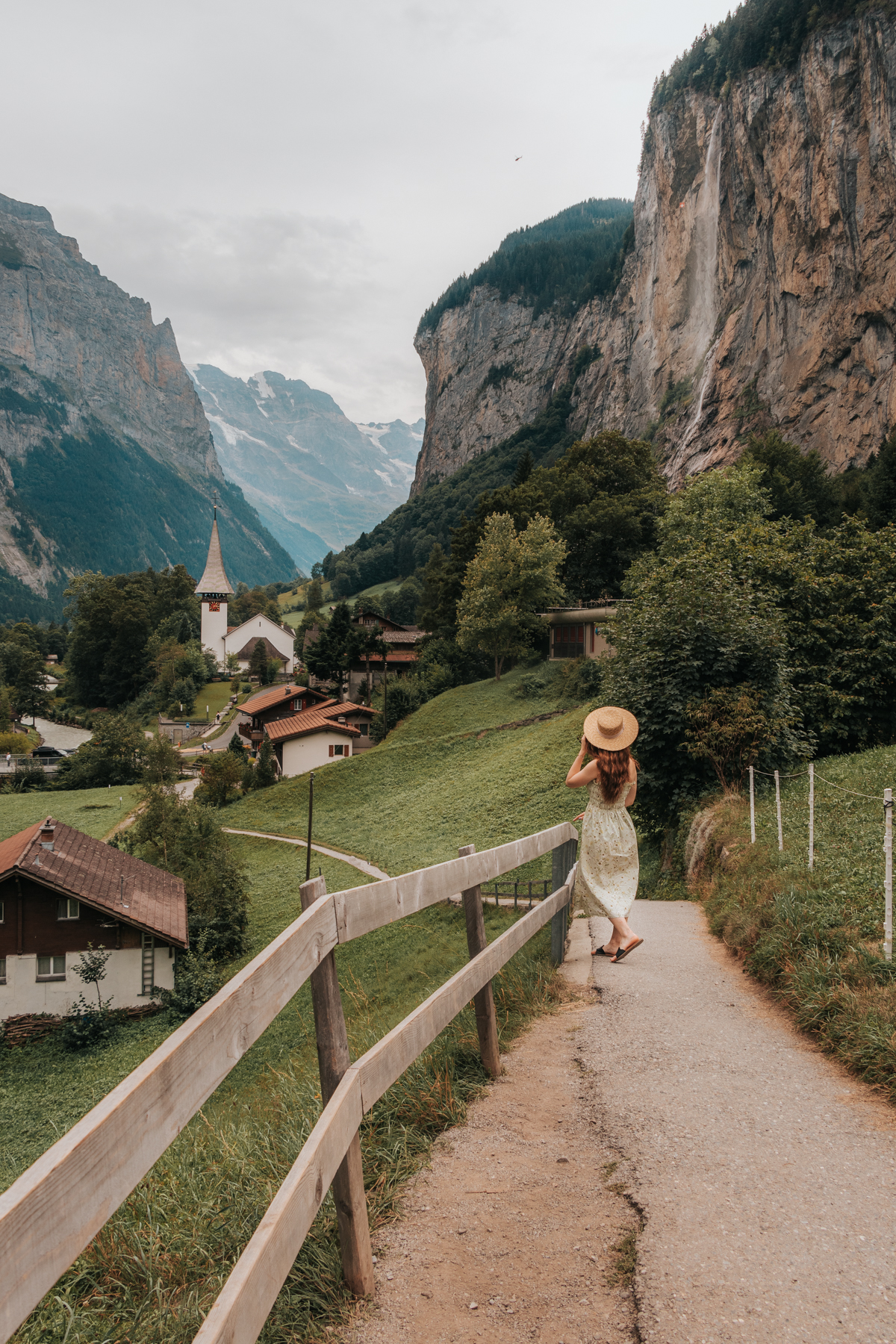
Jaw-dropping peaks, pristine green fields and wooden cabins, turquoise-blue lakes – Switzerland is easily one of the most picture-perfect destinations in Europe. It also happens to be one of the most expensive . While many scrape by backpacking the Swiss Alps, the price tags of food, transportation, accommodation and experiences make planning the average weekend getaway or extended vacation a major hit to the wallet. But you can still make your dream trip a reality while saving money – use these tips to do Switzerland on a budget .
Some of these links are affiliate links. This means if you make a purchase through that link, I receive a small commission at no extra cost to you. Read my full disclosure !
Currency in Switzerland
The currency is used in Switzerland are Swiss Francs (CHF). As of August 2022, 1 CHF equals $1.05 USD. And while the exchange rate is fairly even, the cost of living in Switzerland is completely different to most areas in the US!
To put into perspective just how much the prices can differ in Switzerland, a Big Mac and a 6-count chicken nugget meal from McDonald’s cost me 27 CHF in Switzerland. In the US, it would cost me $10!
Tips to Visit Switzerland on a Budget
Do grocery shop.
One of the easiest ways to save money in Switzerland is to live like a local! Skip restaurants and head to the grocery store to stock up on snacks, pre-made lunch goodies, and even do some normal grocery shopping if you have the means to cook at your accommodation.
While the Swiss lifestyle isn’t cheap and the prices of some things will still make you do a double take, you will still be able to find much more affordable food options here than at any restaurant or take away in the area.
Don’t Eat Out Every Meal
You’re on your dream trip to Switzerland, so it is impossible to tell you to not try the local food or have a nice meal every now and again! But if saving money is your biggest worry, then you should try to avoid eating out for every meal and instead have a plan to picnic or cook with your grocery store finds.
Do Take Advantage of Grocery Store Restaurants
My favorite Switzerland budget travel secret is… the grocery store restaurants! I discovered at least two of the major grocery store chains in Switzerland, Migros and Coop, also have their own IKEA-esque eating areas. It may sound strange but they are a budget traveler’s dream!
Some are buffet-style where you can stack your plate with as much food as you’d like for a fixed price, while others are focused on meal deals and a-la-carte items. I can guarantee you will get some of the best deals on eating out here. If you already know the stops on your itinerary, check ahead of time if these grocery stores are present and if they have a restaurant!
Do Book Hotels Early
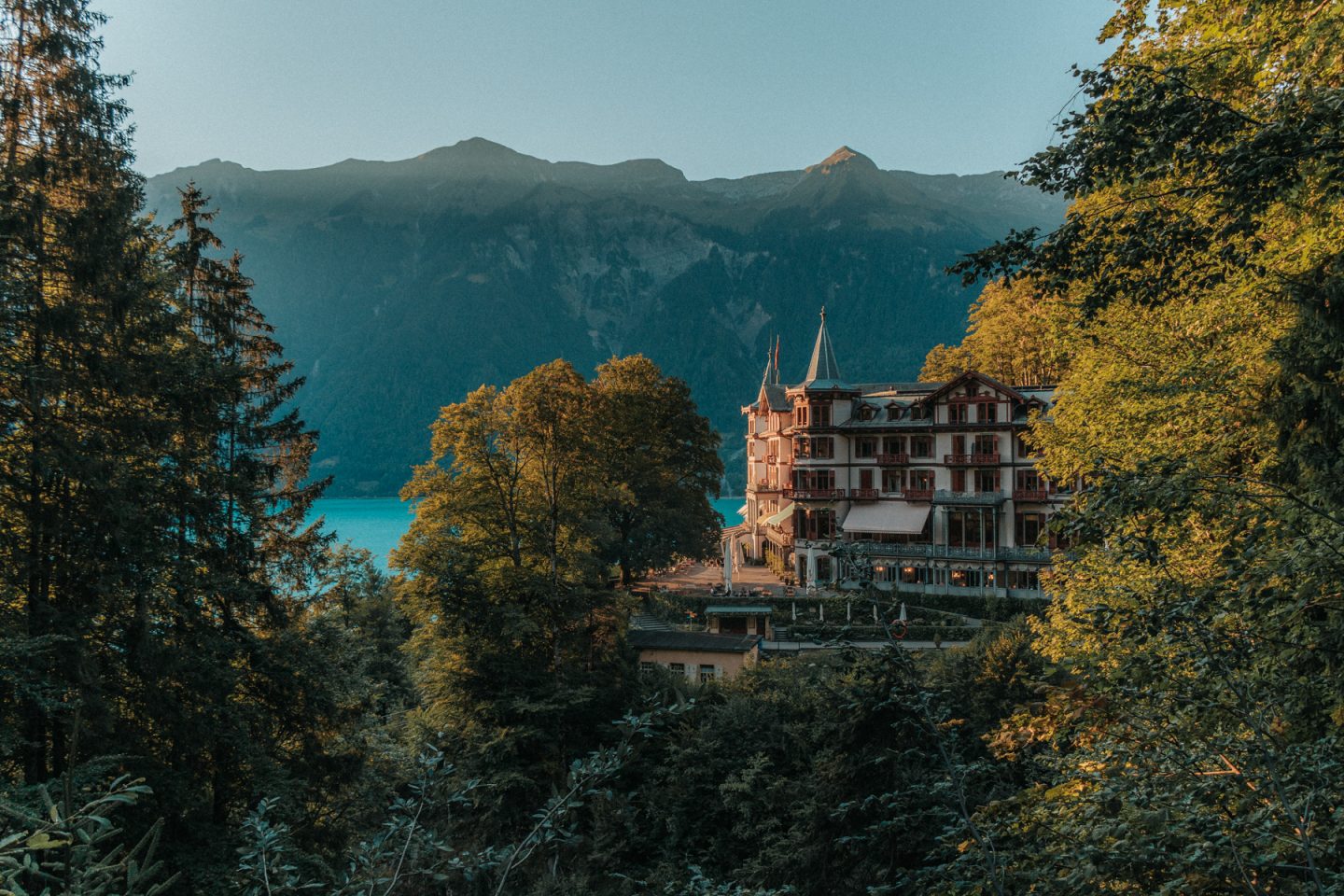
Some say that you can get crazy last-minute deals if you wait to book your accommodation immediately before your trip days, but I have not found that to be the case in Switzerland.
It may just be because of traveling during peak season, but once accommodation is getting booked up, prices rarely go down. Instead, they increase! Your only shot at testing out this method and having it work is to try a service like HotelTonight that collects discounts on lasts-minute hotels.
Good to know : You will likely have to pay a city tax at the end of your hotel visit. The amount can vary depending on the town. As an example, in Interlaken, the tax was 2.50 CHF per person/per night.
Don’t Travel to Switzerland During High Season
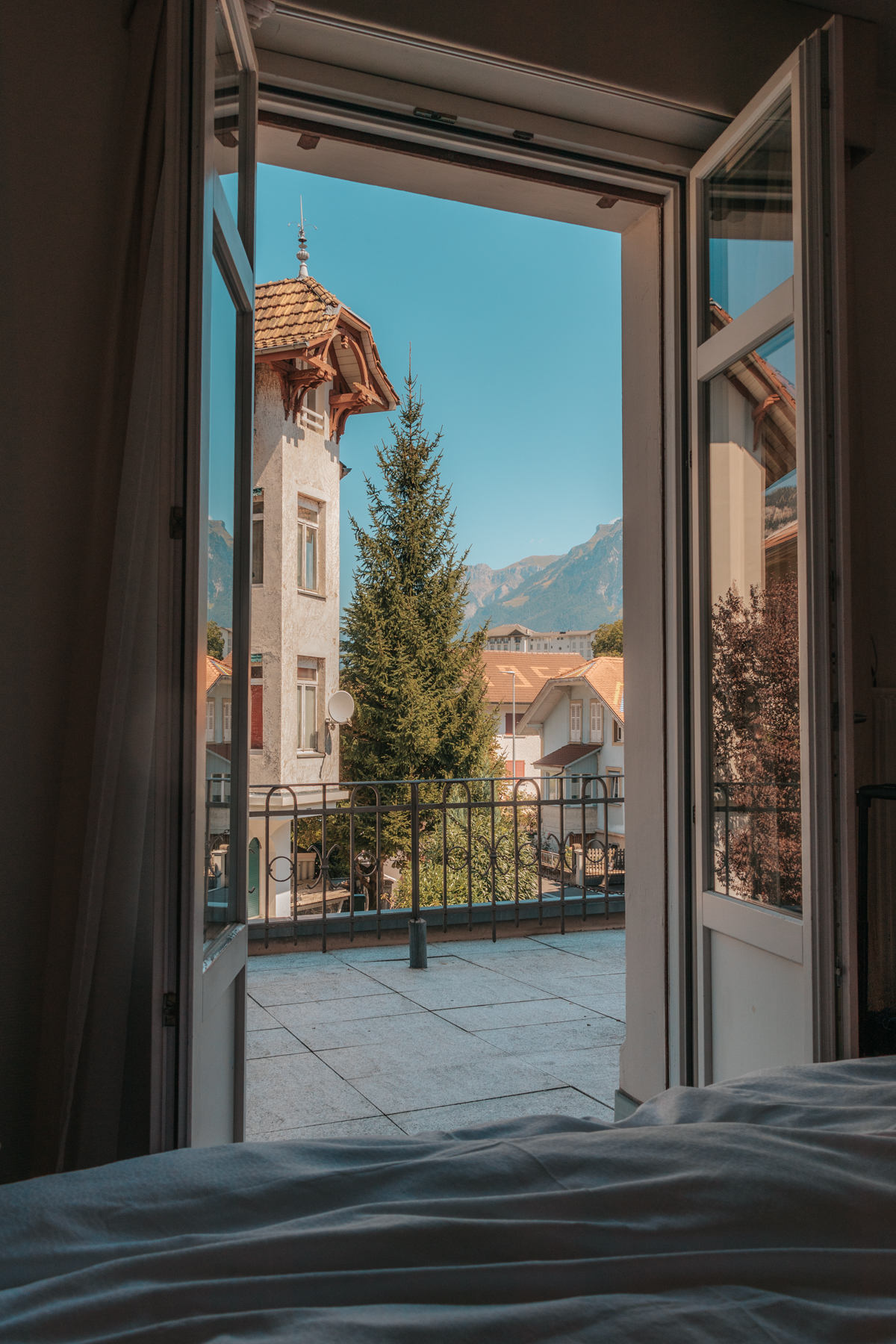
I know everybody says it, but the period in which you are traveling through Switzerland can have a huge effect on accommodation prices.
Switzerland’s peak seasons are between June-August and December-February. The most budget-friendly time to visit Switzerland is from March-April and October-November.
Pro Tip : If you are looking for Switzerland accommodation during one of the peak season periods, try to book a hotel that allows you Free Cancellation up to a certain point. Then you can frequently check back to see if any new, more affordable properties are available due to cancellations.
Do Utilize Day Trips to Save Money
Staying for a longer time in one place can often be more cost-saving than switching hotels frequently. Rates per night tend to get better the longer you are staying at a hotel. Lots of Airbnbs also give extended-stay discounts for stays over a week long.
With this travel tip, you should plan your itinerary around day trips instead of moving from place to place. Planning excursions to cities, like a day trip to Lucerne or one day in Zurich , is very easy because of the well-connected public transport network.
And to get to more remote areas like Jungfrau, for example, you can also check out day trip tours. Weigh the cost between traveling with a tour that includes the activity and transportation and DIYing your day trip to find out what’s the best deal for you.
Do Get Breakfast Included at Your Hotel
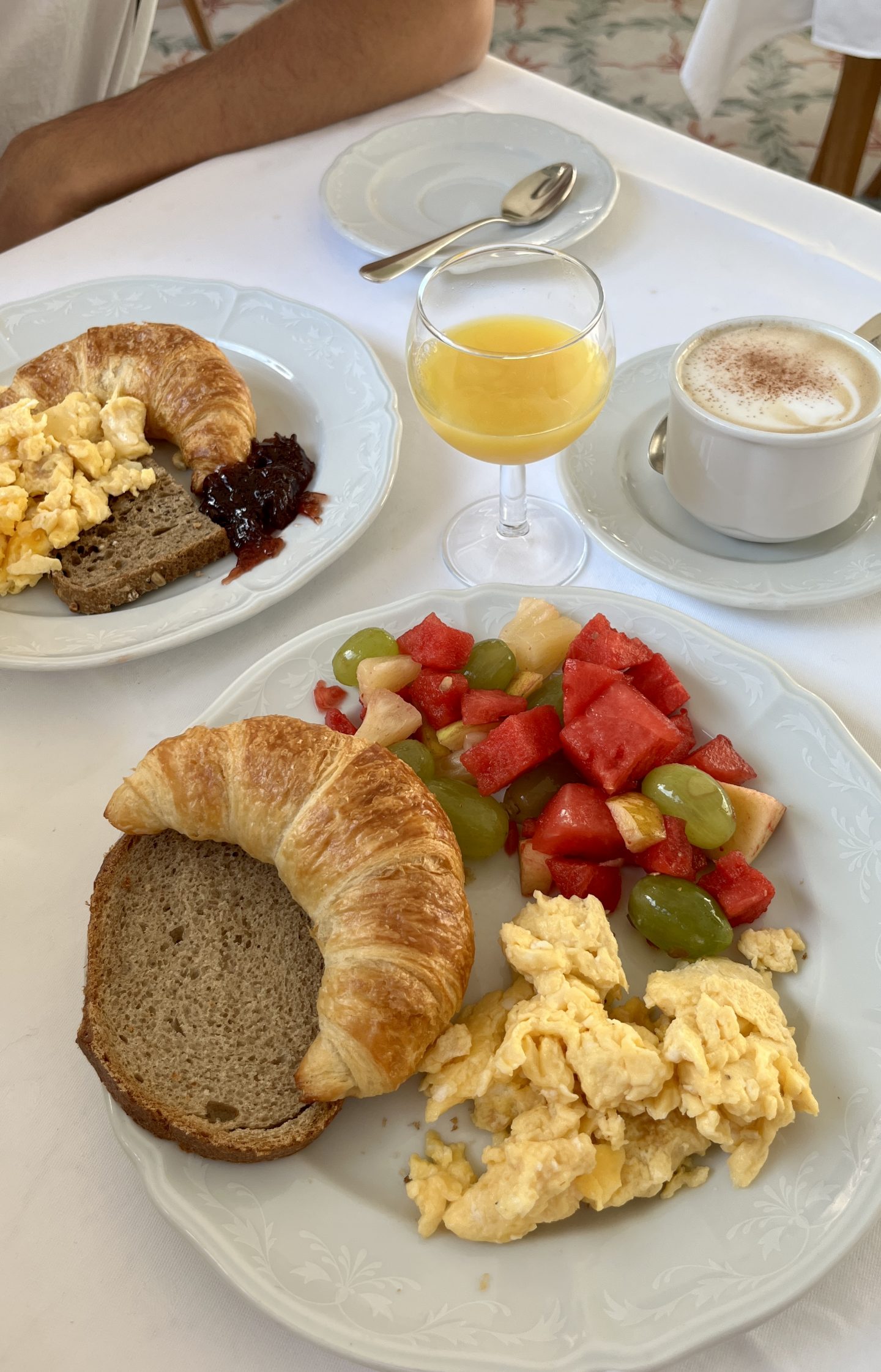
It may seem counterintuitive to spend more booking your accommodation to get breakfast included, but if you do the calculations, you will see that the price difference is usually a savings rather than a cost.
As a personal example, I spent two nights in Interlaken with my boyfriend and paid an extra 20 CHF for the two of us to have breakfast included. Just a cappuccino in Interlaken cost 5 CHF, so for the same price per person we had a full buffet breakfast each day.
Don’t Pay for Water

The beauty of the Swiss Alps? The super fresh mountain water! Many cities and rural areas are full of fountains distributing the water so that you can fill up for free!
Don’t forget to pack your favorite travel water bottle .
Do Stay at a Hostel or Campground
I know they sound like they are reserved solely for backpackers and road trippers, but there are actually options to make these accommodations adaptable to any budget-conscious traveler’s trip style!
Hostels are known to be some of the cheapest accommodation around. But you don’t need to opt for the cheapest of the cheap and board with 10 other people. Many also offer private rooms like any other hotel for a higher price, but are still more budget-friendly than standard hotels.
And did you know that even if you’re not road tripping through Switzerland with your own motorhome, you could still take advantage of an inexpensive campground?
Tons of campgrounds have their own bungalows ! These tiny houses are perfect for cheap stays. Plus, they will likely have a kitchen, which makes cooking and staying on a budget with food even easier!
Don’t Road Trip Switzerland Without Knowing These Expenses
Driving in Switzerland is a spectacular way to see the country’s incredible landscapes. It also gives you tons of flexibility in your itinerary.
But there are some fixed expenses you should note before hopping on the road. Switzerland’s toll system operates with a vignette , a small sticker that allows you access to all the highways in Switzerland. This vignette is valid for the calendar year up to January 31st of the following year, but costs 40 CHF.
Parking is another expense that can get out of control in major cities. Parking in Zurich, in particular, is very expensive (around 5-6 CHF per hour in parking garages).
And it’s also important to know the road rules in Switzerland, as fines are very high. Throughout Switzerland, there are speed cameras that you may not notice. Small towns often have very slow speed limits but it’s important not to exceed them to avoid having a fine show up in your mail weeks later due to these cameras. For more road rules, check out my guide to Driving in Switzerland .
Do Take Advantage of City Guest Cards
It pays off to do research and planning to truly do Switzerland on a budget. Luckily, Switzerland has a decent number of initiatives to promote tourism that also result in you being able to do more while paying less!
One useful hack you should look out for is city guest cards . You’ll have to look up if your specific destination offers an incentive like this, but guest cards are usually offered to travelers staying in accommodation in that city.
For example, the Interlaken guest card is available to anyone staying in accommodation in the town of Interlaken and offers discounts on stores and attractions, but most importantly, allows you to ride the public transportation for free in and around the city!
Lots of other cities do this too: Lucerne, Bern, Geneva, Basel. The Canton of Ticino even has a Ticino ticket that lets you use free public transport to explore the entire region!
Pro Tip : When deciding where to stay during your trip to Switzerland, you should also consider staying outside of major tourist areas and cities, where you’ll likely find more budget-friendly rates. I recommend during your accommodation search weighing the costs between savings on transportation and activities with a city card (if your destination has one) and staying in more remote areas.
Do Consider Buying Travel Passes
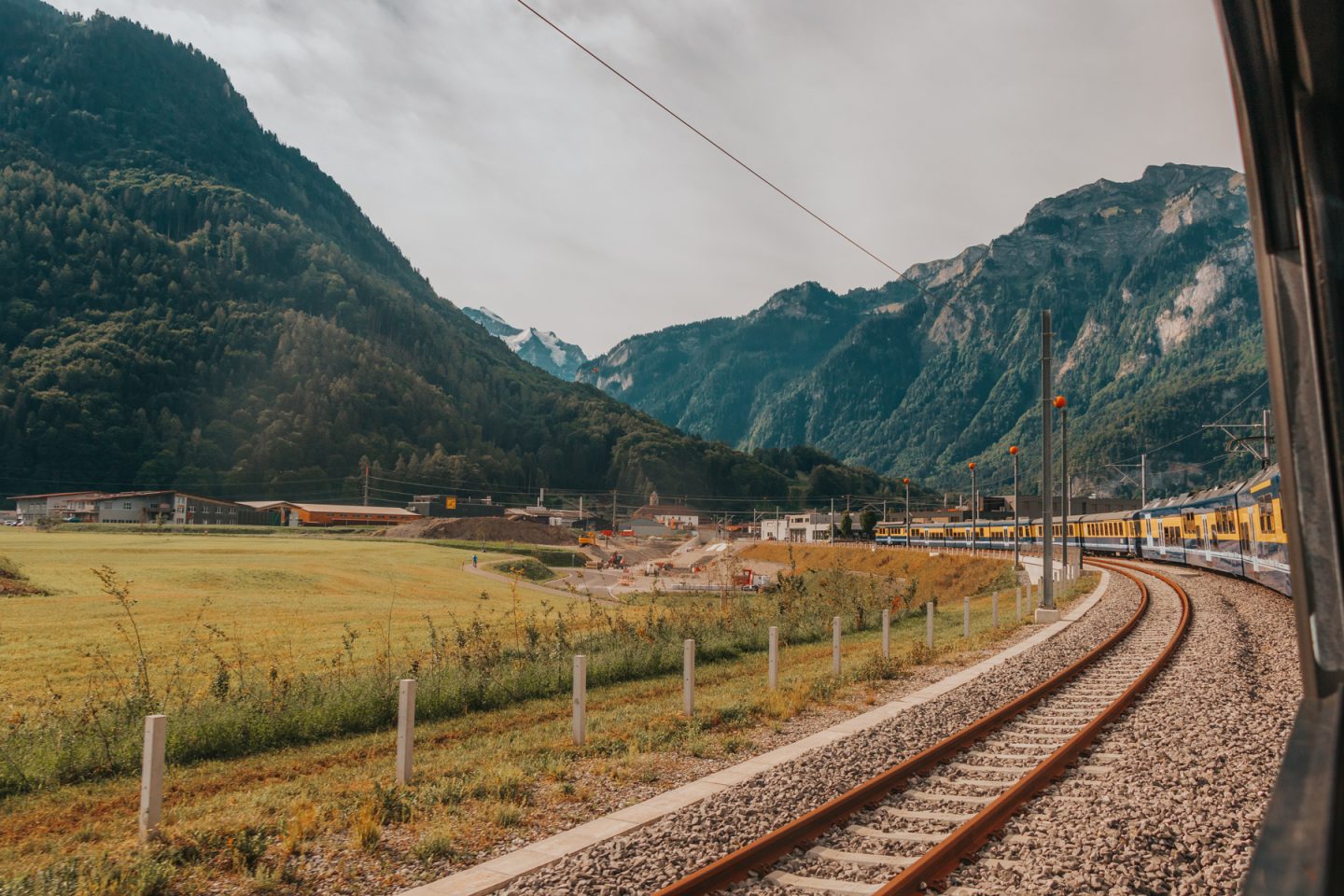
If you are planning to get around Switzerland on a budget using public transportation, you should weigh the cost of buying one of the many Swiss travel passes against paying for tickets individually to every destination on your itinerary.
The Swiss travel passes are expensive, so it is best to plan out your itinerary in as much detail as you can to understand if the price tag of the travel pass will truly save you money. Some of the travel passes offered include the Swiss Travel Pass , which comes in packages of 3, 4, 6, 8, and 15 days of unlimited travel on the public transportation network, and the Swiss Half Fare Card , which gives you unlimited 50% discounts on public transportation tickets for a year.
Pro Tip: On the Swiss Travel Pass website, use the Find The Right Pass section to start getting an idea if the pass makes sense for your itinerary and budget.
Don’t Be Too Spontaneous
Being spontaneous on vacation can lead to some unexpected amazing memories! Or, it can end up being a costly mistake.
Budget-breaker storytime : My boyfriend and I hiked from Iseltwald to Giessbach waterfalls, about an hour and a half. Well, after a strenuous, long uphill climb to these falls, we figured let’s take the bus back. We had no internet and found out the last bus passed hours ago. It was now 8 pm, the sun was due to set in 45 minutes, and our accommodation was an almost 2-hour walk and then a 15-minute bus ride away. In short, we ended up having to walk to the next town over with a train station (another hour and a half journey) and spend 20 CHF to take a train back to Interlaken.
Moral of the story? Have a plan! You don’t have to have every detail organized but, at least before you act on spontaneity, take a minute to consider what factors could have a significant impact on your budget and if you are okay with that.
Do Have a Phone Plan
We found ourselves in the previously told sticky situation mostly because we had no roaming in Switzerland on our phones, meaning we could only access the Internet via WiFi. Switzerland is not included in EU roaming, meaning using data is extremely costly.
You could either try to buy a local SIM card, rely on WiFi like us, or pay the international rate through your domestic phone plan. Buying a local SIM card is typically the perfect balance between cheap and convenient, whereas WiFi is only cheap, and paying for your international plan is only convenient.
Pro Tip: Download Offline Maps using Google Maps so that if worse comes to worst, you have a map on hand to orient yourself and get around. Also, be sure to pack a portable charger with you, especially if you plan on spending long days out away from your accommodation, like hiking.
Don’t Miss Out on Student Discounts
Youth and student discounts on travel in Switzerland can help you save on transportation and activities!
For example, young travelers from 16-24 can get a discount on the Swiss Travel Pass.
These discounts are usually found in the “Reduced” section of ticket charts. Not every activity or transport has them, but it is always worth checking ahead of time to see if you can take advantage of them and how (if you need to present a student ID, for example.)
Do Exchange Currency (But don’t do it at local kiosks!)
Most places in Switzerland accept debit and credit cards. However, one of the reasons you might prefer to pay in cash is because some restaurants and shops may use a conversion rate that is highly unfavorable.
But if you are going to exchange currency, you will almost always find the best rates at banks and post offices. You will find less favorable exchange rates at kiosks located in your destination (it literally just looks like a tourist trap) or at airports.
Check out more budget travel tips relating to using ATMs abroad and exchanging currency while traveling .
Don’t Let The Language Fool You
Surprisingly, even in places known for tourism, you will not find that many things are translated from German – menus, signs, etc. This can make it difficult to understand what you’re paying for and if it’s worth the spend.
Unfortunately, there’s not much you can do about this other than hoping you can get a hold of someone who speaks English to help you out or have a translation app on hand.
Do Have Fun with Free Activities!
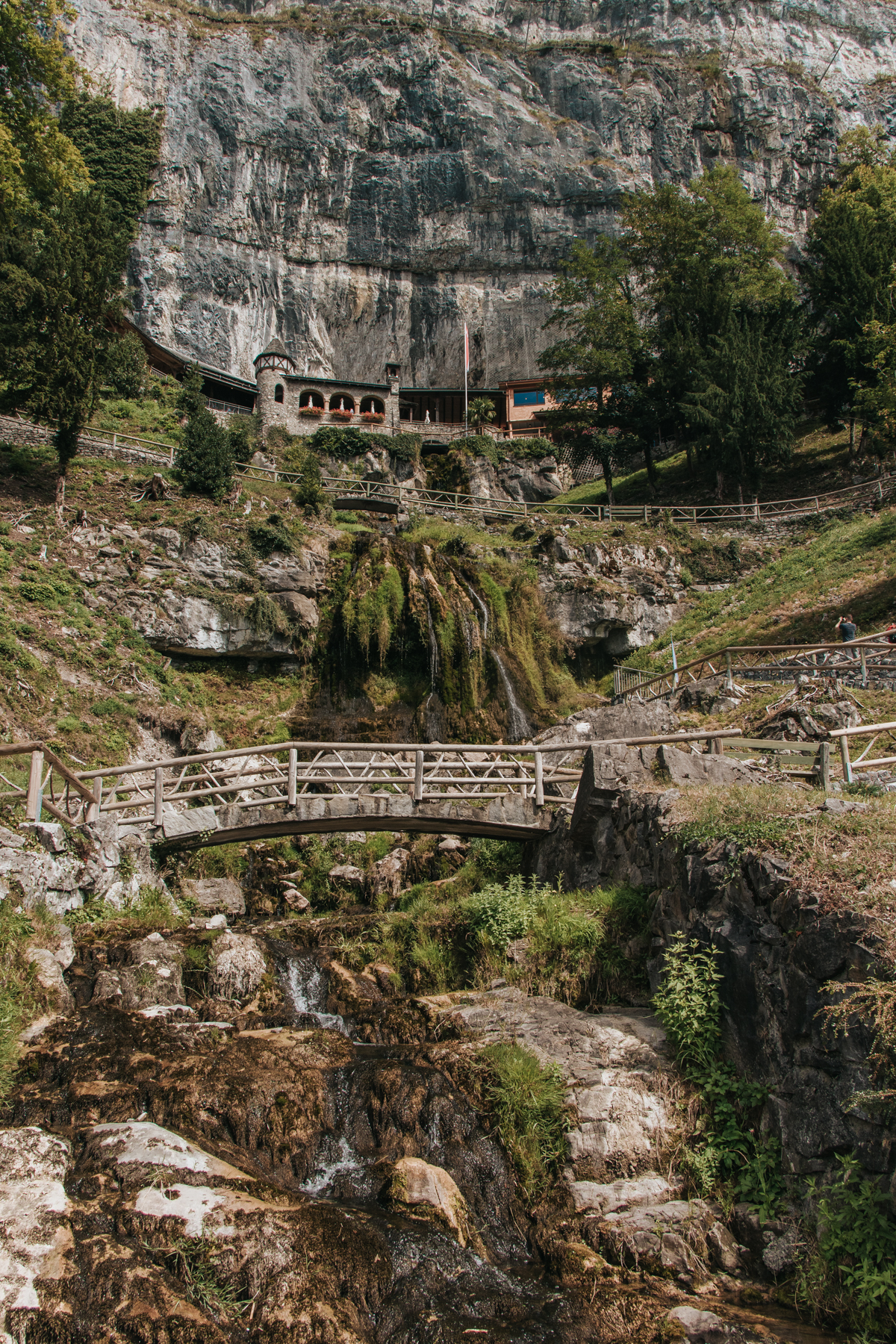
Unfortunately, lots of activities in Switzerland are expensive, both in and out of cities. But if you do some research before your trip, you’ll find that there’s also a decent number of free things to do to help curb costs and fill up your itinerary!
Switzerland Travel Budget Resources
We all know by now that planning a trip to Switzerland on a budget is no easy feat. It’s probably one of the hardest destinations in Europe. Here is a list of resources to help you stretch your dollar and understand what a realistic Switzerland trip budget looks like:
- BudgetYourTrip – This site gives you the average prices relating to different travel expenses in your selected destination. You can use it as a benchmark to see if you are getting a good deal on accommodation, food, and transportation.
- My Road Trip Budget Planner (& many other resources in The Travel Library!)
- SBB Offers – Current deals from the main train company in Switzerland.
Unfortunately, visiting Switzerland will never be “cheap” but the travel tips in this guide for doing Switzerland on a budget will at least help ease the expenses.
Let me know in a comment – what does your dream Switzerland itinerary look like?
Save these tips to Pinterest for later reference!

Michela is a travel writer and photographer living in northern Italy. She is passionate about helping people make the most of their travels by sharing advice gained from her personal experiences, off-the-beaten-path destinations and time-saving quick itineraries. Browse her top articles or have her help you plan your itinerary to your dream destination!
Find me on: Web | Instagram
You may also enjoy:
Monteriggioni, italy: the best pocket guide to tuscany’s medieval walled town, planning one day in volterra, italy here’s what you need to …, leave a reply cancel reply.
Your email address will not be published. Required fields are marked *
Save my name, email, and website in this browser for the next time I comment.
Website URL
Sign me up for the newsletter & access to resources from The Travel Library!
JOIN MY FACEBOOK GROUP
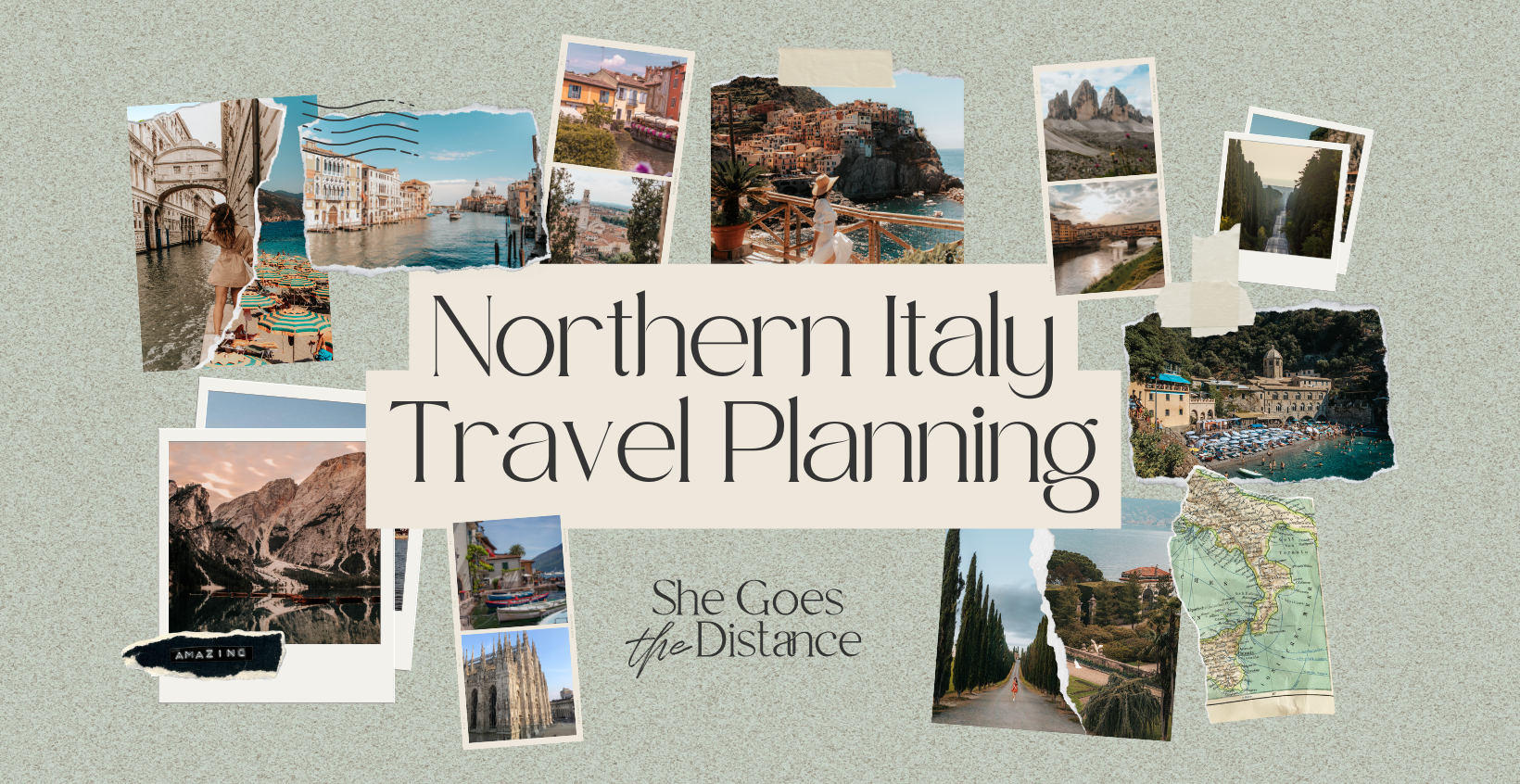
Check this out
- The Travel Library
- Privacy Policy
BUY ME A COFFEE
I love creating free resources for your travels and personally responding to your questions over chat and email.
Planning a trip to Italy?
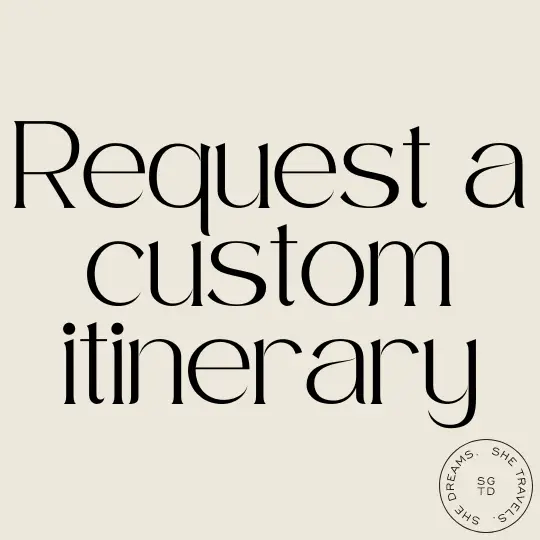
Looking for Something?

10 Simple Ways to Travel Switzerland on a Budget
Written By: Seraina Zellweger
Switzerland
Updated On: February 8, 2024
Switzerland is expensive. That’s old news. But you can visit Switzerland on a Budget. And be honest. It’s why you haven’t put it on your bucket list yet, right? You’re intimidated by the high prices.
You think you’ll never be able to afford a trip to Switzerland without blowing your retirement savings. You’re nervous you’ll be paying off debts for months to come. But despite all those worries, deep down, you still want to go.
Table of Contents
10 Ways to Travel Switzerland on a Budget
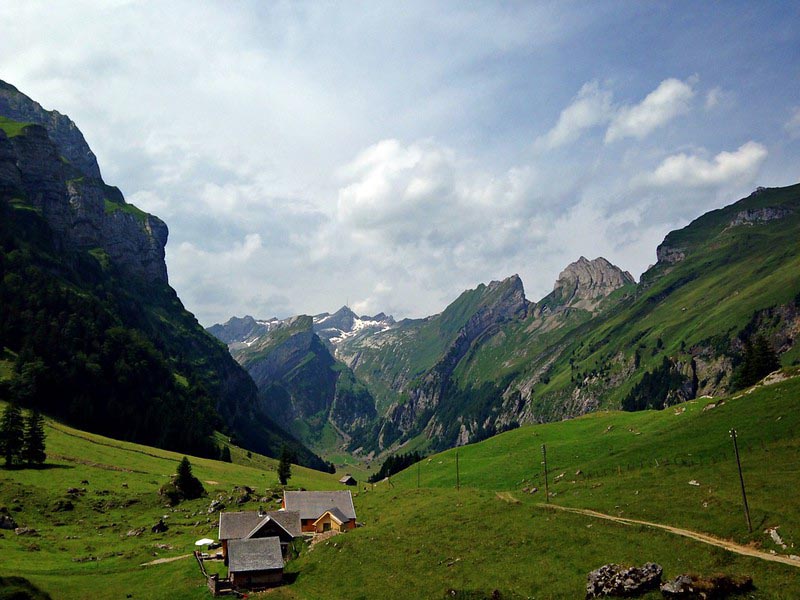
There are plenty of reasons to go to Switzerland . You’ve heard of the breathtaking views. You’re familiar with the taste of Swiss chocolate. You’ve longed for their endless selection of cheese. And you’re just about dying to see the Alps up close. You’ve reached the point where you’re already subconsciously packing your bags .
Wondering whether your trekking shoes still fit you, how much weight you might gain once you give in to your chocolate cravings or whether you need to bring a German, French or Italian dictionary.
If only it wasn’t for that persistent voice at the back of your head. You know, the one that’s keeping you awake at night with a million questions. Read more: 19 Beautiful Places to Visit in Switzerland
- How are you supposed to make it through a single day in Switzerland without robbing a bank?
- Are you going to crawl up in a cardboard box and sleep in a stranger’s backyard just to save money?
- Are you happy to live off instant noodles as you did during that trip to Australia ?
- Do you seriously believe there’s anything free to do in Switzerland?
- What if the emptiness in your savings account forces you to come home after a few days?
The list goes on. But before you let this situation get out of hand, do yourself a favour.
Shut that voice up.
Because first of all, nobody’s going to sleep in a cardboard box. And for the record, robbing a bank is out of question, too. Never mind those instant noodles, either.
Believe it or not, but simple and legal ways to save money in Switzerland do exist. And here are 10 ways to make your money last longer in Switzerland.
1. Use free public transport
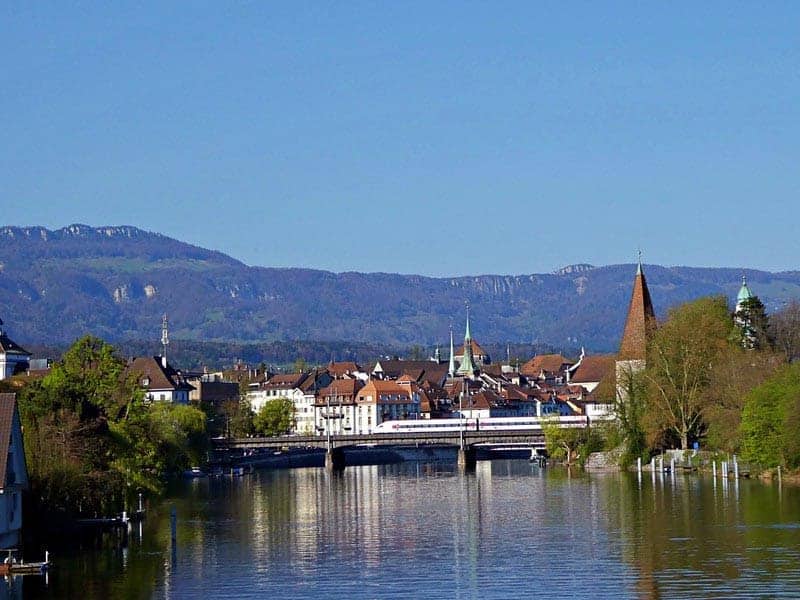
If you’re staying in Bern, Lucerne, Basel , Geneva or Lausanne, you get to use local public transport for free.
Your accommodation provides you with a ticket that’s valid for the time of your stay.
The Canton of Ticino extended this concept and recently introduced what I refer to as the travel-jackpot.
Every visitor spending at least one night in the Canton receives an all-inclusive ticket.
We’re talking about a free ticket here that includes buses and trains as well as a discount for cable cars, boats and selected activities.
More and more cities seem to be joining this concept.
So wherever you’re parked for the night, make sure you hit up your receptionist for potential freebies.
Check out our best Switzerland pictures .
2. Don’t buy a travel pass

Don’t buy a travel pass, at least not until you know your options.
Travel passes can be amazing value for money if you’re going to use public transport. But they don’t always make sense.
To avoid wasting your funds on something you don’t need, set aside some time to do your research.
In order to pick your best match when buying a travel pass, try to answer the following questions as precisely as you can:
- Where exactly do you want to go? What places do you want to see?
- Are you going to cover long distances or mostly stay in the same area?
- How frequently are you going to use public transport? Every day? Every second day? Only once or twice during your whole stay?
- Apart from Switzerland, are you travelling to any other European countries?
Once you have those answers, start digging.
Figure out whether buying tickets as you go, getting a Half Fare Card, an Interrail/Eurail Pass, a Swiss Travel Pass or Supersaver tickets work out cheapest for you.
3. Grab a (free) bike
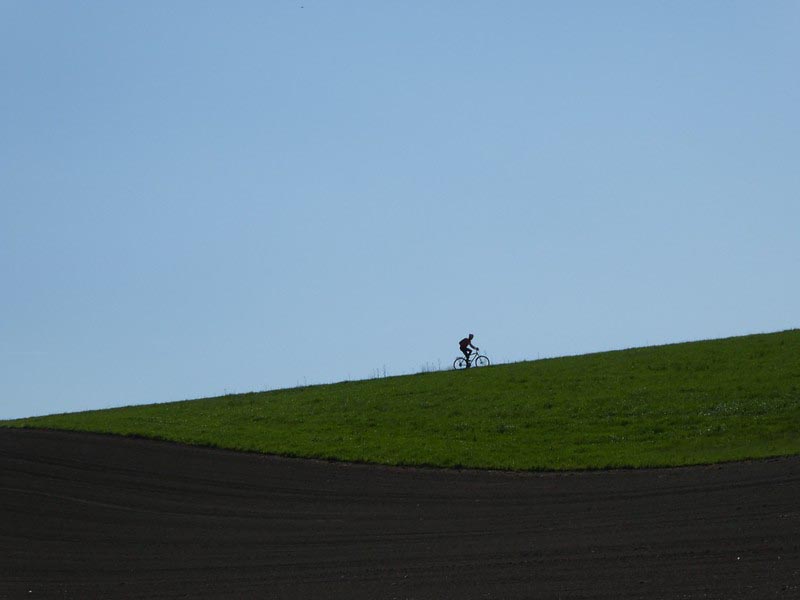
If you’re going to Zurich , Bern, Geneva, Neuchâtel, Zug or the Canton of Valais, you’re in for a treat. Those places offer free bikes.
Some for a few hours, some for a whole day and some even longer.
Bring along your ID and 20 CHF for the deposit.
Other cities rent out bikes as well but not for free.
Depending on your itinerary, it might still work out cheaper than paying for public transport, though.
4. Take matters into your own hands
Unless you desperately want to, you don’t need to book a tour to explore Switzerland.
With public transport being as efficient and plentiful as it is, you’ll be hard-pressed to find a place that isn’t accessible by bus, train or boat.
Buses and trains run frequently so don’t worry about getting stuck anywhere.
However, if you head out to more isolated places, double-check the timetable just to be on the safe side.
5. Put your connections to use
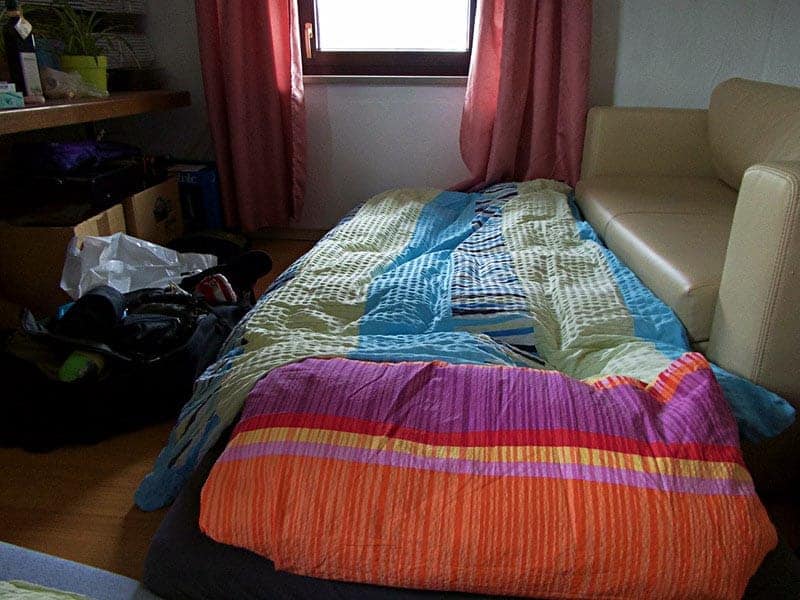
Nothing eases the pressure on a backpacker’s wallet like staying with a friend does.
Saving 30 – 40 CHF on accommodation each night pretty much pays for an all-inclusive Swiss Travel Pass.
And with Switzerland being this small, you can take day trips to almost every corner of the country.
If you don’t have anyone you can contact, try Couchsurfing instead. It’s more common than you’d expect and it’s a fantastic way to get in touch with locals.
6. Sleep above the cows
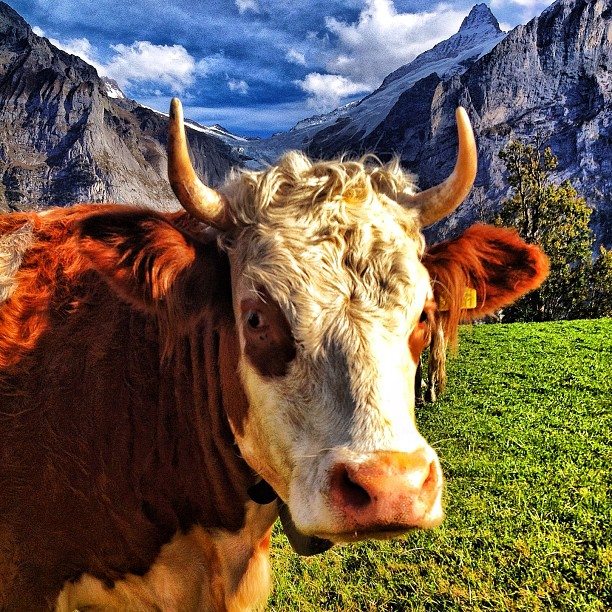
Believe it or not, but this exists. Provided you’re not allergic to hay or straw, sleeping on straw sets you up for a night out of the ordinary.
Especially if you’re after an adventure and travelling with a sleeping bag.
Agrotourismus is a good place to look for Swiss holiday farms – Prices range between 25 – 35 CHF per person, which is roughly the same or even less than a hostel.
With breakfast being included, this is well worth taking a detour out of the city.
By the way, some places also let you set up your own tent for a small fee.
7. Embrace your inner chef

You’ve guessed it. Eating out is expensive, too.
Dinner at a restaurant costs at least 20 – 30 CHF. You might get away with 15 – 20 CHF if you catch a bargain.
Cooking your own food is way more affordable. Depending on how much of a gourmet your are, you can get by with 60 – 80 CHF a week for groceries.
Possibly even cheaper if you cut some edges. But I’d budget at least 50 CHF.
Supermarkets like Migros, Coop, Denner, Aldi and Lidl are your best friends here.
With Aldi and Lidl being the cheapest. Read more 15 Swiss Foods to try in Switzerland or at Home
8. Buy old bread
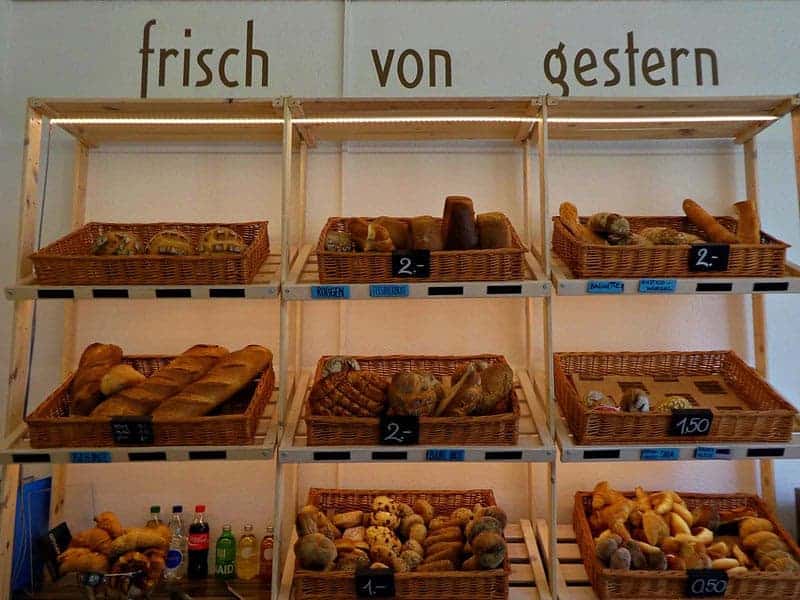
This one‘s way better than it sounds. I promise.
A new concept called Ässbar has taken root in Switzerland.
In order to fight food waste, these guys collect whatever bakeries couldn’t sell during the day and offer it for half the price the next day.
As a result, you can get pastries, bread rolls, sandwiches and sausage rolls at a massive discount.
You can find Ässbar stores in St. Gallen, Winterthur, Zurich, Bern, Fribourg and Basel.
And since their concept is so popular, they’re looking to expand to other cities as we speak.
- Find out how you can stretch your travel cash by downloading her free guide, 10 ways to save money on food in Switzerland .
9. Go crazy over free snacks

Everything free is worth its weight in gold.
And farmer’s markets are an excellent place to grab free samples every now and then.
While you probably won’t get a whole meal out of this, tasting free crackers, olives, bread, the occasional piece of cheese or cookie is the perfect way to get over those mid-morning or afternoon cravings.
Chocolate factories also hand out samples but since they make you pay entrance, I don’t like to count those.
However, the Kambly biscuit factory in Trubschachen lets you dig in until you explode. At no extra cost.
Trust me, you won’t make it through their whole selection in one go. Even if you arrive on an empty stomach.
Challenge accepted?
See some of the best Switzerland Photos on Instagram .
10. Stick with free activities
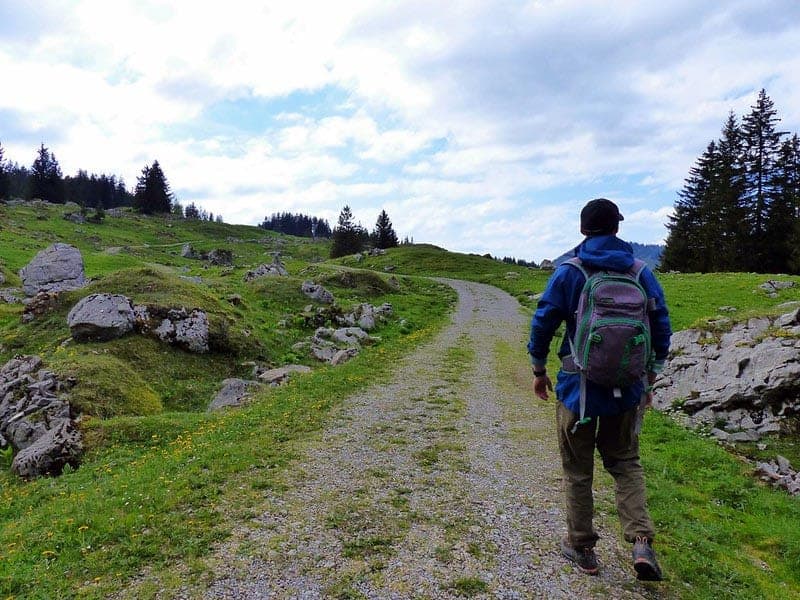
Nothing in life is free. Or is it?
You’d be surprised. If you pay attention and know where to look, you can find plenty of free things to do. Check out The 12 Best Hikes in Switzerland
Free Things to do in Switzerland
- Join a free walking tour in different cities across the country.
- Spend some quality time with the bears in Bern – figuratively speaking.
- Visit a free wildlife park in Zurich, Aarau, Winterthur, St. Gallen, Interlaken and many other places.
- Check out old towns, churches, and free museums.
- Visit the Appenzeller cheese factory in Stein and stuff your face with free samples.
- Join a tour of the Bundeshaus (House of Parliament) in Bern.
- Take a stroll through botanical gardens and parks.
- Head out to Schaffhausen and visit the Rhine Falls, Europe’s largest waterfalls.
- Take a refreshing dip in a lake.
- Hike until your feet fall off. After all, that’s what Switzerland is famous for.
Budget Switzerland Travel – The only thing left
Now that you know how you can stretch your money while you’re in Switzerland, let’s see how that know-it-all at the back of your head is doing.
Is it still leading you on to rob a bank, sleep in a cardboard box or live off instant noodles? Or has it finally decided to shut up?
If it’s still being reluctant, don’t be too upset with it. After all, nothing you do will ever turn your trip to Switzerland into a low-cost holiday.
But with these 10 tips, hitting the Alps without blowing your retirement savings has just become a whole lot more realistic.
The only thing left for you to do is this. Go to your drawer, dig out your bucket list and scribble those eleven letters at the very top of it.
You know you want to.
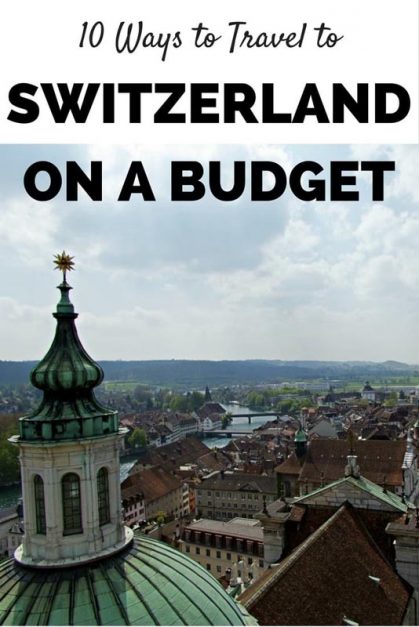
- The Ultimate One-Week Switzerland Itinerary
- The Ultimate Switzerland Road Trip Itinerary
- Our best Switzerland Pictures
- Things to do in Grindelwald, Switzerland – Complete 4 Day Itinerary
- The Perfect 3 Days in Zurich, Switzerland
- 24 Fantastic Things to do in Basel, Switzerland
Check out these money saving tips
- How to Save Money for Travel
- How to Travel on a Budget – Our Top Cheap Travel Tips
- Our Best Travel Tips – From 20 Years of Traveling the World
- How to Travel Around the World – The Ultimate Travel Resource
Travel Planning Resources
Looking to book your next trip? Why not use these resources that are tried and tested by yours truly.
Flights: Start planning your trip by finding the best flight deals on Skyscanner
Book your Hotel: Find the best prices on hotels with these two providers. If you are located in Europe use Booking.com and if you are anywhere else use TripAdvisor
Find Apartment Rentals: You will find the cheapest prices on apartment rentals with VRBO .
Travel Insurance: Don't leave home without it. Here is what we recommend:
- Allianz - Occasional Travelers.
- Medjet - Global air medical transport and travel security.
Need more help planning your trip? Make sure to check out our Resources Page where we highlight all the great companies that we trust when we are traveling.
You May Also Like

28 Best Things to Do in Interlaken in 2024

18 Best Things To Do In Lucerne In 2024
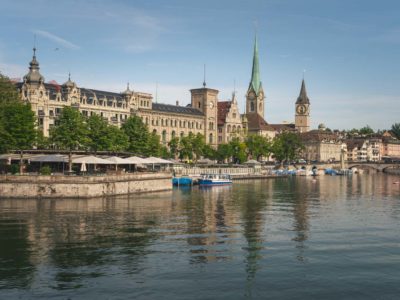
Where to Stay in Zurich: Ultimate Guide for First time Visitors
About Seraina Zellweger
Seraina Zellweger is a devoted budget traveller who’s been around the world and back. As a native Swiss, she’s made it her mission to give fellow backpackers tips on how to visit Switzerland on a shoestring.In her latest project, she's created a series of guides with itineraries for Switzerland , ranging from 2 to 14* days. For more information, Follow Seraina at LostInSwitzerland / Facebook / Twitter
Join thousands of others who get our monthly updates!
Leave a comment cancel reply.
Save my name, email, and website in this browser for the next time I comment.
41 thoughts on “10 Simple Ways to Travel Switzerland on a Budget”
My wife and myself is trying to visit swzertland in the month of July 23 please give some details
Thank you for this article! It eased a lot of my concerns for my upcoming trip to Switzerland. I am wondering about the public transportation… Will the free transportation take us from Geneva to Zurich? Or is it just free public transportation within the city you are staying in? Thank you again for all of the tips. My husband and I are feeling more confident in making this Switzerland trip an affordable and enjoyable experience!
Great tips on traveling to Switzerland on a budget. It is unbelievable how expensive everything is there, especially when traveling as a family. I will refer back to your post again before our next trip to this amazing country!
Zurich is one of the most beautiful capitals in Europe.Thanks for sharing this amazing info
Amazing read. I’ve traveled around Switzerland on a tight budget just for a week. It was the first time I’ve used Couchsurfing and it was an amazing time! My host was a very friendly Swiss guy who was extremely interested in learning about my culture and traveling experiences. Also, as you’ve mentioned, using free public transport saves a lot as well as biking around the cities.
i was planning for a family trip there, and luckily found this amazing informational guide… thanks a lot as this guide will help me for my family travel trip… briefly explained travel guide…!!
I’ve been traveling almost all cheaper countries… scheduling how to set on foot on the rather expensive countries like- Switzerland, Norway, Sweden, Iceland etc.!
Switzerland is really awesome place for roam. You share the information is really awesome. Very helpful information on this blog. I am glad to find it. Thanks!
If you could travel through only one European country, which might you choose? Italy? France? Germany? How about a taste of three in one? That can only mean Switzerland! You’ll find Switzerland a chocolate box bursting with unexpected flavours. 🙂
This post made us laugh, sleeping above cows sounds like an adventure for sure! You are right on point with avoiding Switzerland due to the high cost, but maybe now we will finally add it to our bucket list. We accept the challenge of eating all the free snacks we can get while there!
I am excited that you are accepting the challenge to travel there on a budget. Let us know how it goes !
It is very very Attractive Post. Some great travel tips for travel in Switzerland green And clean city.
Budget is the main concern not for all but for many of us. Cooking own food is the best idea to save money and also to maintain health.You have shared very useful budget friendly ideas here. I really like it.
Great post I’ve always been intimidated to visit Switzerland, but I was little worried about the cost of accomodation. I’m very curious about Agrotourismus, I’ve never heard of it and will definitely check it out. I love to hike so i’m covered for activities. Cheers! Millie
Awesome post Seraina. My first visit on your post but not last, will follow your next post! You obviously spent considerable effort and time to carefully document this post for our benefit. I was in Switzerland last year and spent average budget (My thinking before reading this post). But after reading your post I can say, “Yes” I could save 50% of my budget amount.
I absolutely loved Switzerland. The FRESH AIR is incomparable. And yes to Tip#1!! Our hotel was nice enough to inform us of this before we spent any money on public transport in Montreux. Oh and I remember getting a free ticket to the city from the airport in Geneva too. What I would give to live there. Great post, Seriana!
Izy thank you for commenting because transportation is my biggest concern for my trip to Switzerland in September. I am wondering if the free transportation will take us from Geneva to Zurich? Or is it just free public transportation within the city you are staying in?
These are just stunning! Switzerland is one of my favorite places to travel. Wondering when I get a chance to visit..
I love this! Switzerland has been on mine and my husband’s travel wishlist for a while! It’s great to know about that free public transportation and the free bikes! It sounds like it would be best to spend more time in cities that offer these perks!
I love the fact you like my country.You are from which country?
I’m planning a trip to Switzerland and your post is so handy and packed with good tips! Will definitely put some into good use.
That’s a very good idea Cam. I’m sure you wouldn’t regret it 🙂 Enjoy your travels in Europe.
Very greats article . Thank for sharing . I loved it
I might just include Switzerland in my tour of Europe after all. Thanks for all these amazing tips!
very beautiful places to visit. we haven’t finished exploring the world
Thank you so much Donna. I hope one day I get to return the couchsurfing favour by hosting you and Ted in Switzerland. There are so many things I’d love to show you.
So good to hear from you Laio. And yes, it’s been ages since Bolivia. Such good times out in the Salar de Uyuni. I really hope to see you in Switzerland one day. And you’re definitely welcome to stay with me whenever you’re here. The couch is waiting for you 🙂 Take care
Excellent blog. Great tips and information. We may have to try this trip after all. Well done.
We love your blog. Lots of great tips and information. I think that Ted and I may have to try this sometime. Well done.
Hey Seraina my Dear Friend! So many days since Bolivia’s Travel… times fly! Switzerland seems to be an amazing place… I probably will visit some day! I´ve no doubt that I will “put my connections to use” and I hope you enjoy to give a shelter for me there! This blog is awesome and very helpful! Thanks for it! Kisses
Hey Rosemary thanks for your comment. I’m glad you like Switzerland and think it’s worth a visit. I totally agree with you that coffee and cake are expensive. It’s a shame. Hopefully this won’t keep you from coming back one day 🙂
Switzerland is a really great place – all the trains run on time and are easy to work out. They are clean and comfortable. We agree that you can use public transport to travel around – it’s really good and convenient.
There are lots of things which are good value in Switzerland but we find quick meals like coffee and a cake or something expensive.
It’s worth going to Switzerland though as you’ll have a lot of fun.
Such a wonderful post by Seraina! Switzerland is a dream for me and this one just takes me so many steps closer. I especially agree with point 4 and 10 – nothing like exploring a new place on our own, there’s so much joy and it’s so cost effective too!
Thank you for your comment Arti. I’m glad my post got you a little closer to reaching your dream. Hopefully you’ll make it to Switzerland soon.
Some great travel tips in this post to stretch your time in Switzerland. I love Switzerland, it’s so green, it’s so clean and it’s so stunning. My husband and I decided to camp in Switzerland, which meant we could save a lot on accommodation and we could cook our own meals. We just loved it (it was just a bit cold to sleep in a tent) 🙂
Hi Sabine, thanks for your comment. Yes, Switzerland is pretty green and clean, isn’t it. Camping is definitely a great way to save some money on accommodation. Although you’re right about the chilly nights. I hope you had a good sleeping bag and didn’t catch a cold 🙂
Grabbing a bike and exploring is my kind of thing. And I loved the concept called Ässbar. I hope they’ll spread all over the world….
Hi Seraina,
LOL on old bread. That is all I buy 😉 I’d be saving Swiss scratch right off the bat. Ditto on the free biking. I recall years ago biking all over Hoi An in Vietnam for 2 months. I got in tip top shape and saved a small fortune in taxi fare. Thanks for sharing 🙂
Haha there’s nothing like old bread Ryan is there. I think you’d be saving heaps in Switzerland ? I love going to that place. Wow biking in Vietnam sounds exciting. And it’s definitely a great way to get in shape for free too, isn’t it.
Very Superb Article. Thanks a lot for sharing this information
Thanks for your comment Jay. And you’re welcome. Glad you liked the article.
Home » Trip Planning
Budget Travel in Switzerland: 21 Practical Tips

- Last Updated: 20 Sep 2021
- By Tanya, Founder of Swiss Family Fun
If you buy something through a link here, we may earn a commission. See our disclosure policy . Note that p rices and opening times may change without notice.
Although Switzerland can be expensive, you can travel here on a budget if you make smart choices like choosing destinations with free guest cards and buying the right travel pass.
Some guides suggest saving money by only visiting free attractions, never riding cable cars, cooking all your meals at your apartment, and buying no souvenirs. But most travelers want a richer experience, visiting famous places, eating local food, enjoying fun amusements, and relaxing with convenience and comfort, even if you can’t afford luxury prices.
Based on my experience living and traveling in Switzerland since 2005, this budget guide focuses on ways to use your money most efficiently and how to avoid costly mistakes to make your Switzerland trip more affordable.
Where are the cheapest destinations in Switzerland?
What are the cheapest accommodations in switzerland, how to travel more cheaply with swiss trains, mountain hiking on a budget, how to eat more cheaply in switzerland, 1. destinations with free guest cards.
The best way to save money when traveling in Switzerland is to choose Many destinations offer free Guest Cards for overnight guest, which include free public transportation and discounts on mountain transport, leisure activities and entrance to museums (sometimes free!).
For example, in both the in the Saastal and the St. Moritz Engadin regions, overnight guests get a guest card that includes all mountain transport in the whole region – huge savings! Not all guest cards give such great benefits, but it’s worth looking into. Another example is Davos Kloster, which doesn’t give discounts for local travel cards like GA & Half-fare. So it’s more affordable for locals to spend the weekend to take advantage of their guest card.
See 12 Cheapest Destinations in Switzerland (using overnight guest cards)

2. Choose destinations with regional travel passes
Some Swiss regions have travel passes which cover public transportation and mountain transport. You can purchase these passes for 2 to 10 days depending on the pass.
You get the most value from these passes if you buy them for the maximum number of days. For example, the Tell Pass for the Lucerne region costs CHF 190 for 2 days (CHF 95/day) but CHF 320 for 10 days (CHF 32/day). There are so many mountains and attractions covered by the Tell Pass, you could easily fill up 10 days with so many amazing adventures.
See Best Swiss travel passes for budget travel in Switzerland
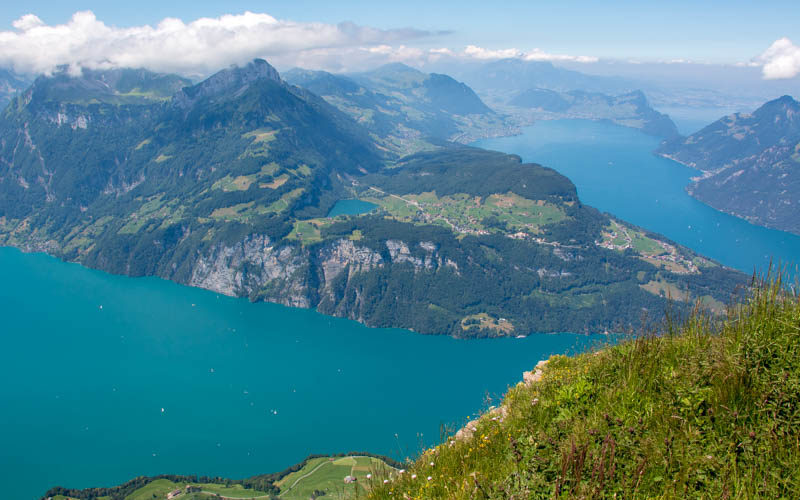
3. Choose smaller and less popular destinations
Popular tourist destinations are expensive for a reason – demand! Everyone wants to go there, so the prices are high for everything: accommodations, food, and mountain railways. For example, the mountain train from Zermatt to the Gornergrat viewpoint is CHF 126 round trip in high summer. Those types of prices can be scary, especially for a large family.
But there are dozens of mountain resorts that are much more affordable, with cable cars that cost around CHF 15-40/adult round trip, even without discount travel cards. Even in tourist destinations, there are usually much cheaper alternatives to the most popular and expensive routes, just as beautiful and less people.
See Best Budget Hikes in Switzerland
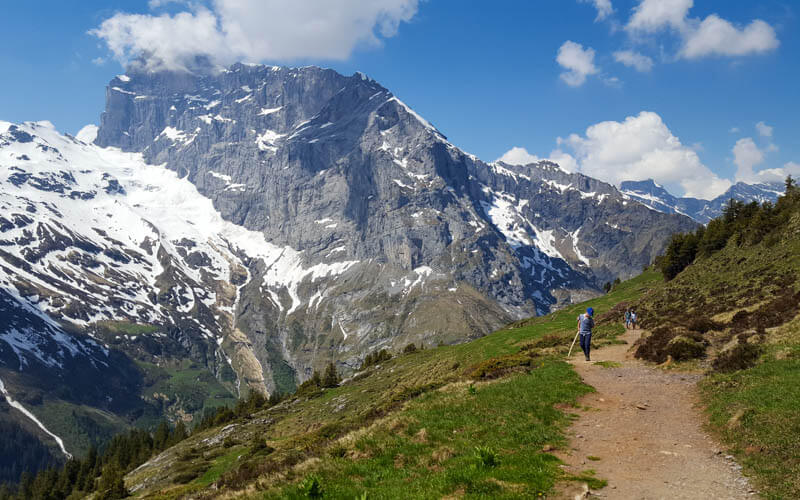
4. Youth hostels
In Switzerland, hostels are not just for young backpackers. Hostels are a budget accommodation option available to any traveler. Many cater to families, with private family rooms and fun activities for kids. Some have shared kitchen facilities so you can prepare your own meals. Most offer breakfast (usually optional) and sometimes dinner with a half-pension price.
Hostel usually have dormitories (aka “lager”), with lots of bunks in one room as well as single, double and family rooms. Some offer rooms with private bathrooms.

However Swiss Hostels are not necessarily super cheap. They can cost between CHF 45-120 per adult per night, depending on the season and room type. This can be affordable for a single traveler. But for a family, the price can get close to a regular hotel or apartment stay, with much less comfort. For example, a 4-bed family room in summer at the Pontresina hostel costs CHF 272.
See hostel accommodations in Switzerland on https://www.youthhostel.ch/en/
5. Book directly with hotel or apartment
If you find an accommodation you like on Booking.com, you might be able to save money by booking directly with the hotel. When you book direct, the hotel doesn’t have to pay the fees to the booking agent. We’ve done this a few times and saved a bit. Plus, I really like supporting small hotels this way, even if I end up spending about the same price as through the booking agent.
6. Rent an apartment for a week
Some apartments offer a discount for longer stays, particularly if you stay a full week. You also have a kitchen, so you can prepare meals at home instead of always dining out. Large apartments (like ones that sleep 8-12) often are the best value if you can split the cost with friends. Plus it can be more fun to share living spaces than each family getting a separate small hotel room.

We typically book apartments in Switzerland through the usual suspects: AirBnb and Booking.com . But there are still many apartments that aren’t listed online. You can find out about them through tourist offices, local travel brochures, and regional websites.
Tip: Pay attention to cleaning fees and tourist tax
Make sure to review the cleaning fees, booking fees and tourist tax, which are often not quoted in the price. On several occasions, we realized it was actually cheaper to stay in a budget hotel with breakfast once we added in the high cleaning and booking fees to the apartment price.
Many accommodations don’t list the tourist tax at all and expect you to pay that in cash when you arrive. Tourist tax may seem annoying but remember that it pays for the “free” Guest Cards you receive in many regions that give you free public transport and free or discounted prices on mountain transport and other attractions like museums and sports.
Camping can be a fun and relatively inexpensive way to explore in Switzerland. If you have no equipment you can still stay at a campground. They rent all sorts of bungalows, RVs, camper vans and even tents, with supplies like sheets and pillows to rent and a grocery and café on site.
However, camping is not as inexpensive as you might imagine. They usually charge a fee for each person (and dog), for the tent (based on how big the tent is), sometimes for the car parking, plus tourist tax. For example, the price for a family of four to camp in a tent, I would expect to pay about CHF 60-100/night in high season. The price can be much higher if you book a spot with a view or have a very large tent. A bungalow for 4 people might cost about CHF 175 – 250, depending on how big and nice the bungalow is and if it has a view.

Also, camping in Switzerland not a nature experience in the wild, as we were used to in the U.S. Camping here is rather civilized, with campgrounds more like a small village of RVs and bungalows. Even in a tent, you are usually squeezed between two RVs, not in a secluded spot by yourself.
Note that the Swiss book their camping spots (especially for RVs and camper vans) a year in advance and popular campgrounds can be full booked for summer already in April. Many campgrounds have a minimum stay of 5-7 nights. For a tent, sometimes you can stay just 1 night, but often the minimum is 2 nights.
See more about what to expect at Swiss Campgrounds . See also this helpful list of Swiss campgrounds suggested by locals .
Wild camping is a memorable way to travel on the cheap. But it’s important to follow the rules to avoid fines and respect the wilderness. In general, wild camping is allowed in Switzerland above the tree line, with some restrictions. Make sure to leave no trace, packing out all trash and human waste. Camping is not allowed in nature and wildlife preservers or in hunting grounds. Check the signs posted at the entrance to the nature area or ask at the local tourist information office. See rules here (in German & French).
On private land, you are expected to get permission from the farmer. This is common practice and we’ve done it before. We saw wild campers on one of our hikes, so we asked at the local hut and they gave us permission. So we came back the next weekend and camped.

Many mountain areas have added new restrictions on wild camping since lockdown. Many more people than usual went wild camping during this time and left litter and human waste in their campsites, very disrespectful and harmful to the dairy farmers and land owners. For example, I noticed on my last hike at Pizol near the popular Five Lakes Trail, they now have lots of signs indicating that wild camping is forbidden and carries a large fine, up to CHF 10,000 in some places.
8. How to spend less on mountain huts
Mountain huts are a great way to stay in remote places in safety and comfort. It is also has a lower impact on the environment than wild camping. But they aren’t cheap. I would expect to pay about CHF 70-90 per adult per night for half-pension (including dinner and breakfast).

Here are a couple ways to save a bit when staying in a hut.
- Stay in the dormitories, with lots of mattresses lined up on bunks. Some huts also offer single, double and family rooms for more privacy, but these are also more expensive.
- At many huts, you can skip the meals and save CHF 30-40. But this means your pack will be a lot heavier, carrying all your food.
- If you are staying a lot of huts, you can save money by getting a Schweizer Alpin-Club (SAC) membership . This gives you a discount on the overnight fees (usually about CHF 10) but not on the food.
See the network of SAC huts in Switzerland .

Swiss public transportation is clean, reliable and efficient, probably the best system in Europe. It’s more climate friendly than driving and let’s you enjoy the scenery instead of fighting traffic.
But traveling by train can be expensive, especially for visitors that don’t know how to navigate the system. Here are my top tips for traveling by public transportation on a budget. See more discount train travel tips here .
9. Book ahead to get “Supersaver” discount fares
If you buy tickets in advance (up to 2 months), you can often get a Supersaver ticket option, which can offer up to a 70% discount. This ticket is only valid for that exact day, time and train specified on the ticket. So only use this option where you are absolutely certain you are taking that connection. If you miss your connection or you’re late and miss your train, your Supersaver ticket is no longer valid.
When booking tickets on SBB.ch or the SBB app, you’ll see the Supersaver option in the “Options for outward journey” section at the bottom of the screen. You’ll need to expand that section to see it. The Supersaver option isn’t always available. If you see the % symbol, then a discount option is available.

Learn more about Supersaver fares on SBB.ch
10. Children travel free with the SBB Junior Card
If you are traveling with children aged 6 to 16, buy the SBB Junior card (sometimes called Family Card). It costs CHF 30 per year and entitles the child to travel free on public transportation and most mountain transport when traveling with a parent. This is available for both locals and tourists. You can buy the Junior card at a train station that has a ticket office. You need to bring IDs for your children proving their age. Children under 6 travel free everywhere with a parent with valid ticket.
More info about SBB Junior Cards

11. Buy discounted day passes
If you are traveling long distances, a SBB day pass can be the most affordable way to travel. A day pass allows you one day of free travel on public transportation (bus, tram, train, boat) throughout Switzerland. It also give you a discount on most mountain railways (some for free). The standard day pass is quite expensive at CHF 150 full fare and CHF 75 with a SBB Half-fare card. Here are a few ways to get a discounted day pass.
- Saver Day Pass – If you book in advance, the day pass can cost as low as CHF 52 full fare or CHF 29 with a SBB Half-fare card.
- GA Gemeinde Pass – Many towns pre-purchase GA Day Passes, which they offer at a discount to people who live in the town. Typically only people living in the town can reserve and pick up the tickets, so you could have a friend do it for you.
- Leisure Card – If you plan to travel at least 20 days in Switzerland, you can get a “Leisure Card”, which includes 20 GA day passes for CHF 900, working out to CHF 45/day. You have to use all 20 passes within a year of purchase. But you can use them anytime and don’t have to prebook a specific day.
Learn more about these discounted day passes and see Where can I travel with my SBB day pass?
12. Get a SBB Half-fare card
Many Swiss locals, including our family, have a SBB Half-fare travelcard , which gives a 50% discount on public transportation and most mountain transport. For example, a full fare trip from Zurich to Lucerne plus a round trip ticket up Mt Pilatus would cost CHF 130 full fare but only CHF 65 with a Half-fare card. This is the only way we can afford our weekly mountain hiking trips.
In 2022, a regular SBB Half-fare card costs CHF 185 for one year. But people living outside Switzerland may purchase a 1 month Half-fare card for CHF 120. The half-fare card can pay for itself rather quickly if you travel a lot by public transportation and go up a lot of expensive mountains. I like this option because unlike travel passes, you don’t have to worry about maximizing your travel each day. Once you’ve covered your costs, any trip you do from then on is a bonus.
More info about the One month SBB Half-fare card .
13. Use Railaway leisure offers
SBB Railaway (associated with the Swiss transit system) has “combi offers” that give a discount on both the train travel to the destination and the attraction itself. These discounts usually range from 10% – 50%. Even if you already have a travel pass that covers your train travel, you can often still get a discount on the attraction. So it pays to browse their offers before planning your travel.
See the current Railaway offers

Hiking is free in Switzerland. You don’t have to pay entrance fees to national parks or get permits. The only cost is using mountain transport to ride up and down the mountains.
14. Skip the cable car
The most obvious way to save money hiking is simply to skip the mountain transport. You can hike up any mountain for free. Even if you want to use some gondolas, you can dramatically reduce your costs by only using the mountain transport one way and hike the other way, up or down.
When buying your ticket, make sure to tell them exactly what hike you plan to do. They often sell hiking tickets that are cheaper than a one-way ticket because you are skipping some of the lifts.

Also look for hikes that do not rely on expensive cable cars, where you can drive or ride a bus directly to the trail head.
See Best Free Hikes in Switzerland (no cable car)
All that said, the reliable and convenient mountain transport is one thing that makes Switzerland so special. You can skip the boring climbs and get right to the good stuff. It also enables non-hikers, children and those with mobility issues can also access the most beautiful views in Switzerland.
15. Discounts for families, students, pensioners
Many mountain resorts offer a variety of discounts, but they are not always advertised. So check the ticket options carefully and ask for discounts at the ticket counter.
If you are age 16-25, look for student discount and bring your student ID with you. If you are retirement age, look for a AHV price, which is for pensioners. These discounts are usually around 10-20% off full fare.
Many mountains offer family discounts that include 2 parents and 2 children aged 6-15. At Mt Rigi , all kids under 17 ride free (even without a Junior Card). At Pizol , their family ticket includes all children under 17, which is great for large families. If you have a dog, look for places where dogs ride free (Jungfrau Region is one, thank you!).
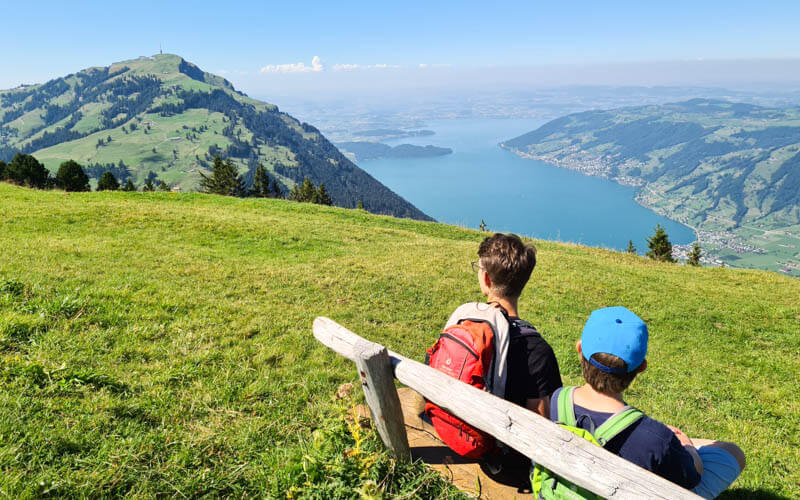
16. Visit smaller mountain resorts
Many mountain areas have tiny private gondolas that don’t necessarily advertise. Although they usually don’t accept discount cards and travel passes, the base fare is often cheaper than other mountains even with a discount. For example, Grimmialp is only CHF 12 to ride the chair lift up to a beautiful panorama hike.

17. Don’t book a guide for your hike
We love guided tours because you often get inside info and special experiences that you couldn’t get otherwise. For example, we have done two guided glacier walks, which were a little pricey but also amazing experiences that we couldn’t have done on our own. Plus guided tours take care of all the logistics, so you can focus on having fun instead of worrying about the details. And they speak the local language to help smooth over any bumps.
But if you are on a tight budget, it’s important to know that a guide is not necessary for most hikes in Switzerland. Trails are well marked and free hiking maps are provided at the ticket offices. If you are hiking on official trails in popular areas, it’s easy to figure out. Plus you have my blog to help you!
If you do need a little help maximizing your itinerary, you can book a short call with me to review your plans. I’ll point out problems, offer tips that match your needs, and send you links to activities and resources mentioned in our call.
Restaurants are infamously expensive in Switzerland, a simple meal of pasta costing CHF 25 or more. And honestly, at most casual restaurants, the food is not amazing. Unless you are going to a very nice restaurant, your meal is rarely worth the high prices.
Here are ways to save money on food during your Switzerland trip.
18. Bring a picnic for lunch
Many Swiss hiking areas have mountain restaurants so you don’t have to carry any food. But that can be expensive.
For lunch, we usually have a picnic lunch. If we didn’t plan ahead, we simply buy sandwiches at a bakery on the way. Or we shop for picnic supplies from convenience stores at train stations and gas stations near our destination. These convenience stores usually have a surprisingly decent selection of local cheeses and sausages to grill, fresh sandwiches, and fresh produce.
See typical Swiss picnic food
Many Swiss hikes have picnic areas with fire pits, wood and sometimes kindling. You just need to bring sausage and matches. The free hiking maps provided by the resort usually mark the picnic areas either with a table or fire icon. This is very helpful when planning your day. Many picnic areas are near playgrounds, so the kids can amuse themselves while you build the fire.
See our favorite Swiss picnic spots
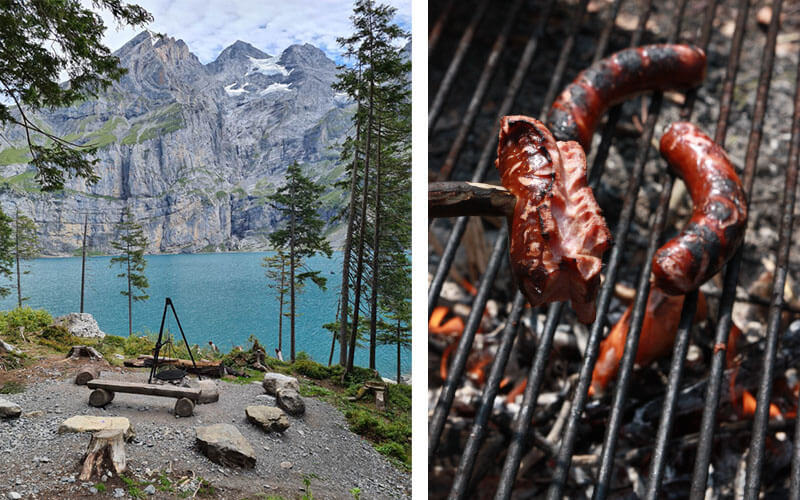
19. Service is included, don’t leave a big tip
Swiss restaurant prices include a service fee. So the Swiss do not leave a huge tip, but usually round up, giving the server a couple extra francs. On a bill of CHF 57.50, I would just round up to CHF 60. Feels weird for an American, but it’s totally normal. If you don’t leave a tip, it’s ok too.
If you do the math, subtracting a 20% service fee from your bill, you might find that the meal wasn’t quite as expensive as you imagined. I always think it’s cheaper to eat out in America. But last time I visited, I was surprised how expensive it was once you add in a 20% tip, as expected at many places.
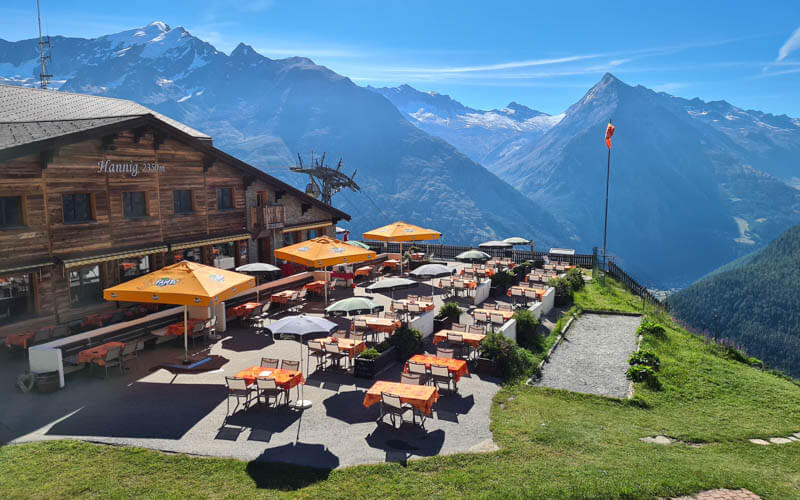
20. Drink tap water, but it’s not always free
Tap water is safe and delicious in Switzerland. Most cities and villages have many fountains with drinking water free flowing. Unless the foundation has a sign that says “Kein Trinkwasser,” you can drink that water. So definitely bring a reusable bottle and fill it up frequently on your travels.
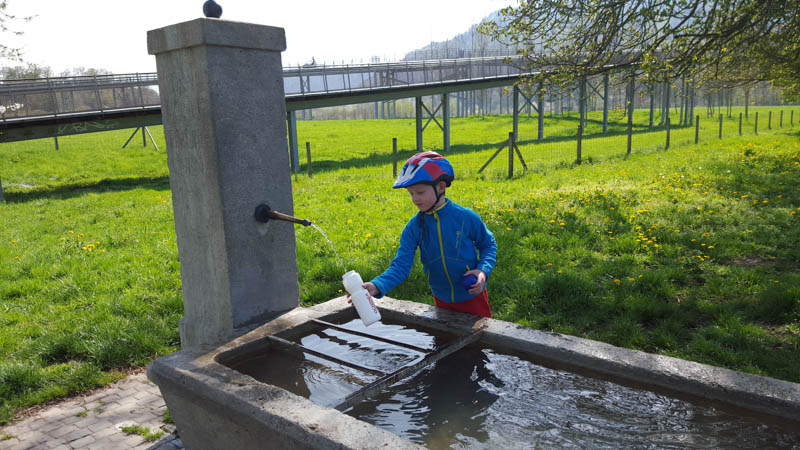
Drinks are ridiculous expensive in Switzerland. At a kiosk or restaurant, expect to pay at least CHF 5 for a soda, bottled water, or coffee. Beer isn’t much more but cocktails can be shocking pricy at CHF 15-20. At the grocery, bottled drinks are cheaper but still about CHF 2 for 500ml.
In restaurants, you can request tap water, called “Leitungswasser” or “Hahnenwasser” in German. If you just ask for water, they will almost always come back with bottled water (still happens to me). So make sure you very clearly ask for “Leitungswasser.”
Note that some restaurants will still charge a small fee to cover washing the glasses, usually CHF 2/glass or CHF 5-8 for a 1 L bottle. Mountain huts do not have tap water because they are too remote. All drinks must be helicoptered in and are therefore even more expensive.
21. Skip the hotel breakfast
Most hotel and B&B accommodations in Switzerland include breakfast in the overnight price. This can make your travel more efficient because you don’t have to worry about shopping or store opening hours (open late and close early in small villages).

But if you don’t mind grabbing a breakfast on the go, you might be able to save some money by skipping the included breakfast. Not all hotels will allow this but it doesn’t hurt to ask. But also note that many hotels in Switzerland do not have a mini-fridge. So don’t expect to be able to store groceries in your room.
Should you avoid high season?
Many travel guides suggest that you avoid traveling during “high season” from June through August because of high prices and crowds. But in most places, prices aren’t lower in high season except the most touristy destinations like Zermatt & Jungfrau Region. And more importantly, if you travel outside high season, you may not be able to do all the activities you planned.
- Many mountain resorts don’t open for summer season until late June or July. And some mountains, especially in the Valais, close already in late September and first week of October. Other mountains are only open on weekends outside summer holidays.
- Many mountain trails are covered with snow until late June (until late July in 2021!) and it has snowed as early as the first week of September. So if you travel in spring or fall, your hiking options could be very limited (see my guide to Spring hiking in Switzerland).
- Some mountain amusements like mountain coasters, may be closed or have limited hours outside high season. Some mountain restaurants also close (or only open on weekends), so you have less options for refreshments.
- It’s not always much cheaper outside high summer season. Only a couple mountain resorts have higher summer fares for mountains, including Zermatt and the Jungfrau Region. Most other mountains have the same price all summer for their lifts. Hotels and camping do have higher prices during high season, but it might be worth the higher prices so you can do everything you want during your Swiss vacation.
That said, if you do want to “avoid high season,” the best time to come is end of August to mid-September. Kids are back in school, most mountains and services are open, and the weather is usually quite nice.
Is it cheaper to rent a car or travel by train in Switzerland?
Since Swiss train travel can be expensive, many people automatically assume that renting a car would be cheaper. But that’s not necessarily true, especially if you follow my tips in this post. You really need to do the math, considering the exact trips you intend to take and compare the costs.
A rental car can be more affordable than train travel if you are traveling with a big group and frequently traveling long distances. But remember to factor in gas and parking fees into your total cost. In Switzerland, gas in summer usually costs around CHF 1.80/liter (about $7.25/gallon). For most of my day trips from Zurich, I’d estimate I spend about CHF 30 on gas. Parking fees are usually CHF 5-10/day. But in tourist destinations like Grindelwald, you can pay CHF 25-30/day.
Switzerland also has lots of speed and red light cameras, which can add an unexpected cost to your trip. A ticket for going 52km in a 50km zone will cost you CHF 40. But going 61km in a 50km zone costs CHF 250. See speeding ticket fines .
I’ve heard people complaining about the costs of rental car prices in Switzerland. It’s not cheap but when I searched for cars in early September 2021, I could rent a compact car 4-seater for CHF 450/week. I think that’s pretty reasonable. Of course rental car prices fluctuate based on the season and availability, so your experience may vary.
Any more tips to share?
If you have any other budget travel tips to share, please leave a comment and help other travelers. If you’ve found any of these tips helpful, let me know!
You might also like

Support us!
When you book something through our links, it costs you the same but we earn a small commission. This support helps us keep our website free to use. Thanks!
via SkyScanner
via Booking.com
via DiscoverCars

via GetYourGuide
We respect your privacy. Please review our privacy policy to understand how we process and store data submitted through the comment form below. If you submit this form, you explicitly agree to the terms described in our privacy policy.
4 Responses
Hi there, We are family of four from India. Two small kids age 8 & 2. We are planning a trip to Swiss next June for a period of two weeks. We would like to live in a rented apartment with low budget. Pl help me with everything begining from Airfare, VISA, transportation, accomodation and sight seeing, Thanks Jayanta
Sorry but I don’t offer these services. Sounds like you need a travel agent to help with your trip.
“Too good to go”! It’s an app where you can help prevent food wastage and get a cheap meal at the same time! Lots of restaurants, bakeries and even florists and supermarkets have joined up. I’ve used it a few times in my local town, and also when on vacation in other parts of Switzerland. Win-win!
Yes, this is a good tip. Thanks for suggesting it.
Leave a Reply Cancel reply
Your email address will not be published. Required fields are marked *
Save my name, email, and website in this browser for the next time I comment.
Hi! I’m Tanya and our family has been living & hiking in Switzerland since 2005, collecting dozens of fun hikes and activities for all ages and abilities. More about us…
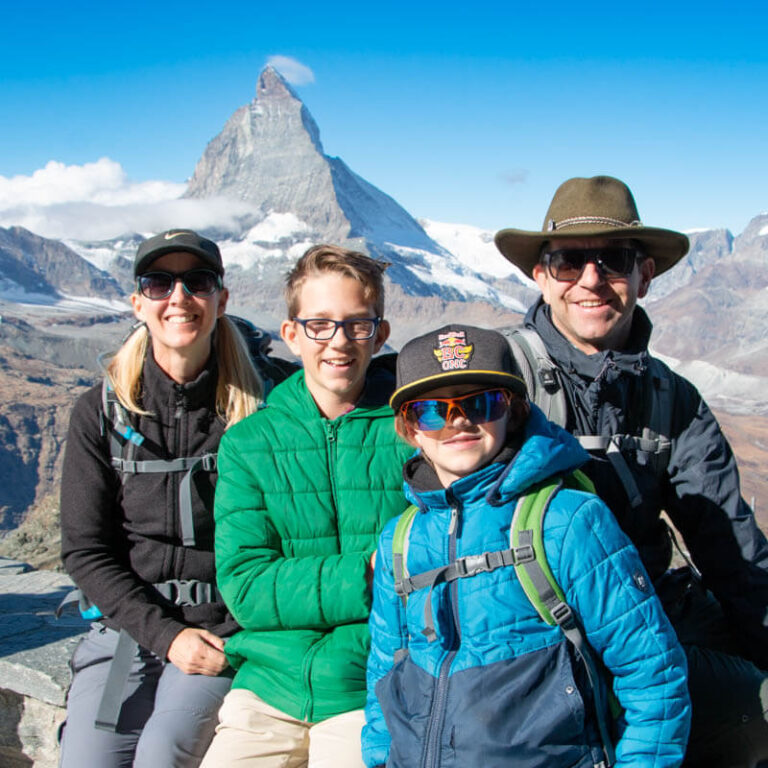
Need help planning?
Short on time? Get our interactive map with curated itineraries. Learn more…
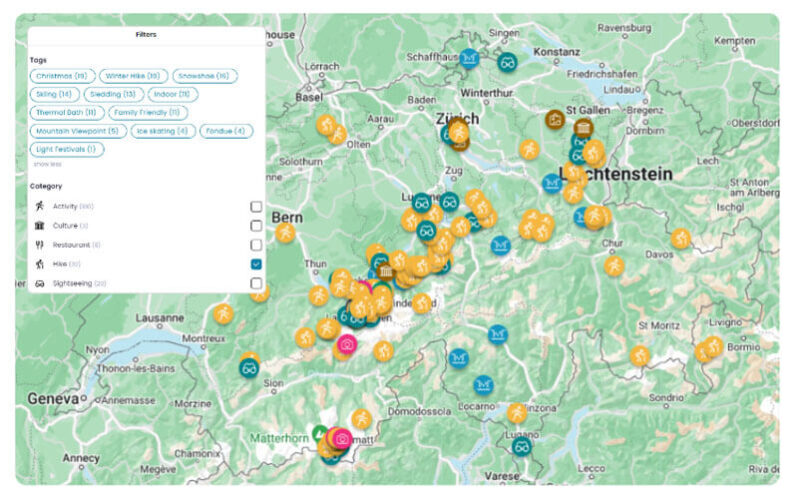
Have questions? Book a video call with me to create a custom itinerary.
Need inspiration? Get our Switzerland Bucket List ebook with twenty “Top 10” checklists.
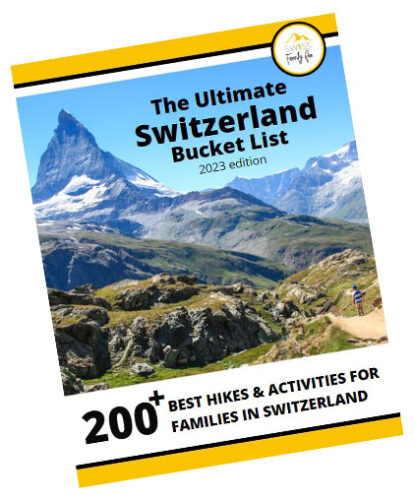
Subscribers may login below. At the moment, membership is by invite only.
Switzerland on a Budget: Tips For Cheap Travel
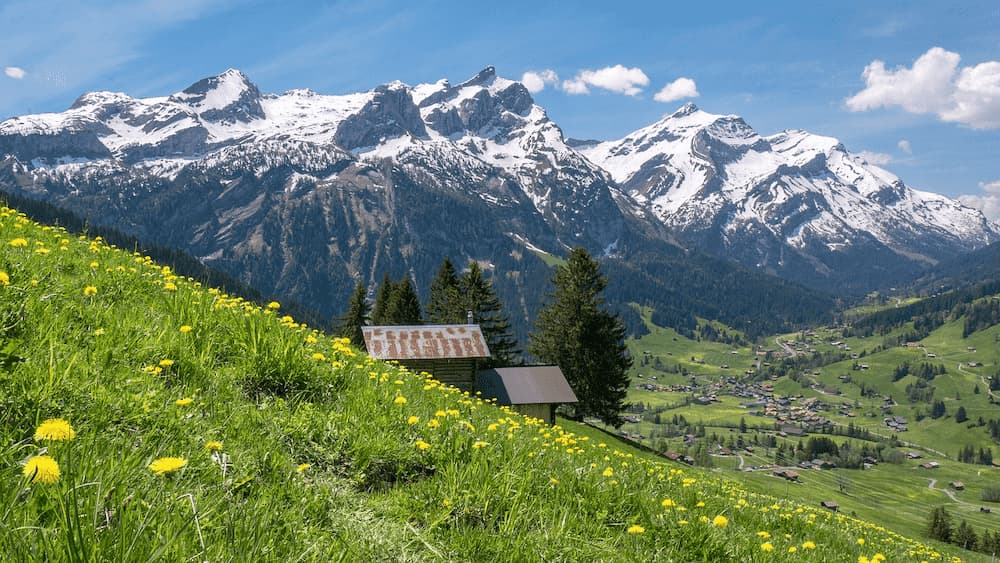
Wondering if it’s possible to travel to Switzerland on a budget? Of course, it is, but it depends on what your budget is. While the country can be explored without ludicrous amounts of money, it’s important to keep in mind that it’s still one of the most expensive countries in the world and is far from cheap.
But there are ways to save money while traveling in Switzerland, and I want to tell you all about them. From finding cheap flights to getting the best exchange rates for Swiss Francs; here’s everything you need to know about traveling to Switzerland on a budget!
Table of Contents
Typical Cost of Traveling in Switzerland

The typical cost of traveling in Switzerland depends on many different factors. The main thing to consider is what you’re going to spend money on – are you fine staying in one place the entire time, or do you want to ride trains to explore more destinations?
Would you prefer to pay more for a hotel and save money on going out, or vice versa? Or are you looking for the most budget experience all around? The average cost of a trip to Switzerland is:
- Budget: 100-200 CHF per day
- Mid-Range: 200-400 CHF per day
- Luxury: 500+ CHF per day
Keep in mind that it depends on so many things. If you can get cheap plane tickets, sleep on someone’s couch for free, eat only home-cooked meals, and pay only for attractions and train tickets, you can get costs under 100 CHF per day.
Finally, I highly recommend you set apart a budget for iconic Swiss landmarks. Schilthorn , Jungfraujoch , Titlis , Pilatus , and other mountains are very expensive to visit, but worth every penny because it’s an experience unlike anything else.
If you have to prioritize what to spend money on in Switzerland, I say eat sandwiches the entire time you’re there but splurge for access to visitor’s centers in the mountains. What’s the point of traveling to a country with such stunning natural landmarks if you’re not going to visit any of them?
Can You Travel to Switzerland on a Budget?
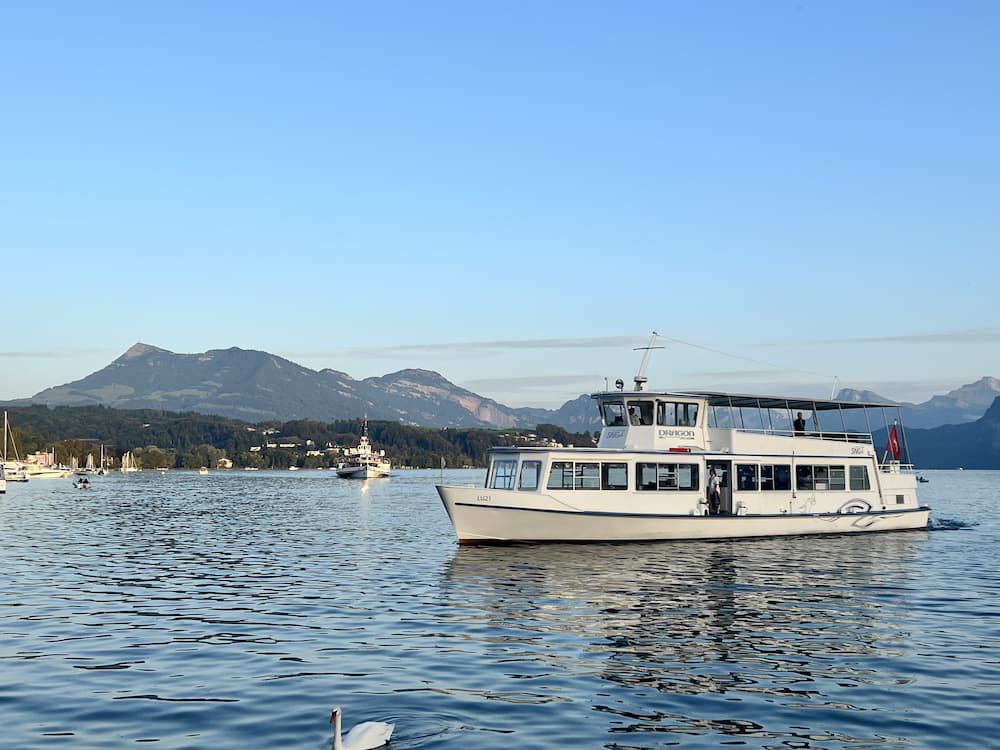
Switzerland is one of the most expensive countries in the world but it is possible to visit it on a budget. Don’t get me wrong – a cheap stay in Switzerland can get you a four-star hotel with restaurant dinners every night in a different European city. But it is absolutely possible to travel the country without spending absurd amounts of money, and I’m going to share all my best tips with you!

Start saving money right off the bat when looking for flights to Switzerland. Flying with a low-cost airline can save you hundreds of Euros, especially if you can manage to pack all your belongings in an underseat bag so you don’t have to pay extra for carry-on luggage.
Low-cost airlines that operate flights to Switzerland are:
It’s important to note that only Basel Airport is serviced by all four airlines. Zurich airport only works with Vueling and Easyjest, while the airport in Geneva works with all airlines except Ryanair.
Low-cost flights are available from other destinations in Europe. If you’re traveling from overseas, look for flights to London, Munich, Paris, or other major destinations in Europe. From there, you can book a cheap flight to Basel for 20-30 Euros in one direction.
Just pay attention to the airports. Budget airlines usually offer flights to airports that are farther outside the city. In practice, this means that you’re more likely to find cheap flights to Switzerland from say Gatwick Airport in London than Heathrow.
I recommend looking for cheap flights to Basel first and then looking for flights from your city to the connecting one. It is a bit of a hassle, but if you use search tools like Skyscanner, Kayak, and even Google Flights , it should be easy enough. And it will save you a lot of money.
Regional Transportation

Public transportation works very well in Switzerland; all the major cities are connected by trains, and you can travel around the entire country relying only on public transportation. However, trains in Switzerland are also notoriously expensive, so traveling on a tight budget isn’t the easiest thing in the world.
But there are ways to save money and they’re called train passes! Some of the most popular options are:
- Eurail/Interrail Pass
- Swiss Travel Pass
- Half-Fare Card
- GA Travel Card
- Berner Oberland Pass
…and more. Some of these passes are regional and won’t offer discounts outside a specific canton or city. Stay away from taxis and Uber because they’re significantly more expensive than train travel.
If you’re serious about traveling to Switzerland on a budget, start by making a list of all the destinations you want to visit. Then look into the cost of the different passes, and see which one is the best value for the money. It’s often the Half-Fare card, especially if you’re in the country for a short time and don’t intend to travel to a new city every day.
But if you want to ride trains often and get discounts on other attractions, the Interrail/Eurail Pass or the Swiss Travel Pass might offer better value. It’s hard to say without knowing your itinerary. Math doesn’t lie, so take the time to look into the cost of train tickets to towns you want to visit (available on sbb.ch ), and attractions you’re willing to pay for, and then just do the math.
Additionally, SBB often offers supersaver passes at a discounted cost. These are usually train tickets you buy a couple of days in advance, and they’re valid only for the connection at a specific timeslot. But they can be up to 70% cheaper than standard tickets, so they are a great way to save money. Relying on supersaver tickets is an option if you don’t want to have a rigid itinerary in Switzerland, and instead prefer to be more spontaneous and flexible.
Transportation Within Cities

Many cities in Switzerland offer multiple public transportation options to get around. Most Swiss cities don’t have a metro, and I’m pretty sure that Lausanne is the only city with a Metro system. Trams, buses, and local trains are public transport options in most other towns.
The reason I’m even mentioning all of this is because public transportation within a city is often entirely free for tourists. In most Swiss cities, when you book a stay at a hotel or an apartment registered with that city’s tourism board, you’ll get a city pass that includes free public transportation in a certain zone and discounts for other attractions. This is the case in Geneva, Lucerne, Interlaken, and other destinations.
I advise against riding any type of public transport without an appropriate ticket. Conductors often come and check, and if you are caught without a valid ticket, you’ll be fined so much money you wish you had rented a limousine to get around because it would have been cheaper.
Finally, just explore on foot. If you don’t want to pay for public transportation, it’s better to walk around. Bike rental is usually cheap and in some places, it’s free, so you can get around faster for very little money.
Food & Drinks
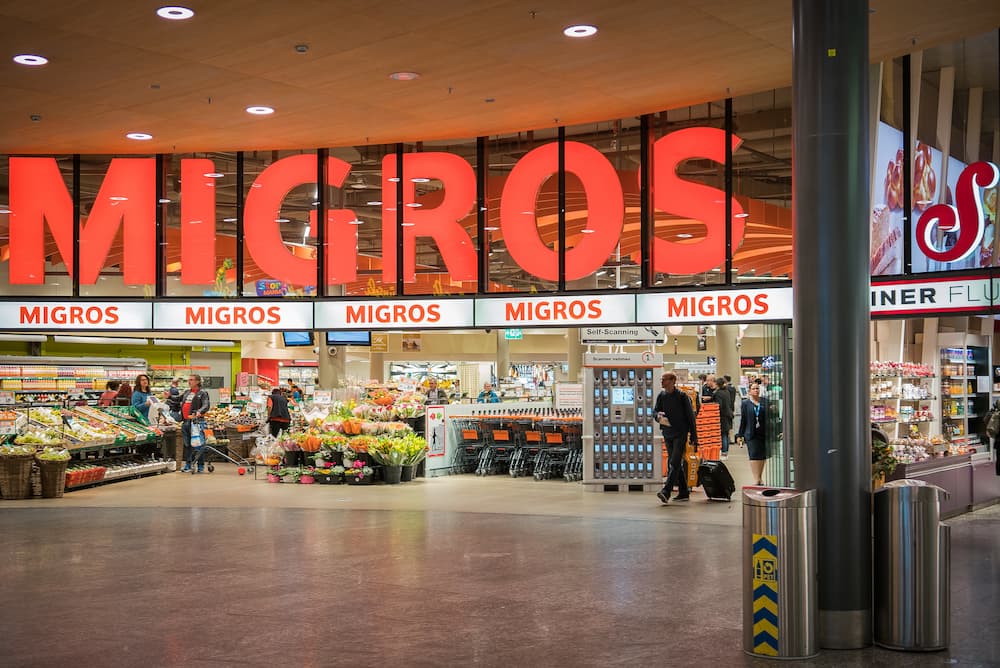
Saving money on food and drinks is the easiest thing in Switzerland if you know where to go. For one, there are many fast-food joints and small restaurants where you can eat good food for little money. Kebabs and pizza are often the cheapest things to eat out in Switzerland, followed by sandwiches.
Look for hole-in-the-wall shops, get recommendations from locals, and visit bakeries often. If you stay at a private apartment or a ho(s)tel with access to a kitchen, you can also prepare your own food. This is by far the best option for saving money because supermarkets in Switzerland are surprisingly affordable.
The restaurants at those supermarkets and department stores are also significantly cheaper than proper restaurants with table service. They usually have a buffet-style menu and charge food by the kilo, and you can often get a generous portion for under 20 CHF. My favorites are:
- Migros restaurant
- Coop restaurant
- Manor restaurant
But cooking your own food is by far the best for eating for cheap in Switzerland. You can get about 500 grams of pasta, tomato sauce, some mozzarella, and olive oil for less than 10 CHF. That amount of food should be enough for at least 4 generous meals. In Zurich, 10 CHF can get you two scoops of ice cream.
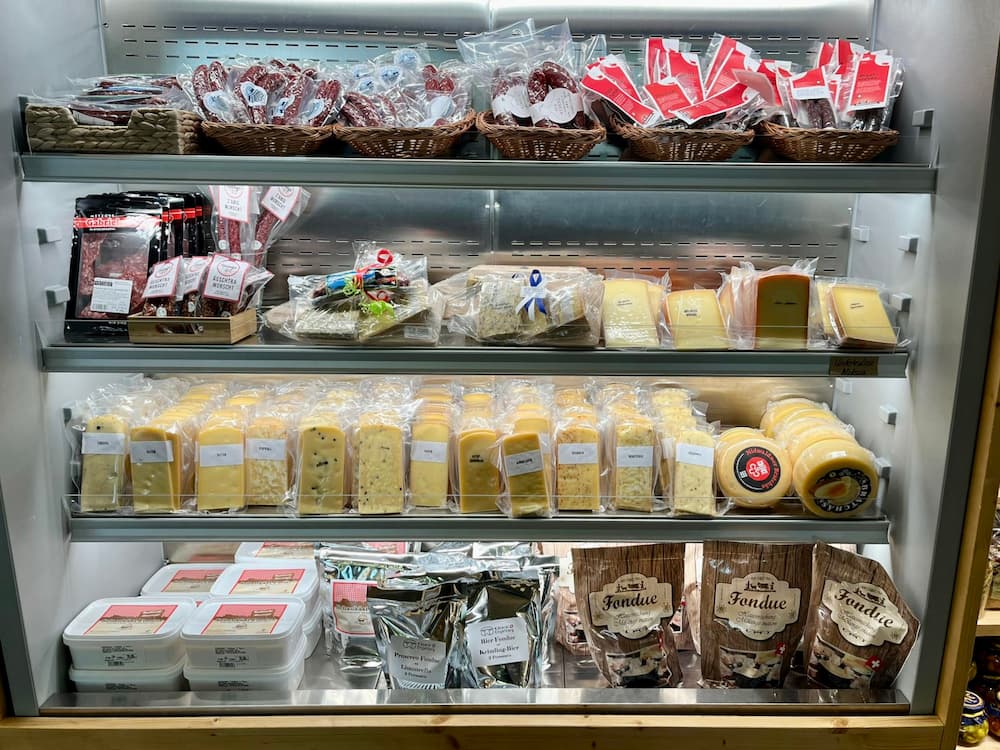
Even if you don’t have a full-sized kitchen, you can always make sandwiches. If there’s no fridge at your accommodation, buy foods that don’t need to be refrigerated, and get smaller sizes of the ones that do so they don’t go bad, and make sandwiches. If you can survive off sandwiches while you’re in Switzerland, you can easily save hundreds of Francs.
And you can prepare picnics! This is my go-to for going out and exploring because restaurants in the mountains are even more expensive than those in the city centers. So, whenever I make plans to spend an entire day outdoors, I’ll prepare a picnic we can enjoy out in nature. It’s always a fun experience, not to mention how much money it can save you.
A meal at a restaurant costs 20-30 CHF on average, and that’s for basic meals in mid-range restaurants. High-end and fine-dining restaurants are significantly more expensive. Two meals a day for two people is at least 100 CHF, so avoiding restaurants in Switzerland is by far the best way to save money in the country.
Finally, never buy water while you’re in Switzerland. The tap water is perfectly safe for drinking, so remember to bring a reusable water bottle and fill it up before leaving the accommodation. One thing to note is that many restaurants in Switzerland will charge you for tap water if you don’t order any other drink.
Accommodation

Accommodation is expensive in Switzerland and will likely take up most of your travel budget. The cost of hotel rooms and apartments varies depending on the city, but in general, you can expect hostels to be up to 100 CHF, mid-range hotels are 100-300 CHF, and luxury hotels can be well over 1,000 CHF for a night.
Keep in mind that the bang for the buck depends on the city. In a smaller place like St. Gallen, 300 CHF per night can be enough for a pretty good hotel. But in Geneva, it will likely get you a mid-range hotel room at best.
Hostels and guesthouses are the way to go for a budget stay. Pitches on campsites are also a decent option if you’re no stranger to spending the night under the sky. You can camp outdoors in Switzerland, and this can actually be a great way of saving money while uncovering some of the country’s most spectacular natural landmarks.
I recommend going with a hostel or a budget apartment for city stays. Even rooms at private properties are a good option, provided they come with a private bathroom and a shared kitchen at the very least. Anything that can allow you to prepare food at home is a good option because it can save you a lot of money.
House-sitting and couch surfing are also options to consider, but they’re generally the best solution for friendly and somewhat adventurous travelers. There’s nearly a quarter of a million hosts for couch surfing in Switzerland, and if you’re up for it, you can save a bunch of money on accommodation.
Personally, I prefer house-sitting because I’m somewhat of an introvert. And also because so many people who are looking for house-sitters need someone to take care of their pet while they’re away. I love animals, and I’m always thrilled to save thousands of Francs on accommodation simply because I need to feed a cat during my stay.
Things to Do in Switzerland on a Budget
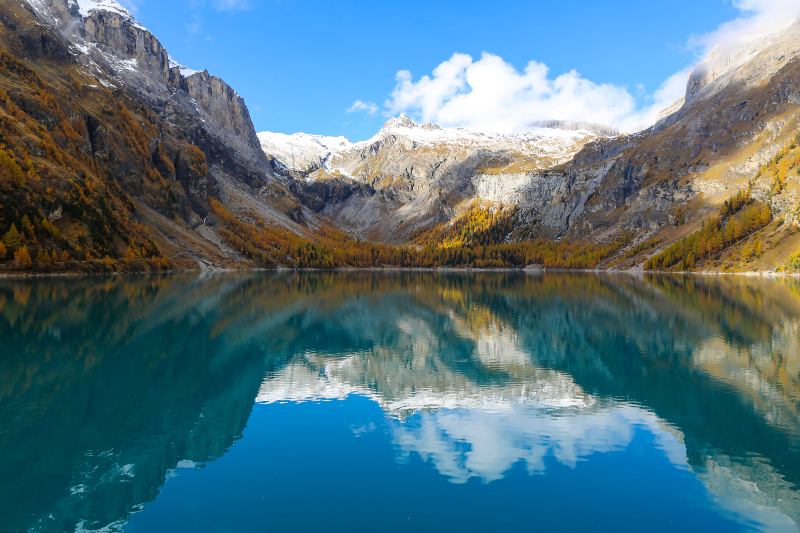
Switzerland offers surprisingly many free activities for one of the most expensive countries in the world. The country has stunning nature, and exploring its countless hiking trails often costs nothing.
Well, that’s the case for hikes that are accessible from urban areas. Access to hiking trails in the Alps is generally not as easy and often requires you to ride mountain trains and gondolas, which are very pricey.
But there are plenty of hiking trails to be explored without spending any money, as well as a bunch of free attractions. I can’t list everything, but I recommend you check out my detailed posts on free things to do in cities throughout Switzerland. I’ve got ideas for:
- Grindelwald
Botanical gardens and public parks are often free of charge in Switzerland, as are certain museums. CERN is also entirely free, so if you are traveling in the Lake Geneva region, stop by the famous science center to have your mind blown free of charge.

Additionally, the amount and nature of things you can do for free in Switzerland highly depend on the season. In the summer, you can usually go hiking for free, swim in the lakes and rivers, and even try climbing mountains. But in the winter you can’t do any of these things; you might be able to ice skate on a frozen lake or explore some winter hiking trails, but there are generally fewer cheap things to do in Switzerland once the snow falls.
Also, free walking tours are available in most Swiss cities. They’re not entirely free because you are expected to tip the guide, but it’s still significantly cheaper than organizing something with an official operator.
Finally, museums and other attractions can have discounted or even free access for select holidays and days of the month. Always check whether a place you want to visit grants discounts or free entrance for whatever reason, and you might just save some money in the process.
Cheap Places to Visit in Switzerland

Here’s the thing – there are no cheap places to visit in Switzerland. The prices are similar throughout most of the country with a few exceptions, and it’s expensive everywhere. One thing to keep in mind is that accommodation is often cheaper in bigger cities than in smaller villages, simply because there are more options. So, always choose to stay in a city or a town, as opposed to a village in the mountains.
On top of that, don’t plan a trip to Zurich or Geneva if you’re trying to do Switzerland on a budget. They’re the two most expensive cities in the entire country and by far the worst Swiss destinations for budget trips.
Instead, choose a smaller city. Chur, St. Gallen, Interlaken, and even Basel are all more affordable than Zurich and Geneva, especially in terms of accommodation and restaurants. Basel is a good destination because it’s close to the airport, it’s got many free activities, and you can easily travel to other destinations in Switzerland from the city.
Lucerne is one of my favorite cities and I highly recommend it to anyone who wants to experience authentic Swiss charm. It’s not exactly a cheap place, but you can find budget accommodation and visit many of the city’s best landmarks without spending a Franc. The Chapel Bridge, Spreuer Bridge, city walls, and the iconic Lion Monument are all free to visit in Lucerne.
More Switzerland Budget Travel Tips (Do’s and Don’ts)
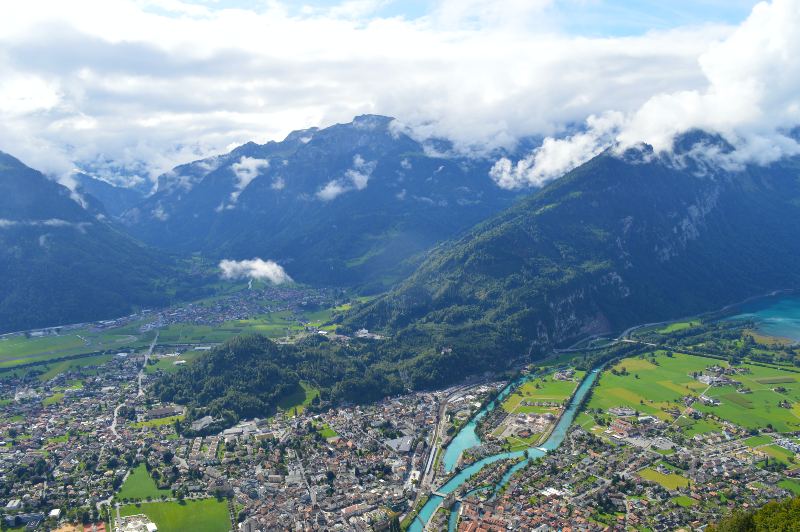
I’m not done with tips for saving money while traveling in Switzerland, and here are some more ideas.
- Travel in the off-season. The peak season in Switzerland (summer/winter) means higher prices of accommodation, transportation, attractions, and even restaurants. Avoid traveling during peak season for the best deals.
- Always ask for discounts. It never hurts to ask for a discount; the worst that can happen is that you get denied a discount and spend the same amount of money you would if you didn’t ask. So, whether it’s a hotel, museum, or whatever else, ask if they offer any special deals or discounts and see if you’re eligible. You can also haggle at souvenir shops and local boutiques to try and save some money while shopping.
- Look into the city cards . All major cities in Switzerland have city cards (not the same as city passes that you get for free) that offer free access to attractions, discounts, use of public transport, and other deals for a select period. City cards are often hit or miss, and it’s best to once again do the math; see which attractions you’d like to visit and calculate the cost of tickets vs. the cost of the city card. The Geneva city card is a really good deal and I highly recommend getting that one if you’re planning to visit many landmarks in the city.
- Mind the exchange rates. The currency used in Switzerland is the Swiss Franc. When paying by card, you can choose whether you want to pay in Francs or a different currency. It’s generally best to pay in Francs because you’ll get the best exchange rates. I highly recommend a wise.com account and one of their free cards because they’ve got minimal fees even for ATM withdrawals. Also, you don’t need that much cash in Switzerland, but it’s good to have some on hand, just in case. You’ll get the best rates if you withdraw Francs from your bank account at the bank, otherwise, you can use ATMs, but you’ll pay steep fees.
One thought on “ Switzerland on a Budget: Tips For Cheap Travel ”
Very good advice. We are six time travelers and it can be done as you say.
Leave a Reply Cancel reply
Your email address will not be published. Required fields are marked *
Get Our Free Swiss Tips Guide
Popular destinations, important pages, on social media, travel planning, certified swiss travel expert.

Switzerland on a budget: the best things in Schweiz are free

Apr 20, 2023 • 8 min read
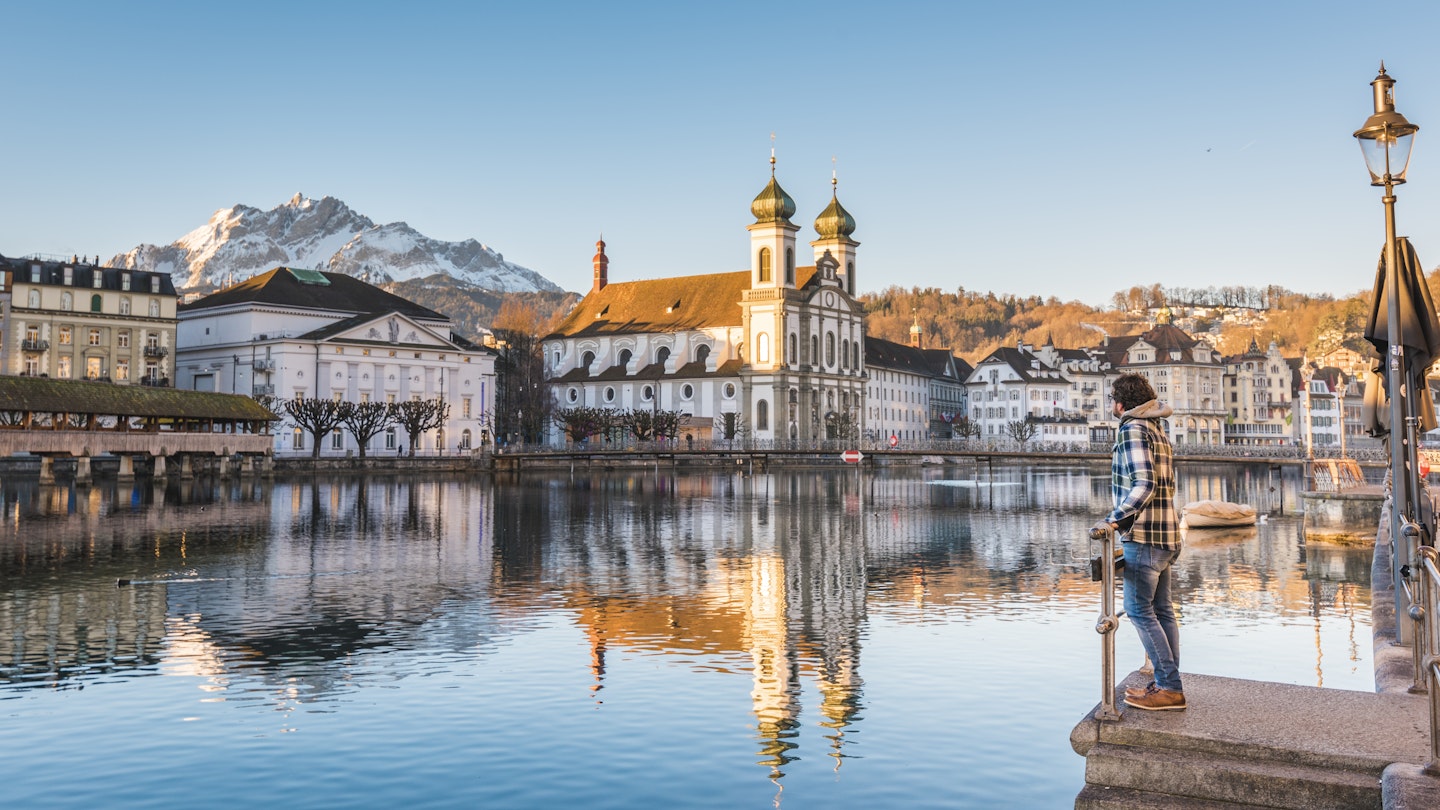
See the sights of cities like Lucerne on the cheap © Marco Bottigelli / Getty Images
Let’s face it, Switzerland doesn’t immediately spring to mind when you utter the words ‘cheap break’. This small alpine nation is known for being one of the priciest countries in Europe, with several of its cities regularly cited as among the world’s most expensive places to live.
But traveling within Switzerland on a modest budget is possible. If you plan carefully, make the most of available transport deals and prioritize the countryside over cities, this beautiful country is navigable by even the most frugal of travelers.
Get more bang for your buck on public transport
Switzerland’s famously efficient public transport system has a huge reach, with SBB trains and distinctive yellow postbuses supplying access to even the tiniest hamlet up the remotest mountain road. Tickets may seem expensive, but if you plan ahead there are ways to cut costs, and weighed against the price of car hire, fuel and parking, it’s an economical and hassle-free way to travel.
Designed for tourists, the Swiss Travel Pass offers unlimited travel across Switzerland from three to 15 days. Similar regional passes, such as the Tell-Pass in Central Switzerland, offer value for money if you’re traveling a lot within a certain area.
For longer stays, your best bet is a Half-Fare Travelcard , which allows you to buy tickets across the transport network at 50 percent discount; the yearly option is popular with Swiss residents, but there’s also a cheaper version just for tourists , valid for a month.
For more sporadic journeys, download the SBB app and search for Supersaver tickets, bookable in advance for specific services, or Saver Day Passes , which are good value if you want to travel a long way in a single day. The further ahead you book, the cheaper these tickets are. Kids under six travel free.
Ride local transport for free with your guest card
A small tourist tax is added to overnight stays in Switzerland, but in return you’re given a guest card, which offers free local public transport and sometimes extra benefits, such as cut-price admission to museums and attractions. The Ticino Ticket is the best example, offering free train and bus travel, plus discounts on mountain railways, cable cars, museums and activities within the Italian-speaking canton of Ticino.
Take a self-guided lake tour
Most transport passes, including the Swiss Travel Pass, Half-Fare Travelcard and Saver Day Pass, cover boat services too, so you can spend all day riding the ferries on Lake Geneva , Lake Lucerne or Lake Zürich within the terms of your pass.
And it’s not hard to fill your time – so large is Lake Geneva (Lac Léman, to give it its proper name) that the journey from Geneva to Montreux by ferry takes nearly six hours. Sit on deck and soak up the sun as you travel – but don’t forget a hat and sunblock (which you should bring with you, since it’s expensive to buy here).
Book into a swanky Swiss hostel
Even the most modest hotels can be budget-blowing in Switzerland, but thankfully there are alternatives. Swiss youth hostels are among the swankiest in the world, and while prices aren’t dead cheap, a dorm bed in the Saas-Fee Wellness Hostel 4000 (from Sfr61) or the Backpackers Lucerne (from Sfr34) is considerably less than a hotel room. Most hostels have kitchens so you can save money by cooking instead of eating out.
Head for the hills for bargain beds
If you’re willing to put in the – sometimes considerable – effort to hike there, Swiss Alpine Club cabins offer relatively inexpensive beds in eye-popping locations across the Swiss Alps and are open to non-members. Book ahead for a dorm bed, dinner and breakfast, and you’re guaranteed great food, a convivial atmosphere and the biggest starry skies you’ve ever seen. As an example, Cabane Rambert in the Vaud Alps costs Sfr43 for a dorm bed or Sfr91 half-board. Bring your own sheet sleeping bag.
Another budget choice is camping – check out camping.ch or tcs.ch for options. Swiss campsites are clean, well equipped and usually easily reachable by postbus, with prices starting from about Sfr9 per adult per night. You could even wild camp for free, though rules vary across the country, so always check with the local tourist office, ask permission if you’re on private land and follow the Swiss Alpine Club’s rules .
Lastly, the organization Agroturismo lists bed-and-breakfast options in farmhouses around the country, including places where you can bed down in a barn, known as Schlafen im Stroh (Sleep in Straw), for a bargain price.

Explore Switzerland’s glorious landscape gratis
Once you’ve got your transport and accommodation sorted, the best thing about Switzerland – the great outdoors – is completely free. The country’s numerous hiking and biking trails are well marked, with detailed maps available to download on Wanderland.ch .
If you have a travel pass, choose a starting point that’s accessible by public transport rather than shelling out extra for cable-car rides. As a rule, access to any village or community is part of the public-transport network. For example, the lift from Mörel to the mountain village of Riederalp is part of the network, while the cable car from Riederalp to the Moosfluh viewpoint over the Aletsch glacier – Europe’s longest river of ice – is run by a private company and ticketed separately. Save the fare and hike up instead.
Take a picnic – and make it vegetarian
Stopping off in a mountain cabin for a beer and a platter of meat and cheese is all part of the hiking experience, but if you’d rather save your centimes, pack a picnic instead .
There’s a Coop or Migros supermarket at most rail stations, so fill your backpack with fresh bread and pastries, dried meat, hunks of Gruyère cheese, pre-packaged salads and bottles of Rivella – a typically Swiss, milk-based fizzy drink – for a picnic in the hills among the alpine flowers and marmots. Meat can be expensive in Switzerland, so you’ll save even more if you go veggie.
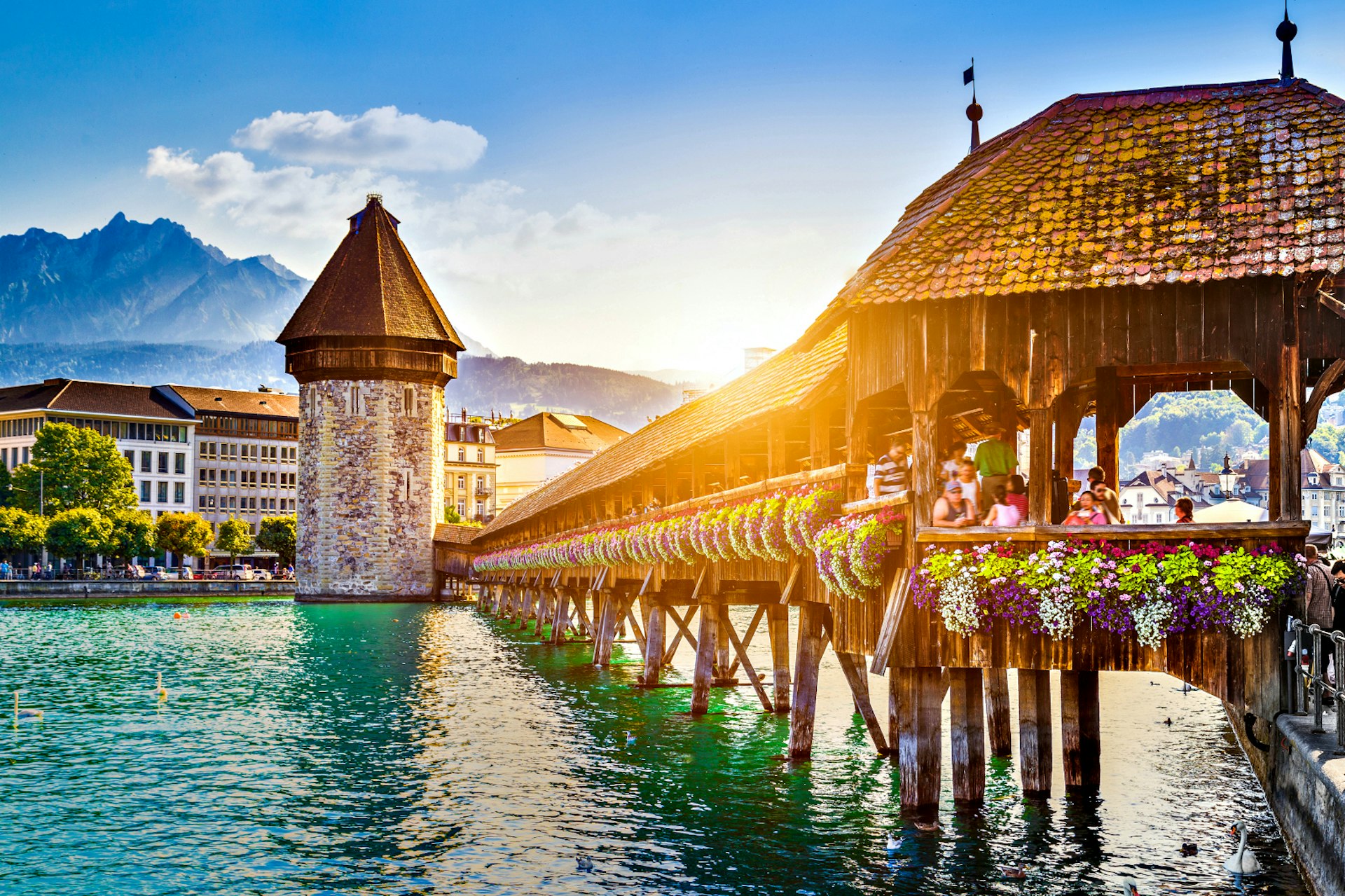
See the city sights on the cheap
It costs nothing to stroll through Bern ’s Unesco-listed medieval center, cross Lucerne ’s 14th-century Kapellbrücke or ogle the jet d’eau fountain in Geneva .
And if you plan carefully, it’s possible to visit many museums on the cheap too – the Kunsthaus Zürich offers free admission on Wednesdays, the Kunstmuseum Basel is free in the early evenings and the Musee d’art et d’histoire in Geneva has "pay what you can" entry. Children get in gratis to most museums.
Tuck into low-cost leftovers
The amusingly named Äss Bar ( ässbar in Swiss German, from essbar in German, meaning "edible") is an anti-wastage initiative that collects the bread, cake and pastries remaining in bakeries at the end of the day and sells them at low prices in its own shops the day after. It’s a good way to pick up a sandwich for a bargain Sfr4 or a slice of cake for Sfr3. Look out for it in Zürich, Lausanne, Basel, Biel, Bern, Lucerne and Winterthur.
Similarly, the Too Good to Go app hooks up customers with restaurants that have leftover food to sell at the end of service. If you’re willing to be flexible and spontaneous, you can buy dinner for a lot less than in the restaurant itself.
Enjoy some local lake life without spending a franc
Summertime in most Swiss cities revolves around the local waterways. Whether you’re in Zürich , Lausanne or Lucerne, you’ll find open-air swimming spots all over town, often with free or low-cost facilities.
Try the Oberer Letten baths on the River Limmat in Zürich, or Vidy beach near Lausanne on Lake Geneva, both of which are free. In Bern and Basel , put your belongings in a dry bag and float through the city in the fast-flowing River Aare and Rhine, respectively.
Book a low-cost autumn flight and see Switzerland turn golden
Fall is one of the best times to visit Switzerland , and flights are generally much cheaper than in summer or ski season.
September is ideal for hiking and biking, with the mountain lifts still open and the weather usually balmy instead of scorching. Most of the lifts are shut in October, but choose a hike accessible by train or bus and you’ll be rewarded with a blaze of autumnal color in the larch forests, a glorious sight that summer tourists miss out on.

Be a savvy skier at one of Switzerland’s lesser-known resorts
Skiing at a famous Swiss resort, such as Zermatt or Verbier, is an expensive business, not just for the ski pass but for the food and accommodation too. So soften the blow by choosing a less glitzy resort, where everything’s a bit more reasonable. Try Grimentz-Zinal in the Val d’Anniviers , Villars-Les Diablerets in the Vaud Alps or Leukerbad in the Valais .
If you’re planning to ski a lot, the brilliant Magic Pass offers unlimited access to 69 ski areas in Switzerland for the super-low price of Sfr399 if you buy it in early April for the following season. As a comparison, the season pass for Zermatt alone is Sfr1890.
Take your own water bottle and fill up for free
Tap water not only tastes a lot better in Switzerland than it does elsewhere (UK, I’m looking at you), but it’s also freely available from water fountains all over the country. Take a refillable bottle and top up wherever you go, from city-center fountains to mountains springs. It’s all drinkable as long as it doesn’t have a sign saying non-potable/ kein Trinkwasser .
Avoid city-center pubs and enjoy a pint at altitude instead
Drinking alcohol (or even a coffee or two) in Swiss cities can be a real wallet drainer, with cocktails at around Sfr25 and a pint of beer topping Sfr9 in Lausanne and Geneva. But that’s not the case everywhere. Head to a café or restaurant in a small village and you may find drinks are a lot cheaper, and your Sfr6 pint might just come with a delicious mountain view too.
Daily costs in Switzerland
- Hostel room: Sfr30–60 (dorm bed)
- Basic room for two: Sfr120–150
- Self-catered apartment: From Sfr150
- Public transport ticket Geneva to Bern (159km): Sfr51
- Coffee: Sfr3.50–5.50
- Sandwich: Sfr6–10
- Dinner for two: Sfr80–100
- Pint at the bar: Sfr6–9
- Average daily cost total: Sfr200–300
This article was first published Jul 16, 2019 and updated Apr 20, 2023.
Explore related stories
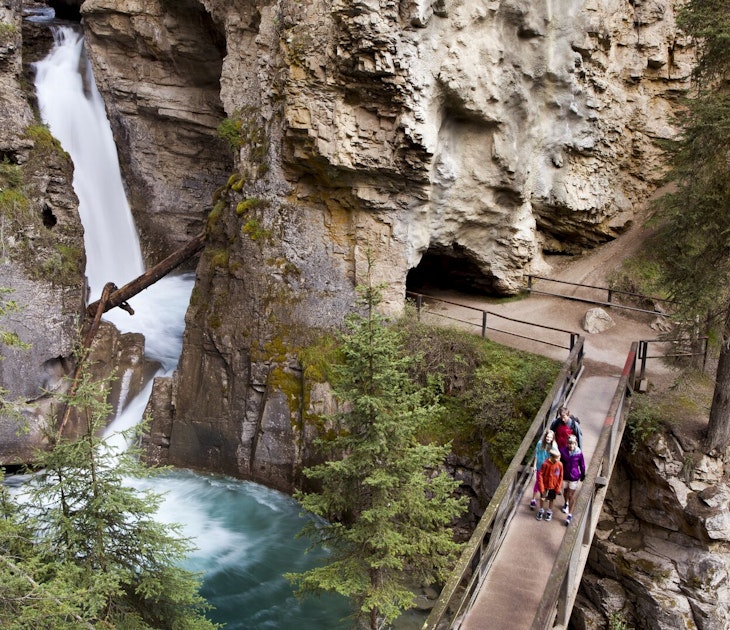
Apr 19, 2024 • 10 min read
Summer is just around the corner in the northern hemisphere. Here's where the Lonely Planet team is going.
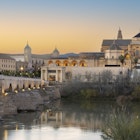
Apr 12, 2024 • 9 min read

Mar 15, 2024 • 8 min read
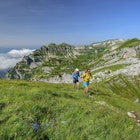
Mar 14, 2024 • 16 min read
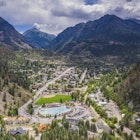
Mar 13, 2024 • 7 min read

Feb 23, 2024 • 5 min read
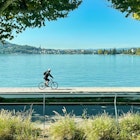
Jan 24, 2024 • 7 min read
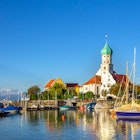
Jan 19, 2024 • 11 min read
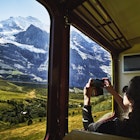
Jan 16, 2024 • 8 min read

Jan 8, 2024 • 8 min read

11 Cheapest Ways To Travel Switzerland On A Budget [2024]
- Post author: Nicoletta
- Reading time: 38 mins read
- Post last modified: March 4, 2024
- Post comments: 0 Comments

Many people think that traveling in Switzerland is incredibly expensive. That is why they eventually decide to spend a day in Zürich and walk away. However, such a decision only convinces them that Switzerland is an expensive country.
It doesn’t necessarily have to be true if you can find your way . I visited Switzerland for the first time in a month and saved significant money. After that, I lived there for 3 years and found many ways to cut your expenses .
So, in this article, I’ll reveal the 11 cheapest ways to travel to Switzerland on a budget and explore as much of this stunning country as you want.
11 Cheapest Ways To Travel Switzerland On A Budget: Quick Guide
Here is a quick list of the cheapest way to travel in Switzerland for you:
- Get Swiss Travel Pass
- Purchase Half-Fare Card
- Get Saver Day Pass
- Buy Single Train Tickets Online In Advance
- Get Regional Passes
- Plan Your Itinerary
- Go Camping/Hostels
- Stay In A Local Family
- Avoid Restaurants
- Find Local Markets
- Bring Your Water Bottle
✈ Travel Resources For Your Trip ✈
Here are some of my favorite travel resources I use for my travel adventures.
1. Get Swiss Travel Pass or Swiss Travel Pass Flex
The most important thing is getting a travel pass to see Switzerland. Never pay for a single ticket unless you buy it at a specific place for less or just need to make a single train ride.
With a travel pass, you’ll save up so much in Switzerland.
Swiss Travel Pass
If you want to travel to Switzerland for a longer time (at least 5 days) and see different places (at least 5), the best way to save up is to purchase a Swiss Travel Pass .
This Pass is available for 3, 4, 8, or 15 days . All trains, buses, boats , and public transportation in cities are included in the Pass.
You can choose between 1st and 2nd class . If you are young, below 26 years old , your Pass will be considerably cheaper than for an adult (26 years and above).
Depending on the number of days you choose, you must travel on consecutive days with a Swiss Travel Pass.
Swiss Travel Pass Flex
Swiss Travel Pass Flex works the same as the Swiss Travel Pass. The only difference is that you can use the flex one on the chosen number of days within a month . In comparison, the Swiss Travel Pass has to be used on consecutive days.
Traveling with a Swiss Travel Pass in Switzerland is suitable for a longer itinerary .
Follow my 8-day Switzerland itinerary , which is designed to travel with a Swiss Travel Pass. Get the most out of Switzerland and your Swiss Pass, and save a lot.
👉 READ ALSO: Is Swiss Travel Pass Worth It?

2. Purchase Half-Fare Card
Half-Fare Card is another great way to travel to Switzerland on a budget. It’s very similar to the Swiss Travel Pass Flex and can be a cheaper option in some cases.
If you want to travel to Switzerland for a few days and visit only specific places on your bucket list, the Swiss Half-Fare Card can be the best deal for you.
It costs 120 CHF for a month of travel in Switzerland. Once you have it, you’ll get 50% off every train , bus , boat , and cable car ride .
➡ Book your Half-Fare Card For Switzerland here.
Comparison 4-Day Swiss Itinerary (Half-Fare Card vs. Swiss Travel Pass)
Let’s say you have an itinerary for 4 days in Switzerland. And you only want to visit Lucerne , Interlaken , Jungfraujoch , Montreux , Zermatt , and Gornergrat .
If you calculate costs for all train rides and mountain excursions for this itinerary, you’ll see that having Half-Fare Card will be cheaper than having a Swiss Travel Pass. I calculated it, and it was around 150 CHF cheaper with Half-Fare Card.
So the longer you travel and the more places you want to visit , the better value the Swiss Travel Pass brings.
If you have a shorter itinerary and a few specific places to tick off your Swiss bucket list, Half-Fare Card will be more economical for your trip.
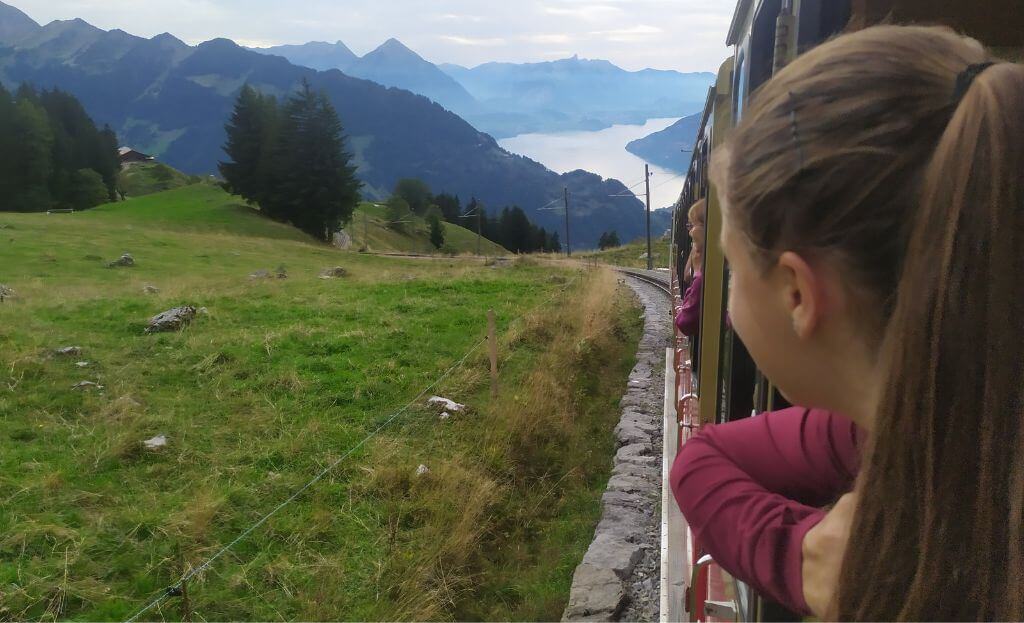
3. Get Saver Day Pass
If you only have one day in Switzerland , the best deal you can get is the Saver Day Pass. It’s a pass that you can use for all trains, buses, boats, and public transportation in cities in Switzerland. However, it’s not valid for mountains in Switzerland .
Let’s say you’re in Paris and want to visit Switzerland for a day . You arrive in Zurich and want to travel to Lucerne and take a boat ride on a Swiss Lake . After, you’ll stay overnight in Switzerland and leave the country the next day . In this case, Saver Day Pass will be the cheapest way to travel to Switzerland for you.
You can buy it on the official SBB website .
PRO TIP: The more in advance you buy the Saver Day Pass, the cheaper it gets.
👉 READ ALSO: Trains From Paris To Switzerland: Comprehensive Guide Fastest Way From Paris To Zermatt

4. Buy Single Train Tickets Online In Advance
If you only have to take a single train ride in Switzerland, there are two ways to travel on a budget . Get the SBB App and buy your ticket in advance through the app. It usually has cheaper train tickets .
➡ Check the Trainline website for the best deals.
I lived in Switzerland for 3 years . I got a seasonal/regional pass for every season to explore the places I wanted to. However, this pass wasn’t valid for train connections to other Swiss cities. So whenever I had to travel to other parts of Switzerland, I got my ticket on Trainline . It saved me hundreds of money.
So check it out, buy your single ticket online, save it to your phone , and travel. Have an ID or passport with you as they’ll check it on the train .
5. Get Regional Passes
If you only want to explore a specific region in Switzerland , the cheapest way to travel on a budget is to get a regional pass.
The most popular regional passes in Switzerland are:
- Jungfrau Travel Pass
- Berner Oberland Pass
- Lake Geneva-Alps Pass
- Zermatt Peak Pass
- Davos Klosters Premium Card
With these regional passes, you’ll explore the entire region using trains, buses, boats, and cable cars to the mountains free of charge .
These passes are the best way to explore a specific region if you’re staying longer and want to do at least 3 activities there.
👉 READ ALSO: Which Pass Is Best For Jungfraujoch? Which Pass Is Best For Schilthorn? Revealed! Jungfrau Travel Pass vs. Swiss Travel Pass

6. Plan Your Itinerary
Planning your itinerary always saves your travel costs . Your costs significantly decrease when you’re organized and know what you’ll do and where you’ll go.
For instance, if you purchase the Swiss Travel Pass and intend to see many places, you’ll need an itinerary to get the most out of your pass . The Swiss Travel Pass already saves you a lot, but you can waste it if you don’t plan .
Look up train departure times, boat timetables, and cable car duration, and organize your journey . You can see more within a day than if you don’t plan.
So plan your itinerary, be organized, and get the most out of your trip and a travel pass.
Travel Itinerary Planning Services

7. Go Camping/Stay In Hostels
Accommodation in Switzerland can get expensive. But if you know where to stay, you can travel to Switzerland on a budget and save on accommodation.
One of the cheapest ways to travel to Switzerland is to go camping. However, you don’t specifically have to stay in a freezing tent and be uncomfortable.
Some places have big tents (like a hostel) where you can stay. It has a regular bed, and it’s warm inside. The best is that you’ll save a lot rather than staying in a hotel.
PRO TIP: One such camping tent is located in Matten bei Interlaken . So you can stay there if you want to explore the Jungfrau region.

8. Stay In A Local Family
Another way to save on your accommodation and even get some pocket money is to help a local family and stay with them for a while.
I spent 14 days on a Swiss farm in the mountains above Lake Brienz at the age of 22. I stayed there for free and helped the family make cheese .
Every day, I woke up and fell asleep with stunning views of Lake Brienz. I learned how to make delicious Swiss cheese, helped the family, and got to stay in Switzerland for free.
And I even got some pocket money that I used after exploring Switzerland.
PRO TIP: You can find such stays on the Agriviva website or Workaway .
👉 READ ALSO: How Swiss Cheese Is Made – learn about my experience on a Swiss cheese farm

9. Avoid Restaurants
Restaurants in Switzerland are quite pricy. And honestly, many are average, and the food is not good. Of course, if you want to try Swiss fondue , a typical dish, the way to go is to eat in a restaurant .
However, you don’t have to eat in a restaurant every single time during your trip. Instead, go to a supermarket , make a sandwich, or buy stuff for the day.
You can also picnic in the mountains or near the beautiful Swiss Lakes. And it’ll be a much more enjoyable experience.
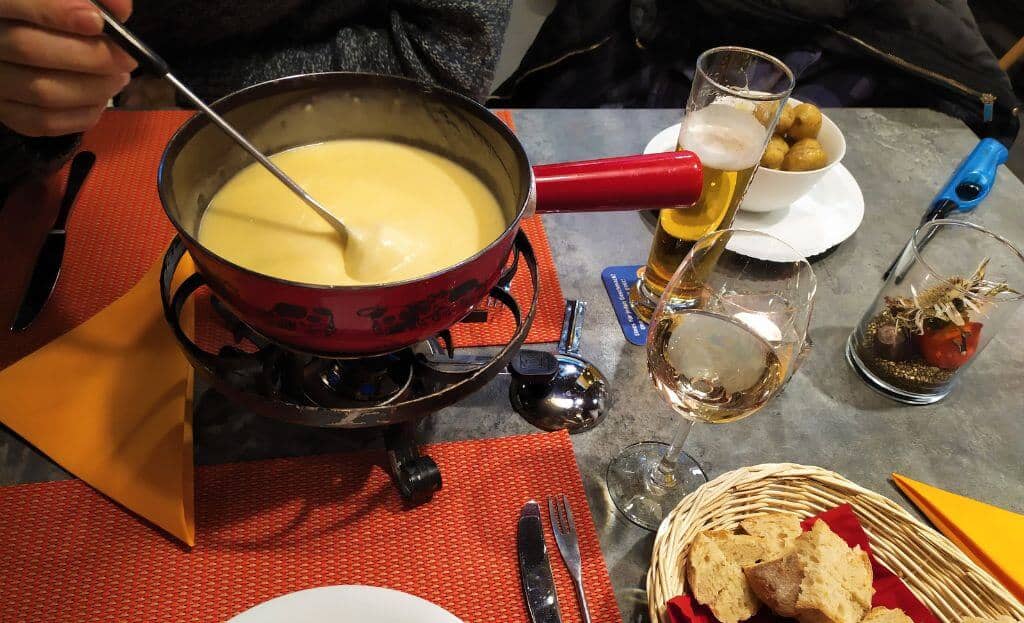
10. Find Local Markets
Some places organize local markets, where you can taste samples of typical food and support local communities . So check the area you’ll visit in Switzerland and whether they organize markets when you’re there.
It’s a cheaper and better alternative to eating in a restaurant.
11. Bring Your Water Bottle
Switzerland has the best water ever . No wonder vast mountains and glaciers surround you. So the water is clean and comes directly from pure nature. So take advantage of it and bring your water bottle.
There is no need to buy bottled water in a supermarket in Switzerland. The best way to go is to drink tap water . Or you can also drink the water from springs when hiking in Switzerland.

👉 READ ALSO: Switzerland In November: Best Things To Do & See
Practical Tips For Visiting Switzerland
I’ve got some further tips to help you plan your trip to Switzerland. See what month is best to come, budget you’ll need, and get my free packing list below:
What Month Is Best To See Switzerland
The best months to see Switzerland are June and September .
In June , everything is beautifully green: hills are full of mooing cows, rivers are full of blue waters from the melting glaciers, mountains are still snowy, and waterfalls are falling off steep rock cliffs. It’s also much less crowded than in the summertime (July & August).
September shines with autumn colors , and Switzerland gets a slight upgrade. It’s a beautiful month; everything calms down after the busy summer season, and the landscape views are spectacular. However, it can snow towards the end of September, but it’s not usual.

What Is The Best Way To Get Around Switzerland
The best way to get around Switzerland is through public transportation : trains , buses, boats, and cable cars . This way, you’ll enjoy the breathtaking scenery and soak in the atmosphere.
The best way to use public transportation on a budget is to purchase a Swiss Travel Pass or a Half-Fare Card . They’ll help you save 50% of your travel costs in Switzerland. Check out the list of cheapest ways to travel Switzerland to learn more about these travel passes.

How Much Should You Budget For A Trip In Switzerland
I’ve created a simple table for you comparing costs in Switzerland or individual travel items. Check it out below so that you know what budget you need for your Swiss trip.
Overall, you’ll spend around 100 Swiss Francs per day if you want to travel to Switzerland on a budget and still enjoy some attractions.
How Expensive Is Switzerland?
I’ve also written a separate article about expenses in Switzerland . It’s a detailed guide on budgeting your trip, how much things approximately cost, and what you can expect. It also covers the cost of living and further useful tips .
Check it out by clicking on the image below :

Get My Switzerland Packing List
Packing for a Swiss trip might be challenging because you have to prepare for all kinds of weather conditions . Nevertheless, I packed everything into a backpack for my month-long trip to Switzerland . And I want to help you with packing.
So get my Switzerland packing list for free, save time, and don’t overpack

I’ve also answered some of the frequently asked questions to help you plan your trip to Switzerland and create the best experience for you. So check them out below.
Is It Possible To Travel To Switzerland On A Budget?
Yes, it’s possible to travel to Switzerland on a budget. The most important thing is to get a travel pass , plan your journey , and avoid eating in restaurants all the time. This is the best way to travel to Switzerland on a budget.
What Is The Cheapest Way To Travel To Switzerland?
The cheapest way to travel to Switzerland is to buy a Swiss Travel Pass , Half-Fare Card , or a regional pass . With travel passes, you’ll save time and see the entire Switzerland.
If you stay in Switzerland longer and want to see many places , buy a Swiss Travel Pass .
If you have a shorter itinerary and only want to check some places off your bucket list, opt for Half-Fare Card . Get a regional pass if you only want to visit a specific region (e.g., Jungfrau region).
How Many Days In Switzerland Is Enough?
Switzerland is a beautiful country and offers many things to do. An optimal number of days to stay is between 8 to 14 days .
8 days is the shortest time to explore the highlights of Switzerland. If you want to see different regions and spend some time hiking, staying 10 to 14 days in Switzerland is best .
How Much Does It Cost To Spend 10 Days In Switzerland?
If you have a 10-day itinerary, plan to spend between 2000 CHF and 3000 CHF for the entire trip. It might seem a lot, but it’s considering that you’ll get the most out of your trip , do all the sightseeing activities and things the country offer, and eat well.
If you’re on a budget , you can plan to spend around 1000 CHF during 10 days in Switzerland.
What Is The Best Way To Tour Switzerland?
The best way to tour Switzerland is by train. Get a Swiss Travel Pass and explore all the corners of Switzerland. The best is to follow the Grand Train Tour of Switzerland on your own to see all the Swiss highlights. This way, you won’t miss anything important and will get the most out of your Swiss Travel Pass.
How To Travel Around Switzerland By Train?
The best way to travel around Switzerland by train is to follow the Grand Train Tour of Switzerland . It’s a designed itinerary by the Swiss tourism board to explore the highlights of Switzerland.
To get the most out of train travel, the best way to get around is to use a Swiss Travel Pass . It’ll give you flexibility, free travel on trains, buses, boats, and cable cars, and save you 50% off your travel costs.
Wrap-Up: 11 Cheapest Ways To Travel Switzerland On A Budget
These are the 11 cheapest ways to travel Switzerland on a budget. I hope it’ll help you plan your Swiss itinerary and get the most out of your trip to Switzerland. Switzerland is not the cheapest country in Europe, but you can significantly save costs .
The most important thing is to plan your journey , choose a good travel pass that suits your travel, and save up on food in Switzerland. This way, you’ll be able to travel Switzerland on a budget.
If you have any questions or need help planning your trip to Switzerland, contact me at info(at)voicesoftravel.com . I’ll gladly help you.
Happy Travels!
More Tips For Switzerland Travel
Looking to visit more places in Switzerland? Check out my related articles:
Best Of Switzerland Itinerary: 8 Days By Train
3 Days In Switzerland: 11 Itineraries For All Travelers & Seasons
Honeymoon In Switzerland: How To Plan Your Romantic Gateway
Best Time To Visit Switzerland
22 Amazing Day Trips From Interlaken
23 Incredible Things To Do In Jungfrau Region
Is Jungfraujoch Worth It? Ultimate Guide
5 Best Panoramic Trains In Switzerland
8 Best Mountains In Switzerland To Visit
Jungfrau Travel Pass vs. Swiss Travel Pass
Swiss Travel Pass: Unlimites Travel In Switzerland
Brienz Switzerland: Best Things To Do & Places To Visit
Grindelwald In Winter: Complete Guide For Your Visit
Does Switzerland Use The Euro? Revealed!
How Swiss Cheese Is Made
Switzerland Vs. Austria: Which Is Better To Visit?

About the author: Nicoletta is a travel enthusiast and passionate language learner. While traveling, she loves to connect with locals using her language skills to learn about new cultures. Look for her skiing, hiking in the mountains, or exploring new destinations as she designs travel itineraries for her clients.
SWITZERLAND : Interested in more articles for Switzerland? Check out my Switzerland Travel Page .

You Might Also Like

Best Of Slovakia Itinerary: 8 Days In Slovakia
![cheapest way to travel to switzerland Read more about the article Best Of Prague Itinerary: 3 Days In Prague With Map & Tips [2024]](https://voicesoftravel.com/wp-content/uploads/2024/01/prague-itinerary-3-days1-1-300x213.jpg)
Best Of Prague Itinerary: 3 Days In Prague With Map & Tips [2024]
![cheapest way to travel to switzerland Read more about the article Where To Stay In Ometepe Nicaragua: Best Areas & Hotels [2024]](https://voicesoftravel.com/wp-content/uploads/2023/03/where-to-stay-in-Ometepe-1-300x213.jpg)

Where To Stay In Ometepe Nicaragua: Best Areas & Hotels [2024]
Leave a reply cancel reply.
You must be logged in to post a comment.

The Cost of Travel in Switzerland: My 2024 Budget Breakdown
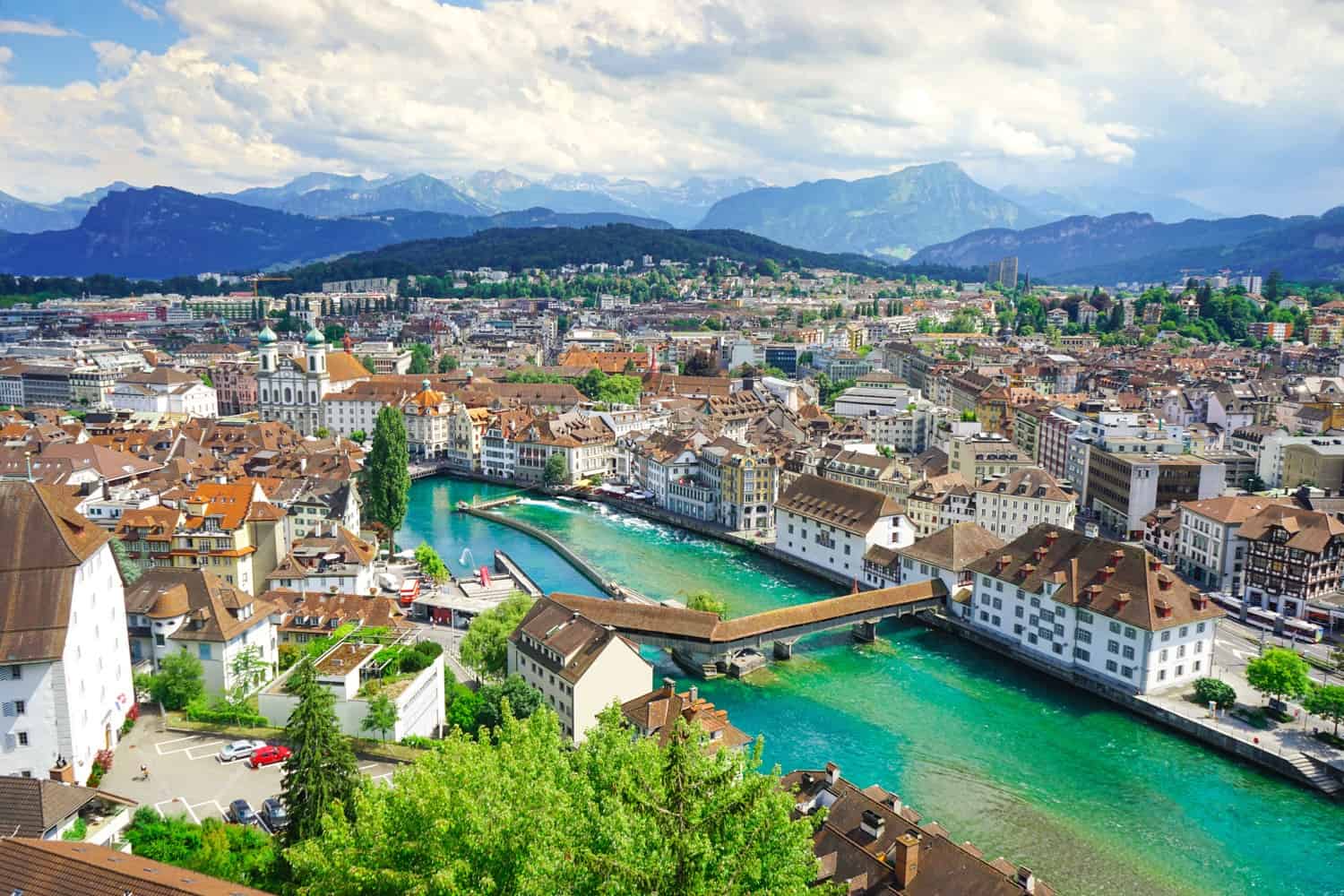
Is Switzerland expensive? This European country has a reputation for being one of the most expensive countries on the planet, but how accurate are the rumours?
Well, I hate to break it to you, but, uh, yeah, they’re pretty accurate.
Personally, I’ve travelled to a hundred countries over the past decade and Switzerland? Even on my most recent visit, taken at a time where everywhere has become more expensive, it still easily mades the top three when it comes to price.
It’s not all bad news, however, as I found tons of way to cut costs and find great value for money. Whether it’s using one of the many discount passes available, seeking out street food instead of eating in restaurants, or opting for comfortable guesthouses over high-end hotels, there are plenty of ways to keep on budget.
I’ve been keeping track of every single dollar I’ve spent over my past 12 years of travel, and I love distilling that information into detailed budget breakdowns. In these articles, I aim to share exactly how much I spent while travelling, covering budgets for all different kind of travellers, and ways in which you can lower your costs.
Today it’s Switzerland’s turn, so let’s get started.
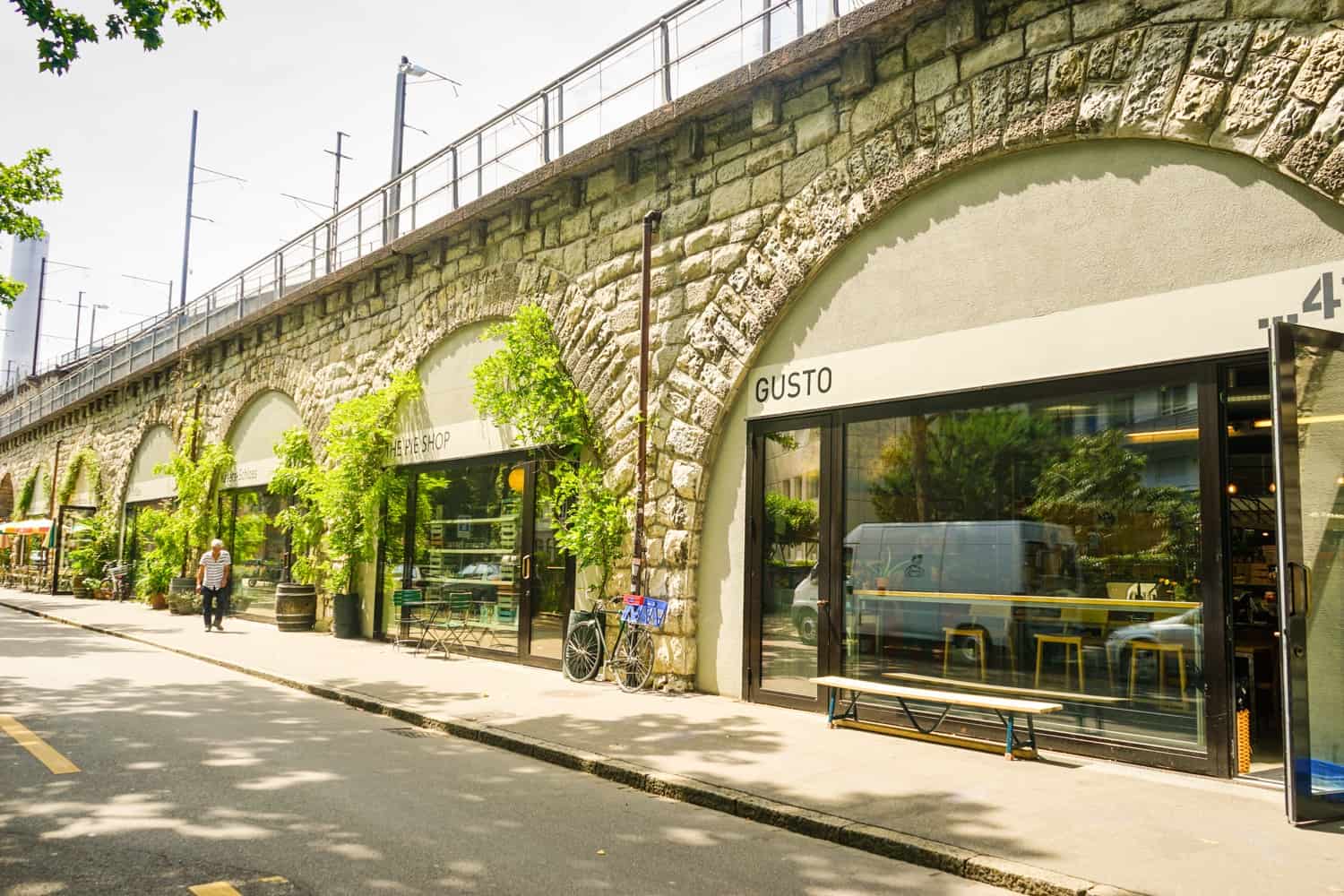
The Cost of Accommodation in Switzerland
You can visit Switzerland on a whole range of budgets, from a CHF 23 (€24) a night dorm bed in the Alps to an absolutely incredible CHF 900 (€950) a night hotel , the latter of which is the best hotel in Zurich and a haven for world-famous celebrities.
In this blog post, I’m going to be focusing on value . Because whether you’re travelling as a solo backpacker on a shoestring, as part of a couple on a mid-range budget, or as a family looking for a little luxury, value is the one thing you’re going to be keeping an eye out for. That doesn’t mean cheap — it means offering more than similarly-priced options.
There’s some seriously expensive accommodation up for grabs in Switzerland, so to start with, I’m going to cover the cheapest ways to find a bed for the night.
If you’re on the tightest of tight budgets, there are several options that’ll land you with free accommodation while you’re in the country. Courchsurfing allows you to connect with locals by sleeping on spare sofas in their homes. It doesn’t cost a penny to do so and is a fantastic way to gain an insight into Swiss daily life away from the tourists. There are close to 250,000 hosts in Switzerland, so there’s sure to be someone who’s right for you.
Housesitting is a more upmarket way to avoid paying for accommodation, as it’s aimed at the mid-range and luxury travellers. You’ll be looking after homes and pets while their owners are on holiday, and the houses can be extremely luxurious. This option works best if you don’t have fixed travel dates, as you’ll be agreeing to dates that the owners set.
Finally, when it comes to free accommodation, you could take a look at WorldPackers in Switzerland , where you’ll be able to volunteer with locals in exchange for food and board. I’ve seen some seriously cool options available on the site, from working at an eco farm in the Alps to helping build a yoga studio in a small, traffic-free village in the mountains. Readers of this site get a $10 discount for WorldPackers with the promo code neverendingfootsteps .
If you’re not looking to travel for free and just want a clean and comfortable room to sleep in, there are plenty of great options, too.
One of the most affordable ways to explore Switzerland is by staying in a hostel. I stayed in several during my first visit to the country and was impressed by their quality: I just wish there were more of them! Let’s look at the best-reviewed hostels in the country.
- The best hostel in Zurich is easily the Zurich Youth Hostel , where a space in a six-bed dorm is priced at just CHF 57 (€60) per person , and private doubles come in at CHF 136 (€144) per night . We loved our stay here! The included Swiss-style breakfast was delicious (and another great way to save money), and we really liked how close it was to Lake Zurich. Chilling out with a drink beside the lake on a summer evening is one of my favourite memories of the city.
- In Bern , you can’t get better than Bern Backpackers where the dorms are CHF 41 (€44) per night and the private double rooms are CHF 103 (€109) a night . You couldn’t ask for a better location either, just a ten minute walk from the main train station in the centre of town. There are a few other good hostels in Bern as well, but this one is rated just as well while being far cheaper than the alternatives.
- You’ll likely be heading to Lucerne while you’re in Switzerland, and if so, I recommend Young Backpackers Homestay , which has dorms for CHF 116 (€122) a night and double rooms for CHF 174 (€184) a night . It’s certainly pricey for a hostel, but it’s also the best-rated hostel in the entire country! It’s not hard to see why: it feels more like staying at a fancy ski lodge than a traditional backpackers, with everything from a sauna and hot tub to a foozball table, commercial-style kitchen, and incredible views from the cozy lounges and patios. Trust me: it’s 100% worth the price.
- Basel is home to Silo Design & Boutique Hostel , where dorms are priced at CHF 63 (€67) a night and doubles at CHF 142 (€150) . No wonder it’s the best-rated budget accommodation in town, with its great location, friendly staff, tasty included breakfast, and immaculate vibes.
- What about Geneva ? MEININGER Hotel Genève Centre Charmilles is the only place I’d consider staying. Not only is it inexpensive (well, for Switzerland) at CHF 42 (€45) a night for a dorm and CHF 141 (€149) for a twin, but the design is sleek, the location perfect, and the continental or buffet breakfast delicious.
Overall, then, you can see that you can expect to spend CHF 40-60 ( € 42-63) a night for dorms in most parts of Switzerland, and CHF 100-140 ( € 106-148) a night for the cheapest double rooms in each destination.
Okay, but what if you’re not a budget traveller and just want to stay in a lovely, well-reviewed hotel or guesthouse that’s good value for money and has all the things you need from a place to lay your head? I’ve got you! For around €150-200 a night , you’ll be able to stay in an excellently-reviewed hotel, in a central location, with friendly staff.
My 2024 Accommodation Recommendations for Switzerland
When I’m travelling, I’m always conscious to book the absolute best accommodation out there. I can easily spend days researching accommodation for every stop along my way, ensuring I’ve chosen the place in the best location with the friendliest staff, and the greatest value for money.
My biggest tip? When you head to Booking to find a hotel, ignore the results that are sorted under “Our Top Picks” — that’s a list of all of the hotels that pay Booking the highest commission, some of which have pretty poor write-ups. Instead, opt to sort the properties by “Top Reviewed”. That way, you’ll be able to see which properties actually have the best reviews.
To give you an idea of what you can expect to spend on a trip, I always like to share where I personally stayed and what I thought of the accommodation. All of the properties below come in at a mid-range budget:
In Zurich , the choice is easy: I’d highly recommend the recently-opened Locke am Platz Zurich , where double rooms cost CHF 194 ( € 205) . Trust me: the price is actually super-reasonable (by the standards of this expensive city!). This hotel is sooooo stylish; I was obsessed with all the little interior design features! Our room came with its own kitchenette, which helped us save money on food. There was an excellent restaurant downstairs, too, which was great for dinners in the evening if you don’t feel like heading outside. The hotel’s in a great location, too, close to parks, gardens, and the lake, with a station for the airport train just down the street.
For Bern , I’d recommend opting for Stay KooooK Bern City . It’s in the best location in the city; a five minute walk from the main train station and close to most of the city’s main attractions. The compact, modern rooms cost CHF 211 (€233) and were home to the most comfortable beds in the country. Well, in my opinion, at least! You’ll get amazing views across the city from the rooftop terrace, and I loved having access to the shared space, dubbed “The Flat”, which includes a large kitchen, lounge, and games room for all guests to use. I was a big fan of this place.
For Lucerne , your best option is Hotel Goldener Stern . This near-new hotel is in a great spot right on the edge of the Old Town, an easy stroll from all the major attractions and the lake. The rooms ( CHF 181/€191 for a double) are immaculately clean, with everything you might need inside: there’s a desk for getting a bit of work done, a coffee machine to help get the day started, and a fridge so you can guarantee a cold drink when you come back from a few hours exploring in the summer heat.
For Basel , I really enjoyed Hotel Spalentor , a delightful hotel that was only a five minute walk from the old town and university, and provides impressive value for money at CHF 170 ( € 180) . The rooms are modern and surprisingly spacious, super-quiet, and with a coffee machine to boot. I especially appreciated the fitness centre and spent many afternoons in their lovely garden with a drink in hand. Bikes are available for free to use during your stay, and there are even DVDs you can borrow from reception if you’re in the mood for a lazy day inside.
Okay, as soon as I discovered that you could stay on Lake Geneva (rather than beside it), I was sold. Floatinn Boat-BnB is a luxury catamaran, moored right beside the downtown area and opposite the famous Jet d’Eau fountain. The cabins (CHF 206 / € 218) are comfortable if a little snug (you’re on a boat, after all!) but all have a private bathroom, and there’s a large sundeck to laze on and admire the incredible view. All of Geneva’s attractions are within an easy walk, but make sure you don’t rush off first thing in the morning: the owner rustles up an incredible breakfast. Such a unique property and one that I can’t stop dreaming about!
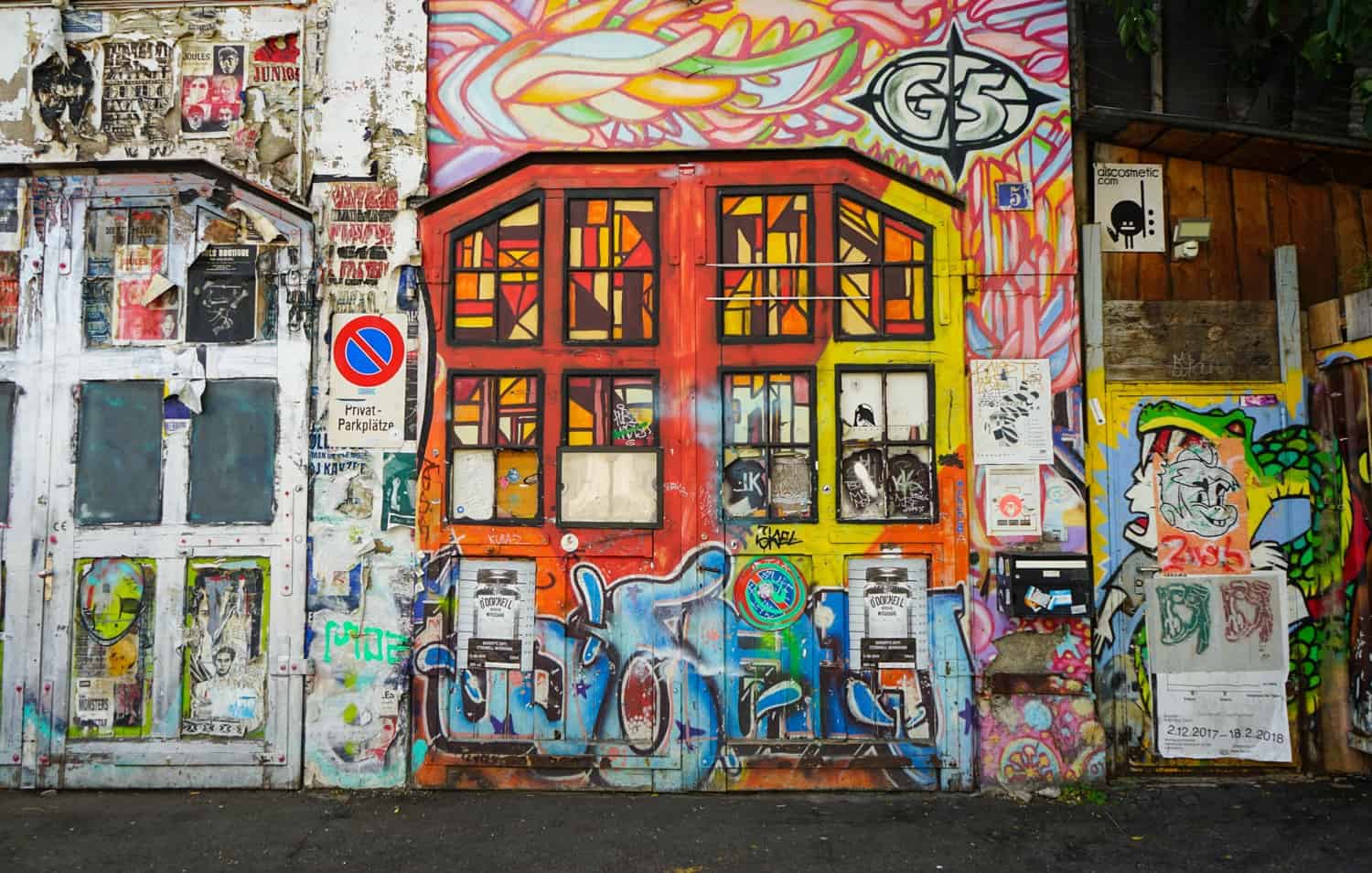
The Cost of Transportation in Switzerland
Transport around Switzerland can get pretty expensive, but there are definitely ways to save money. If you’ll be in the country for a while or just expect to do a lot of moving around while you’re there, the best tip I can offer is to pick up a Swiss Half Fare card .
Only available to overseas visitors and valid for 30 days, it costs CHF 120 / €127 up front. After that, you get 50% off basically every train, bus, and boat trip you take in the country, most mountain railways, and all public transport in 90+ cities and towns. If you’re travelling with kids, you can also get a free Family Pass with your card: using that, one child under 16 travels free for each adult with a card. This can really cut down the cost of family travel!
Whether you’ve got a pass or not, you’ll save money if you’re happy to give up some flexibility. Where they’re available, supersaver tickets with fixed departure times are cheaper than “point-to-point” tickets that let you travel at any time on a given day. Just be sure not to miss the train: you’ll need to buy a replacement ticket if you do!
Many major cities also provide free local transport passes to overseas hotel guests, at least for the first 24 hours. Be sure to grab one if it’s offered! That said, every city in Switzerland is very walkable, so you shouldn’t need to use public transport to get around if you’re staying somewhere central. I walked absolutely everywhere — even in Zurich — and never once found it difficult or tiring to do so.
Note that in some cities (like Zurich), certain ferry routes on the lake are also included in the public transport zone system. Confirm the details for any specific ferry you want to take, but if you’ve got a 24-hour or other all-inclusive public transport pass, it’s a good way of getting out on the water!
While it’s possible to fly between certain cities in Switzerland, it’s really not worth doing. It’s not a big country, and the trains are fast, efficient, and noticeably cheaper than taking a plane. Getting between Zurich and Geneva ( from one end of the country to the other) takes under three hours, starts and finishes right in the central city, and costs around a third of a comparable flight.
Finally, it’s worth mentioning the Swiss All-in-One Travel Pass, which provides unlimited travel for anywhere between 3-15 days on all Swiss trains, buses, and public transport. It also includes free entry to hundreds of museums, one free mountain excursion, and discounts on many others. You can get all the details for it here .
With that out the way, here are a few examples of what you should expect to pay for transport in Switzerland.
- Train or tram from the airport to downtown Zurich: CHF 3.40 (€3.60)
- Zurich tram, bus, or ferry – single ride in one or two zones: CHF 4.60 ( € 5)
- Zurich 24-hour public transport pass (two zones): CHF 9.20 (€10)
- Train from Zurich to Lucerne (one-way): CHF 19 (€20)
- Train from Zurich to Geneva (one-way): CHF 64.40 (€68)
- Train and bus from Zurich to Vaduz, Liechtenstein: CHF 31.80 (€33.80)
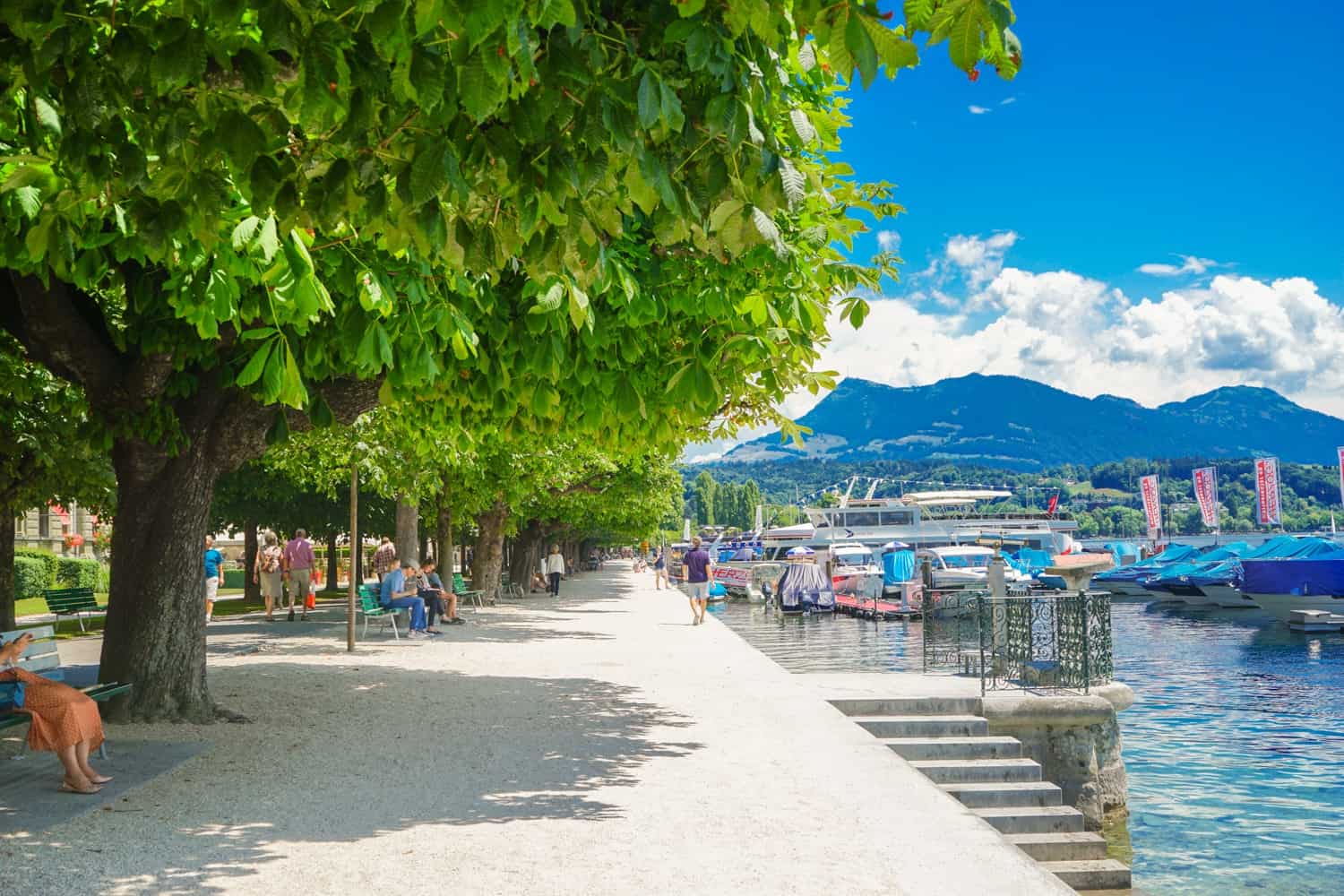
The Cost of Food in Switzerland
If I were to ask you what you know about Swiss food, odds are, you’d come back to me with two iconic dishes: cheese fondue and chocolate. After all, they’re two of Switzerland’s most famous creations, so — unless you don’t eat dairy! — you’re definitely going to want to sample both while you’re in town.
Fondue is life up in those Swiss mountains, and most restaurants offer it on their menus. You can think of it as a gigantic cheese dip that’s often served in a communal pot atop a small stove. To eat it, you dip rustic country bread into the melted cheese with a long metal fork. The cheese itself is typically a blend of 50-50 gruyère and vacherin and has been cooked with white wine and garlic, resulting in one of the tastiest dishes on the planet. You can expect to pay €30-35 per person .
Now, one thing to keep in mind is that the majority of Swiss people treat their lunch as their main meal of the day: this is when you’ll find cheap deals at cafes and restaurants. Either opt to join the locals and have a large meal at midday, or head to a grocery store to pick up supplies for a picnic. Head to Aldi, Lidl, or CoOp to find the cheapest provisions.
Whenever I find myself travelling in an expensive country like Switzerland, I find myself turning to fast food and street eats: specifically, kebabs. Yep, on a day trip from Zurich to Lucerne, I decided to up the classy dial and ordered a kebab for lunch. The cost? CHF 10(€11) . So much cheaper than almost any alternative in the city, and very tasty as well!
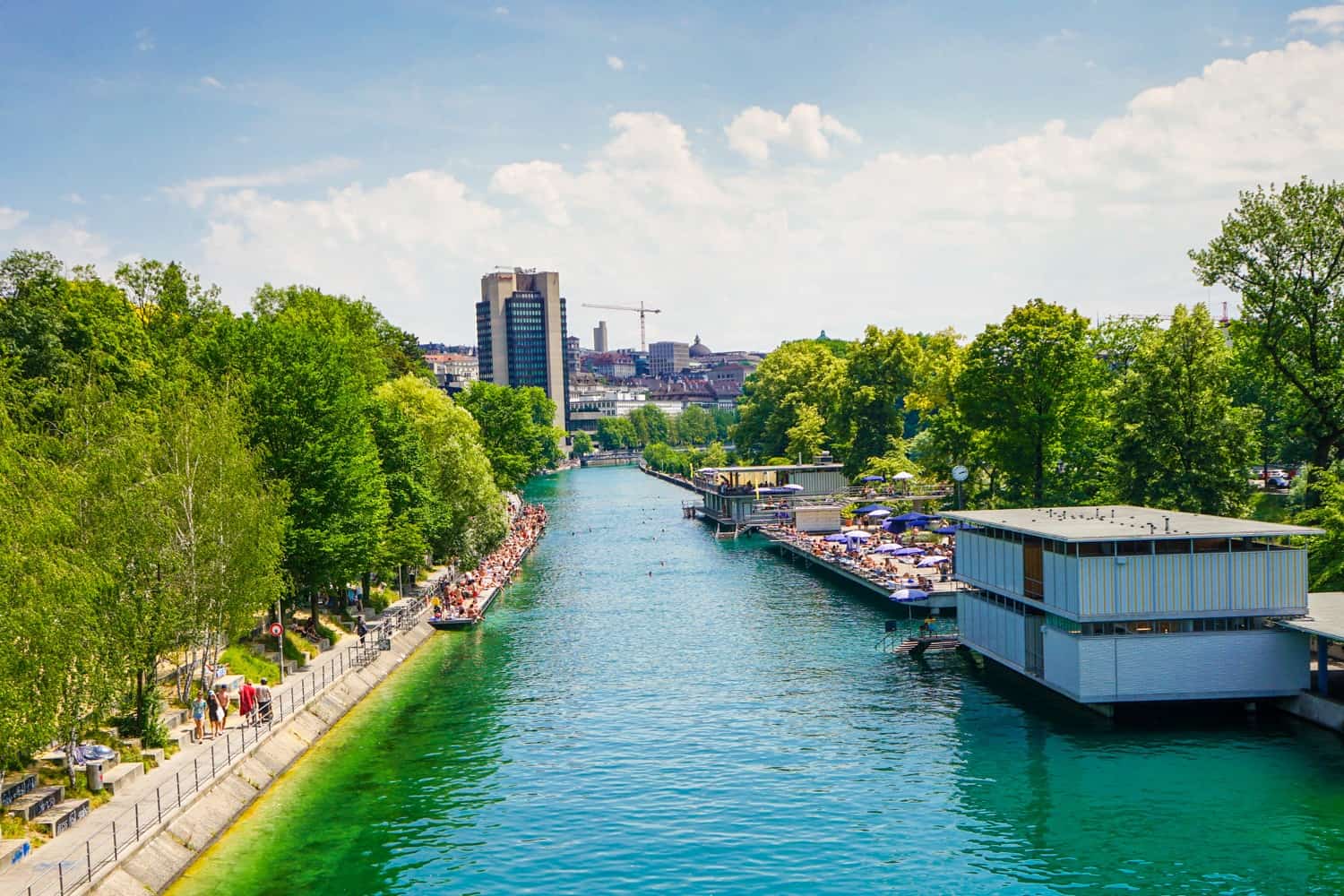
The Cost of Activities and Entrance Fees in Switzerland
Next up: activities! Activities and entrance fees can often make up a large proportion of your travel expenses. Fortunately, in Switzerland, those costs can be relatively low, as there’s so much available to do for free.
Switzerland is a nature enthusiast’s playground, blanketed in mountains and lakes, which are easily to climb and explore. One of my favourite Swiss activities involve simply choosing a hiking trail, packing a picnic, and preparing myself for views that are straight out of a postcard.
An easy way to save money on your vacation is by utilising the country’s city cards to gain discounts and entrance to all of the most popular attractions. The Zurich Card , for example, is priced at CHF 29 (€31) for 24 hours of use, or CHF 56 (€59) for 72 hours. This offers up phenomenal value, because the card gives you access to unlimited use of public transportation in the city, a free boat trip on Lake Zurich, entrance to 40 museums, a 50% discount on the Zurich old town walking tour, and a 20% discount in several stores in the city. The Zurich card is also valid on transport between the airport and the city centre.
There’s also a Geneva City Pass , which is priced at CHF 30 (€32) for 24 hours, CHF 40 (€42) for 48 hours, and CHF 50 (€53) for 72 hours. As with the Zurich Card, you’ll receive free access to all public transport, entrance to tons of museums and attractions, free skiing, free cable car rides, free boat hire on the lake — you get so much with this pass that you’ll be saving money within a couple of hours of arriving.
Aside from the city passes, there are plenty of tours, excursions, day trips, and activities to sample. One museum that is worth the entrance fee is Zurich’s Lindt Home of Chocolate Museum — tickets are priced at CHF 15 (€16) per person and can be bought in advance here . If you love your chocolate, you’re going to adore this museum. Not only does your ticket grant you unlimited tastings of Lindt chocolate, but there’s also a nine-metre-high chocolate fountain to take photos with!
If you’re not planning on spending much time outside of Zurich, make sure to squeeze in a day trip or two, to ensure you see more of this beautiful country. This day trip to Grindelwald and Interlaken costs CHF 97 (€102) for 12 hours of exploring. You’ll see all the prettiest parts of Switzerland, as you gaze up at the triple peaks Eiger, Mönch, and Jungfrau, take the cable car up to Mount First, jump aboard the scenic train between Grindelwald and Interlaken, and funicular up to Interlaken’s Harder Kulm mountain.
Speaking of mountains, there are so many to see! From Lucerne, CHF 145 (€153) gets you up to the incredible Mount Titlis on this day trip experience . Mount Titlis is the only accessible glacier in Central Switzerland, and you’ll spend your day riding the world’s first revolving cable car up the mountain, dancing across Europe’s highest spectacular suspension bridge, and wandering through a real-life glacier cave.
From Geneva, I have to recommend taking a day trip out to Chamonix and famous Mont Blanc . How could I not? For CHF 105 (€111) per person , you’ll get to spend 10 hours exploring two of Europe’s most well-known destinations. After crossing the French border, you’ll hit up Chamonix — yes, the exclusive ski resort and the site of the first ever Winter Olympics. You’ll take the cable car to Aiguille du Midi, and take in Mont Blanc from so many different viewpoints. You can even opt to jump on the Montenvers rack railway to the Mer de Glace glacier.
If you know anything about Interlaken, it’s probably that it’s one of Europe’s top adventure travel destination. And the number one activity in town? Paragliding ! For CHF 180 (€190) per person , you’ll be able to jump on a tandem paragliding experience that’ll give you access to some of the best views in the country, if not the entire world. Seriously — check out the photos from the tour company!
And finally, I’ve saved the best activity for last, because if there’s one thing you simply have to experience while you’re in Switzerland, it’s Jungfraujoch! Simply buy your ticket online ( CHF 233.80/€247 for a return), exchange it for a pass at Interlaken Ost, Jungfraujoch, or Lauterbrunnen train station, then experience the journey to the highest train station in Europe. The views are phenomenal.
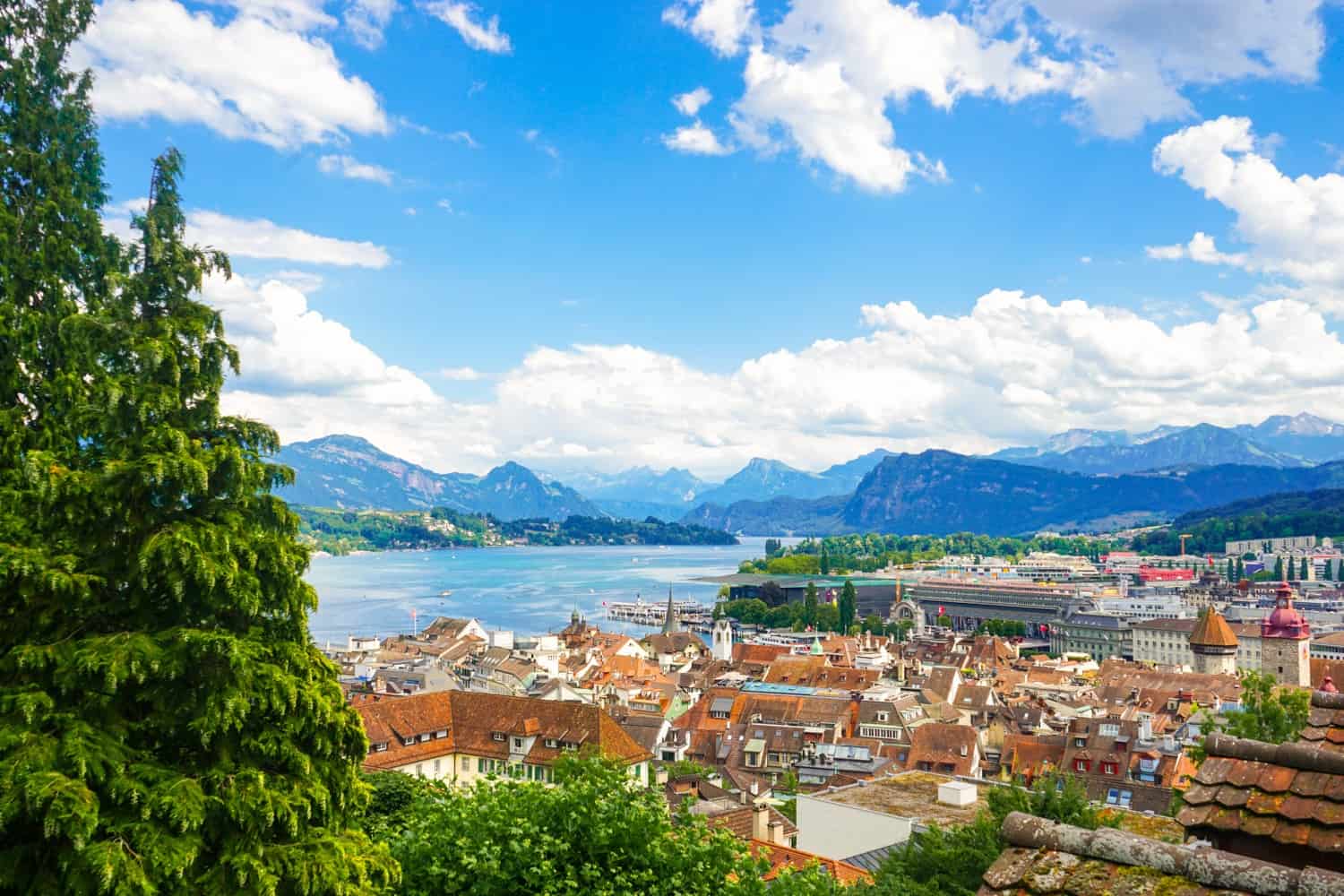
The Cost of Travel Insurance in Switzerland
If you’ve read any other posts on Never Ending Footsteps, you’ll know that I’m a great believer in travelling with travel insurance. I’ve seen far too many Go Fund Me campaigns from destitute backpackers that are unexpectedly stranded in a foreign country after a scooter accident/being attacked/breaking a leg with no way of getting home or paying for their healthcare. These costs can quickly land you with a six-figure bill to pay at the end of it.
In short, if you can’t afford travel insurance, you can’t afford to travel.
Travel insurance will cover you if your flight is cancelled and you need to book a new one, if your luggage gets lost and you need to replace your belongings, if you suddenly get struck down by appendicitis and have to be hospitalised, or discover a family member has died and you need to get home immediately. If you fall seriously ill, your insurance will cover the costs to fly you home to receive medical treatment.
I use SafetyWing as my travel insurance provider, and recommend them for trips to Europe. Firstly, they’re one of the few companies out there who will actually cover you if you contract COVID-19. On top of that, they provide worldwide coverage, don’t require you to have a return ticket, and even allow you to buy coverage after you’ve left home. If you’re on a long-term trip, you can pay monthly instead of up-front, and can cancel at any time. Finally, they’re more affordable than the competition, and have a clear, easy-to-understand pricing structure, which is always appreciated.
With SafetyWing, you’ll pay $1.50 a day for travel insurance.
How Much Does it Cost to Travel in Switzerland?
With all of that being said, it’s time to tally up all of my travel expenses in Switzerland, in order to give you an idea of how much you can expect to spend while travelling in this wonderful country:
Accommodation: CHF 192 per day for two people (CHF 96 each ) Transportation: CHF 19 per day Food: CHF 31 per day Activities: CHF 37 per day Total amount spent per day per person: CHF 183 (€193)
Are you planning a trip to Switzerland? Have any questions? Let me know in the comments below!
Further Reading on Switzerland 🇨🇭 15 Best Things to Do in Geneva, Switzerland 🏔 Top Things to do in Zurich, Switzerland ⚛️ A Private Tour of CERN’s Large Hadron Collider
Lauren Juliff
Lauren Juliff is a published author and travel expert who founded Never Ending Footsteps in 2011. She has spent over 12 years travelling the world, sharing in-depth advice from more than 100 countries across six continents. Lauren's travel advice has been featured in publications like the BBC, Wall Street Journal, USA Today, and Cosmopolitan, and her work is read by 200,000 readers each month. Her travel memoir can be found in bookstores across the planet.
Related Posts
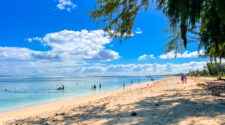
The Cost of Travel in Mauritius: My Detailed Budget Breakdown

The Cost of Travel in Thailand: My Detailed Budget Breakdown

2023: My Travels in Review
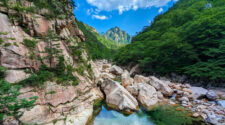
The Cost of Travel in South Korea: My 2024 Budget Breakdown
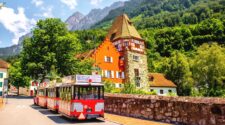
What’s it Like to Travel in Liechtenstein?
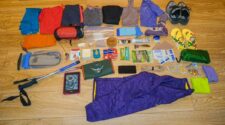
What to Take On the Camino Primitivo: My Detailed Packing List
How would you recommend one – 1 1/2 week budget travel experience in Switzerland? After Switzerland, I plan to go to South of France. Any suggestions there?
Leave a reply Cancel reply
Your email address will not be published. Required fields are marked *
Meet Lauren Juliff
Cookie policy

Switzerland on a Budget: 10 Essential Tips
By: Author Alpaca The Bag
Posted on Last updated: April 17, 2023
Switzerland is notorious for being at the top of every “Most Expensive Country in the World” list, making it exceedingly difficult to travel Switzerland on a budget. But that doesn't have to be the case.
Even the most budget-conscious traveler should have Switzerland on their bucket list. Switzerland is full of dramatic landscapes that can take your breath away.
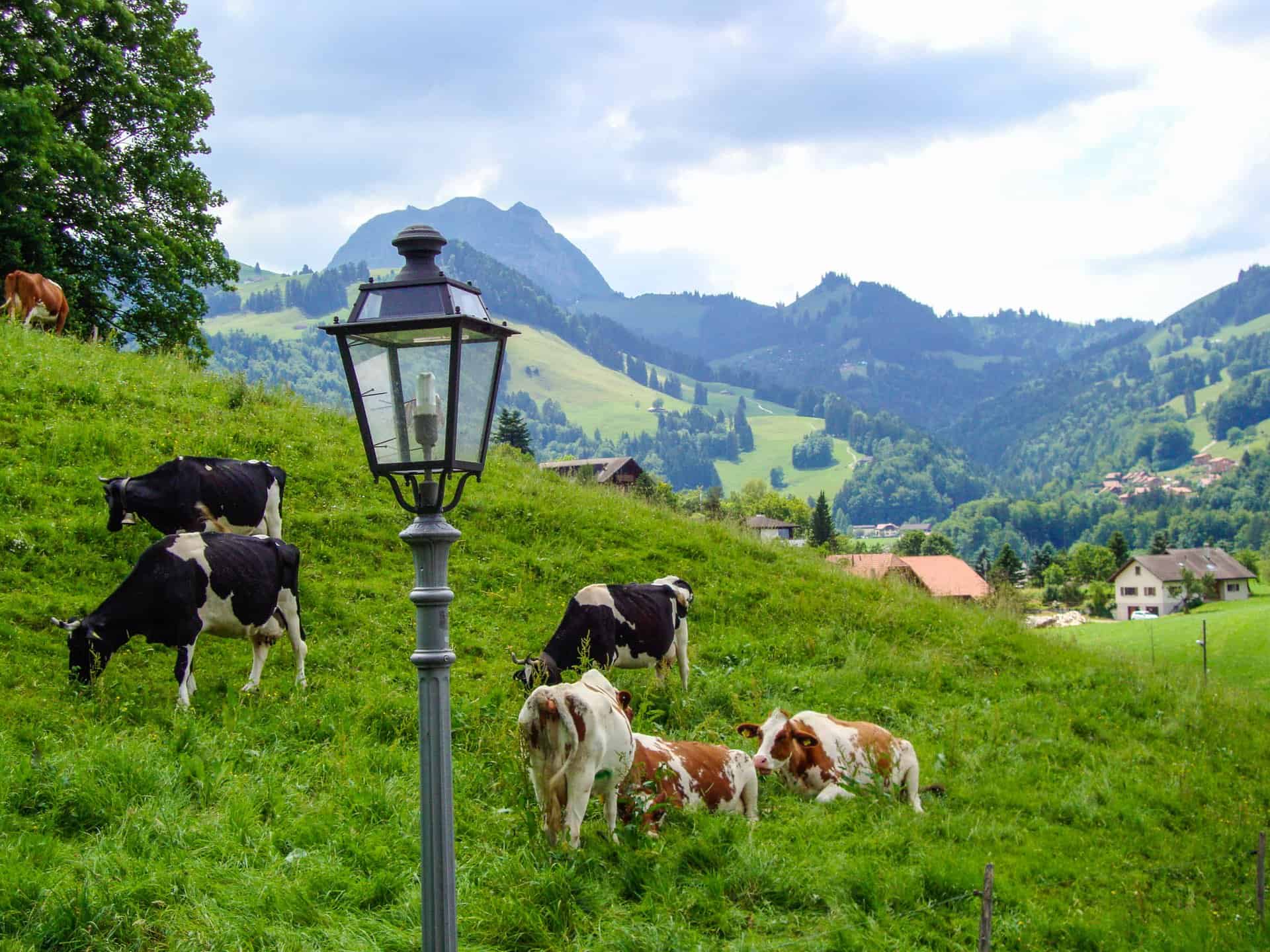
It's where you find lush green rolling hills that have quaint little chalets with cows roaming freely around them. It's where mountains meet lakes, and you can eat endless amounts of delicious chocolate and cheese.
It almost seems too beautiful to be a real place. If these aren't reasons enough to want to pack your bags right now, we don't know what are!
Need airfare? Find cheap flights and more at Travelocity.com .
Want to travel around Switzerland by car? Find the best car rental service at Traserbas.com .
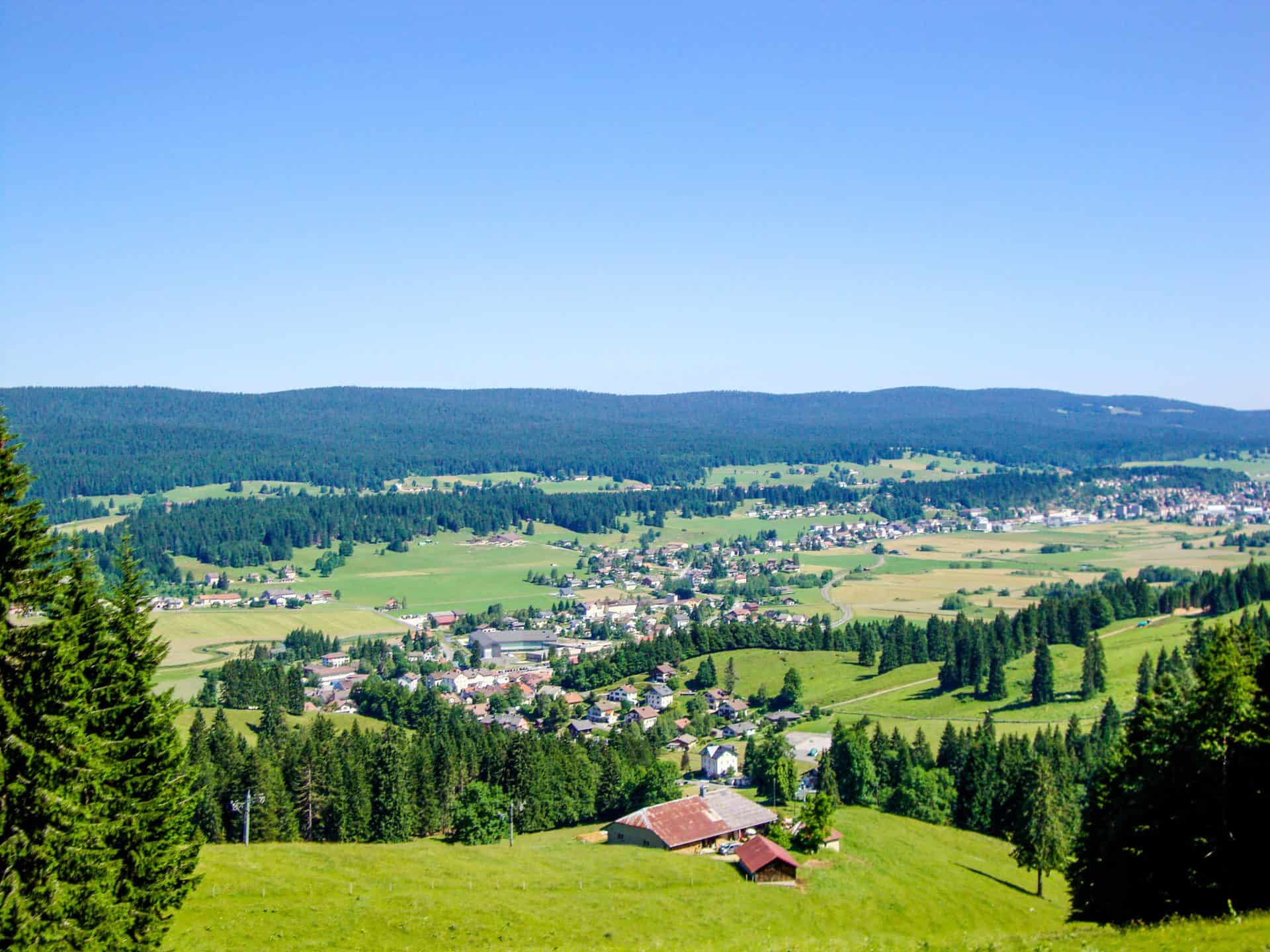
So how do you visit one of the most expensive countries in the world without breaking the bank?
It's easier than you might think. Here are ten helpful tips to keep more money in your pocket while still traveling to the beautiful country of Switzerland.
Table of Contents
1. Spend More Time in One Place
2. skip staying in the major cities, 3. cheap or free accommodations, 4. buy food at a grocery store, 5. buy souvenirs at grocery stores, 6. drink tap water, 7. visit free museums, 8. free outdoor activities, 9. avoid high seasons, 10. invest in a travel pass, how to travel switzerland.
Switzerland is a tiny country. Consider setting up a home base for yourself so you can explore the best places in the rest of the country from there.
Usually, the longer you spend in one place, the better the nightly rates for accommodations. This typically holds true whether you're staying at a hotel, youth hostel, Airbnb , etc.
Some hotels or hostels will even give you a free local transit pass, so check when booking.
Switzerland is a small, steep country, much more up and down than sideways, and is all stuck over with large brown hotels built on the cuckoo style of architecture. Ernest Hemingway
See also: Travel Credit Cards for Beginners
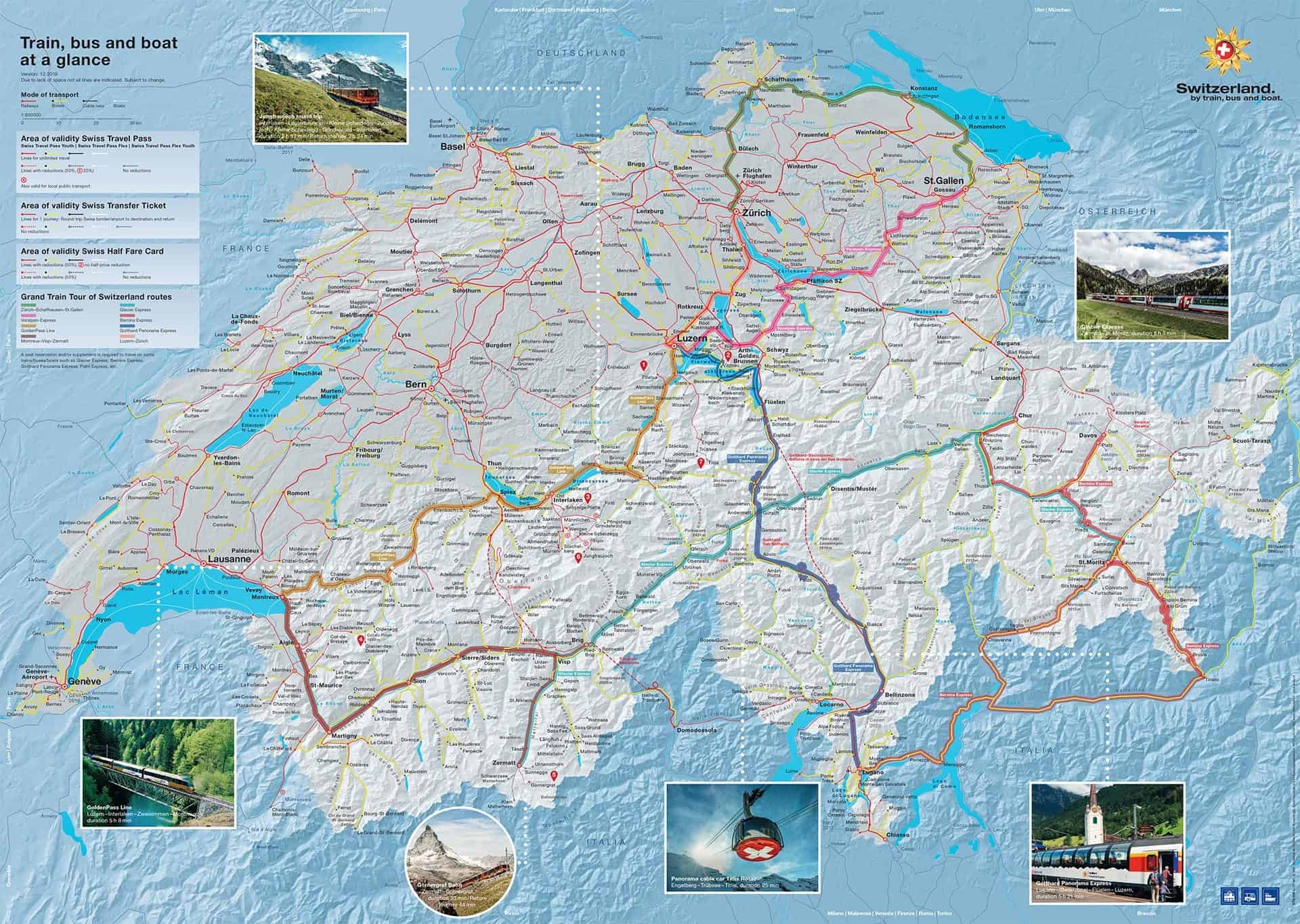
There are benefits to staying in major Swiss cities. Proximity to everything allows easy access to museums, shopping, and nice restaurants, but people come to Switzerland for the views.
Switzerland has some of the most beautiful landscapes in the world, so visit and stay in a town with views.
It will be less expensive, and you're more likely to get the picture-perfect postcard version of Switzerland that you're seeking.
You also don't need to go very far outside the cities to get spectacular views. Train travel is a popular way to get around in Switzerland, so it's easy to get places even when staying outside the main cities.
Check out the Swiss Railways website to get an idea of what small towns fall on the major train lines, prices for train tickets, train stations, etc.

Nowadays, budget travelers have so many options in finding a place to stay.
You're no longer limited to choosing between a hotel and a hostel. You can now rent peoples' apartments or private rooms or even stay on someone's couch.
However, our two recommendations to experience Switzerland on a budget are Workaway and Sleep on Straw.
Workaway is an exchange program that, in return for a few hours of work a day, you have your housing covered (and, in some cases, a few meals).
You can do various tasks, from working with schools, animals, or even farming.
This is an excellent program because it gives you a real, local experience, and you are giving back to the community you are visiting! Plus your accommodation is free.
There are also several other options when it comes to work, with Switzerland being one of the best countries to teach English to keep the funds topped up.
Sleep on Straw
Farms in Switzerland started opening up their doors and letting travelers experience a night sleeping on fresh straw.
It has become trendy over the summer months and can start at 6 Swiss Francs ($6) a night.
What better way to experience Switzerland than waking up on a farm and walking outside to enjoy the mountains.
As with anywhere you stay, do your research. It doesn't matter if it's a hotel, Airbnb, Workaway, or Sleeping on Straw — read traveler reviews.
You might save a buck in the end, but if you end up being miserable because you didn't read reviews, it won't be worth it.
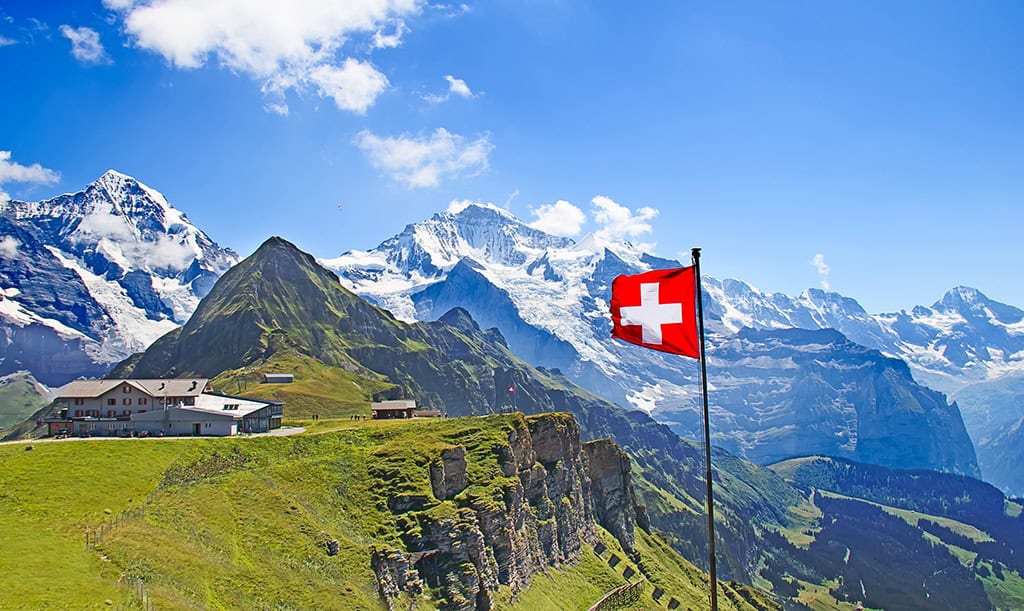
Switzerland is one of the most expensive destinations for dining out; it's cheaper to buy your meals at grocery stores.
This is not news to budget travelers. However, there are cheaper grocery stores where you get more for your money.
The two major grocery stores in Switzerland are Migros and Coop. The cheaper budget grocery stores are Aldi, Denner, and Lidl.
Stock up on white wine, cheese, and bread, and use it as an opportunity to make fondue !
Another option is to buy “ugly fruits and vegetables” from Coop.
Coop began selling “wonky” produce at reduced prices to reduce food waste. The produce is naturally deformed but does not have any defects in taste.
Just because they aren't pretty doesn't mean they don't taste good.
While you're buying your lunch at a grocery store, why not buy your souvenirs too? That Swiss chocolate may be half the price in a grocery store versus a tourist spot.
Many grocery stores in the larger towns often have a Switzerland souvenir section where you can buy chocolate, cheese, cowbells, ornaments, magnets, etc.

Not only is food expensive in Switzerland, but drinks are too (including bottled water).
Luckily, Switzerland has some of the cleanest water available. There are fountains everywhere that you can use to fill up your water bottles.
Whatever city you end up visiting, check what local museums they have, and if they're free, have days with free entry to visit or offer other discounts.
There are so many free museums in Switzerland. Below is a list of some of the more popular ones in Geneva and Zurich.
Free Geneva Museums and Sites
- Natural History Museum
- Art and History Museum
- ICT Discovery
- Tavel House
- Botanical Gardens and Conservatory
- Ariana Museum
- Museum of the History of Science
- Carouge Museum
- The Museum of Ethnography
Free Zurich Museums and Sites
- Zoological Museum
- Augusto Giacometti Entrance Hall
- Museum of Modern Art (Free on Wednesdays)
- Museum of Anthropology
- Botanical Gardens
- Fluntern Cemetery (Visit James Joyce's grave)
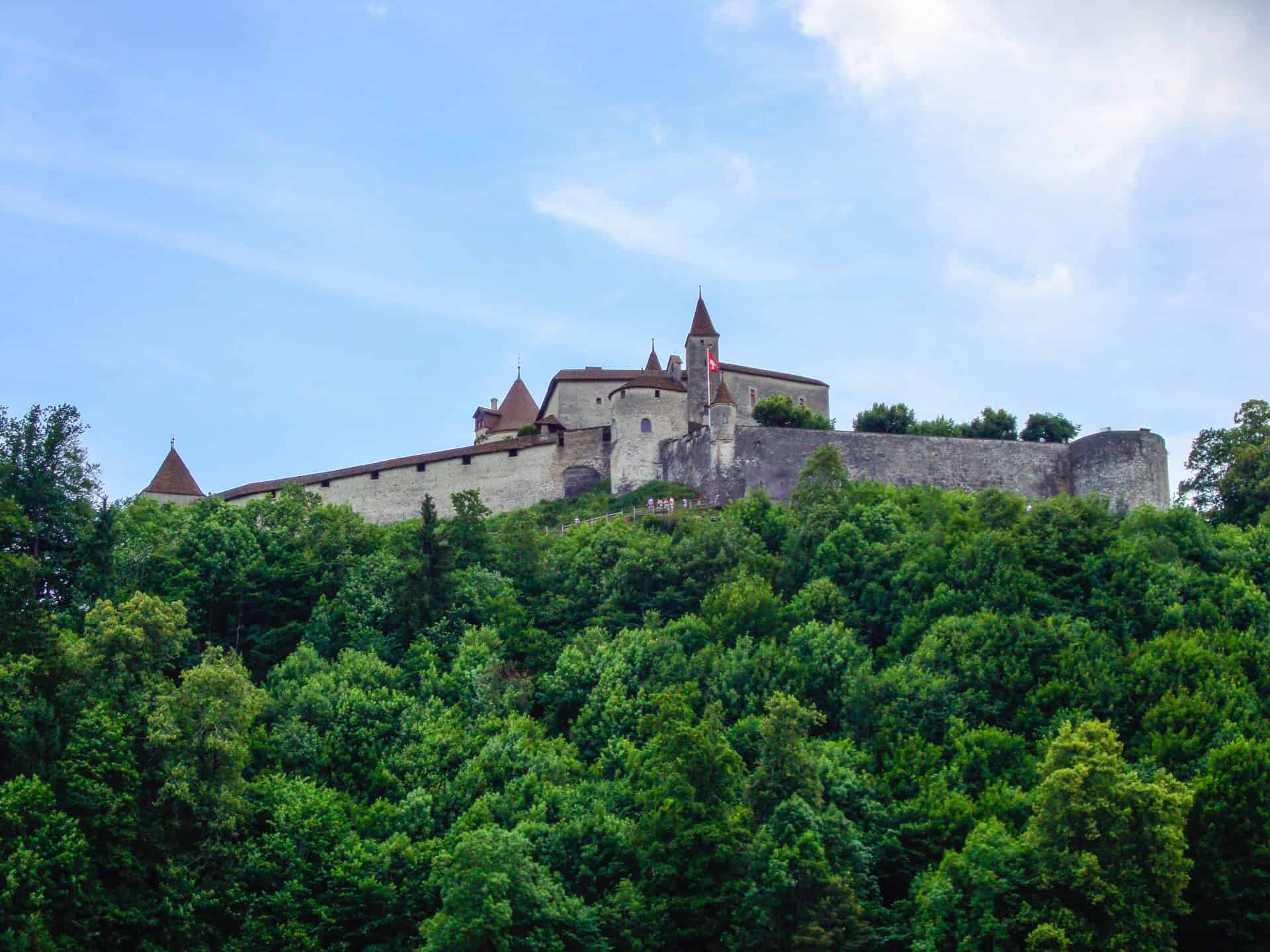
There are so many enjoyable outdoor activities in Switzerland that don't cost a dime.
Hiking is one of the major activities (the other being skiing) that Switzerland is known for. You could easily spend your whole visit hiking and be perfectly happy.
There are quite a few lakes in Switzerland and plenty of places where you can enjoy a swim in them too. They can be a little chilly sometimes!
Explore Historic Towns
Like many European countries, Switzerland is full of ancient and historic towns that you can explore.
Pop into the town's cathedral for a chance to see some beautiful art. A couple of must-visit towns are Gruyères and Altstadt.
One of the best things to do in any country is to participate in a festival. You can see the local culture at its best and usually get fireworks, music, etc.
Free Walking Tours
There are quite a few cities that offer free walking tours . They are run by volunteers and usually provide a couple of tours every day in several languages.
Cheese Making Tours
Depending on the area you choose to visit, small-town cheesemaking farms often will happily show you around and let you see how they make their cheese.
There are also larger factories that give public tours for usually a small price (around 5 Swiss Francs, or $5).
Related: Food Experiences in Emilia-Romagna
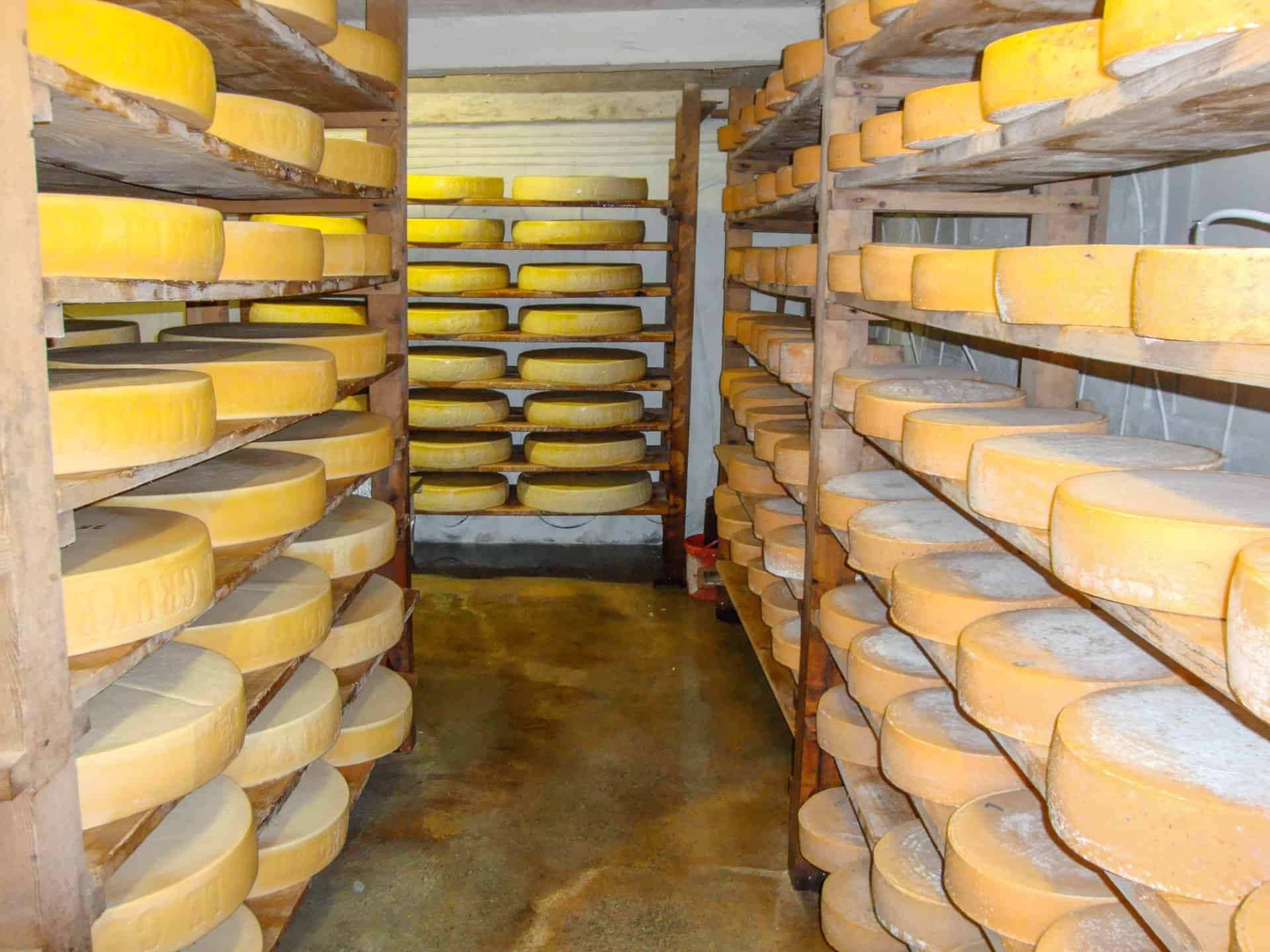
There is no wrong time to visit Switzerland, but the high seasons for visitors are summer and winter .
The best time to visit, and get the most for your money, is during the shoulder months of spring and fall.
Accommodations will be cheaper, and there will be fewer travelers visiting.
If you choose to travel during spring or fall, and hiking is on your list of activities, check and see if trails are open while you are there.
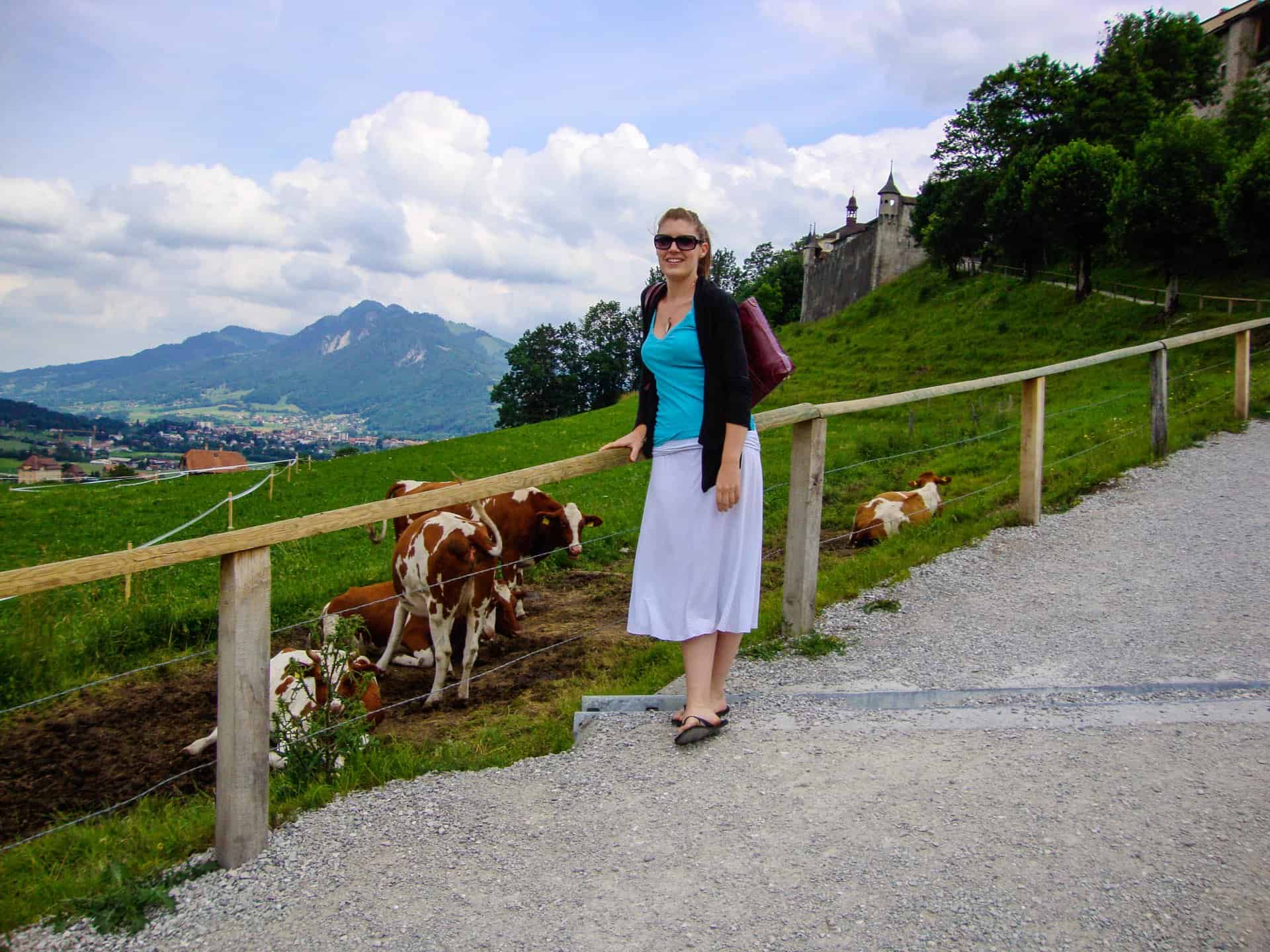
Travel passes can save you a lot of money, but you must first determine if it's the right pass for you.
If you don't use passes to their full potential, they can be more expensive for you in the long run.
Swiss Travel Pass
The Swiss Travel Pass gives you almost complete access to the country, entry to about 500 museums, train, bus, and boat tickets, etc. Again, this can save you money, but it can cost you too.
If you don't have a plan or itinerary for what you want to see, it may end up being more expensive for you.
Swiss Half Fare Card
The Swiss Half Fare Card allows visitors to buy train, bus, or boat tickets for half price for up to a month.
If you choose this option, there is very little difference between 1st and 2nd classes, and it's recommended to buy the 2nd class ticket.
Supersaver Tickets
Supersaver tickets are not a pass per se, but when you buy a train ticket online, you can sometimes buy a supersaver ticket instead.
These tickets are the cheapest available because they are offered at times when fewer people travel.
Swiss Coupon Book
The Swiss Coupon Book offers discounts and a lot of 2-for-1 deals. You can view the deals before purchasing the book.
This is not as popular as the other passes since you probably won't be able to use all the coupons to make it worthwhile. However, if you are in the country for a more extended period, it may make sense to buy the coupon book.
Student Passes
If you're a student or are under the age of 18 (and sometimes under 26), you may be able to get student discounts while traveling.
There are many ways to make a trip to Switzerland come to life without going broke.
Whether you're an outdoor adventurer or a history buff, there is plenty in Switzerland that you can do and still have extra money in your pocket after your trip.
Now all you need to do is grab your passport and travel!
We hope this guide to traveling to Switzerland on a budget has helped inspire you to plan a trip.
If you'd like to go but not alone, consider a small-group tour with G Adventures :
Trekking Mont Blanc is a challenging 10-day high-altitude adventure in the Alps. You'll start trekking in Chamonix, France, and pass through Italy and Switzerland as you make your way around Mont Blanc. The trip ends in Chamonix.
London to Rome: Picnics & Pizza is a quick 7-day rail journey from London to Rome, including a stop in Interlaken, Switzerland.
We are pun-loving, enthusiastic travelers combining our passion for travel with the idea of helping others realize their own travel plans! Check us out at alpacathebag.com.
Planning a trip? Go Backpacking recommends:
- G Adventures for small group tours.
- Hostelworld for booking hostels.
Sadye Reish
Sunday 3rd of September 2017
Nice work you guys!!!
Wednesday 30th of August 2017
Switzerland is an amazing place.We can enjoy the nature.Thanks for sharing this post.

30+ Switzerland Travel Tips for First Timers & Must Knows Before You Go
Last Updated: July 6, 2023
*FYI - this post may contain affiliate links, which means we earn a commission at no extra cost to you if you purchase from them. Also, as an Amazon Associate I earn from qualifying purchases. Check out our Privacy Policy and Disclosure. for more info.
There are many countries I love in Europe, but if I were to pick one that has me (and my bucket list) in an absolute chokehold, it’d be Switzerland.
I mean… There’s glossy lakes in every shade, epic mountains caked with snow, and town after town with views so perfect, they’ll actually make you mad.
… which explains why I keep crawling back, like a sad obsessive ex.
Over the years, I’ve been lucky enough to visit Switzerland in all seasons and for all reasons – whether solo, with friends, with family, or as a romantic getaway. In that time, I’ve not only been able to amass a restraining order-level of enthusiasm, but I’ve also collected quite the list of random Switzerland travel tips learned through trial and error.
… so allow me to share those with you today!
Read on for a list of must-knows before you visit Switzerland for yourself. With these on your side, you’ll soon see why this is one of my favourite countries in the world.

Save this list of Switzerland Travel Tips for later!
You’ll be very glad you did.
1. Budget plenty of money for your Switzerland trip
As you might expect from a country that seems this perfect, Switzerland has one fatal flaw: and that is its prices.
Indeed – beautiful Switzerland is a country filled with sights that will drop many a jaw, but perhaps none more so than the sight of your first restaurant receipt.
Dining out is expensive in Switzerland, a place known for having the priciest Big Mac in the world . But so is practically everything else – from transport and hotels to groceries. In fact, it’s fairly common for Swiss residents near the border to road trip across to France, Germany or Italy to save a few francs on household goods.
All this to say: make sure you’re ready for Switzerland’s high price points, and plan accordingly.
Of course, there are ways to cut costs and save money while travelling Switzerland, but we’ll cover those more in-depth below.
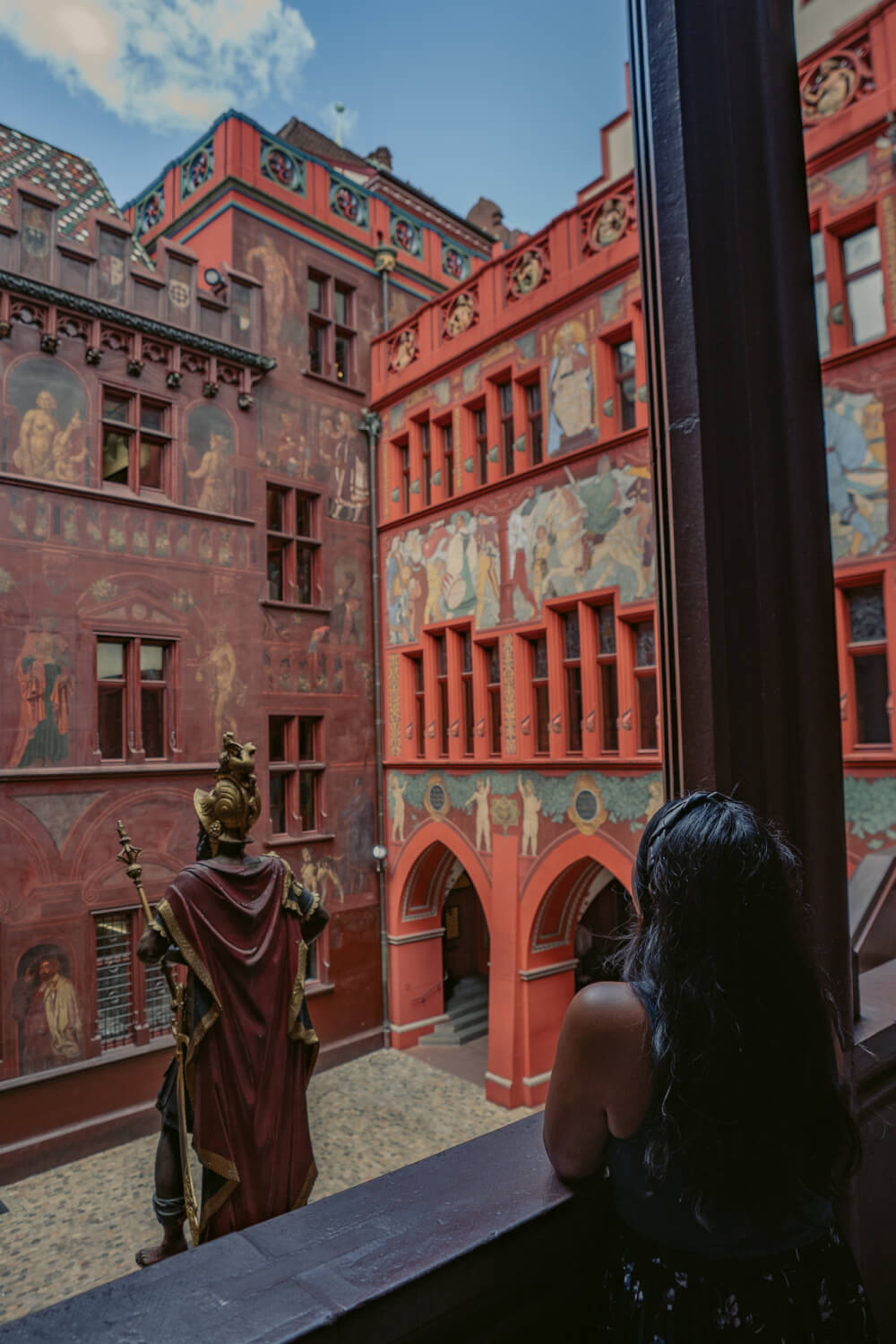
2. Remember Switzerland is NOT in the EU
While Switzerland is part of the Schengen Zone (which means yay, borderless travel!), it is not actually part of the European Union.
Practically speaking, this isn’t a big deal for tourists, BUT I need to mention it in case you’ve purchased some kind of phone plan that is for EU only.
On a trip a few years ago, I was happily using my German SIM card as we crossed the border into Switzerland and within minutes, all 20 euros of my phone credit had been zapped because I forgot my plan didn’t cover countries outside of the EU!
Now, most packages have smartened up these days and offer options for “EU + Switzerland” but be sure to double check just in case, lest you end up in debt from loading a TikTok recipe you’ll never even make.
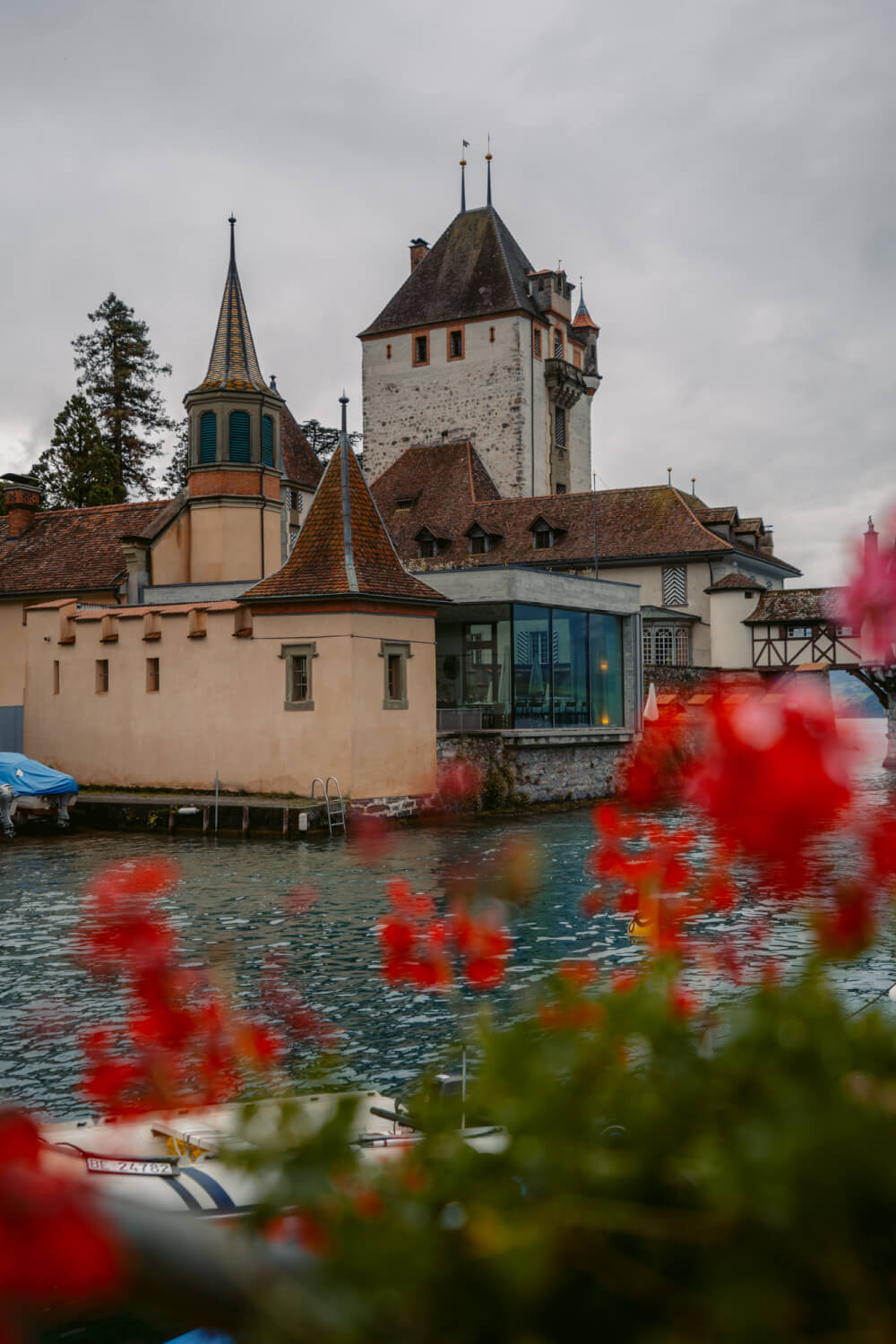
3. Switzerland has its own currency
Another practical Switzerland must-know related to the above point is that Switzerland has its own currency – the almighty Swiss Franc (or CHF).
The bad news is, this means your euros probably won’t get you far. The good news is, their money is vibrant and beautiful, like every other dang thing in the country.
Of course, if you’re wary of withdrawing too much local currency, I’ve found Switzerland to be very card-friendly, so if you have a good credit/debit card with minimal foreign transaction fees, you’ll get by fine with that in most places. I can highly recommend Wise for that purpose.
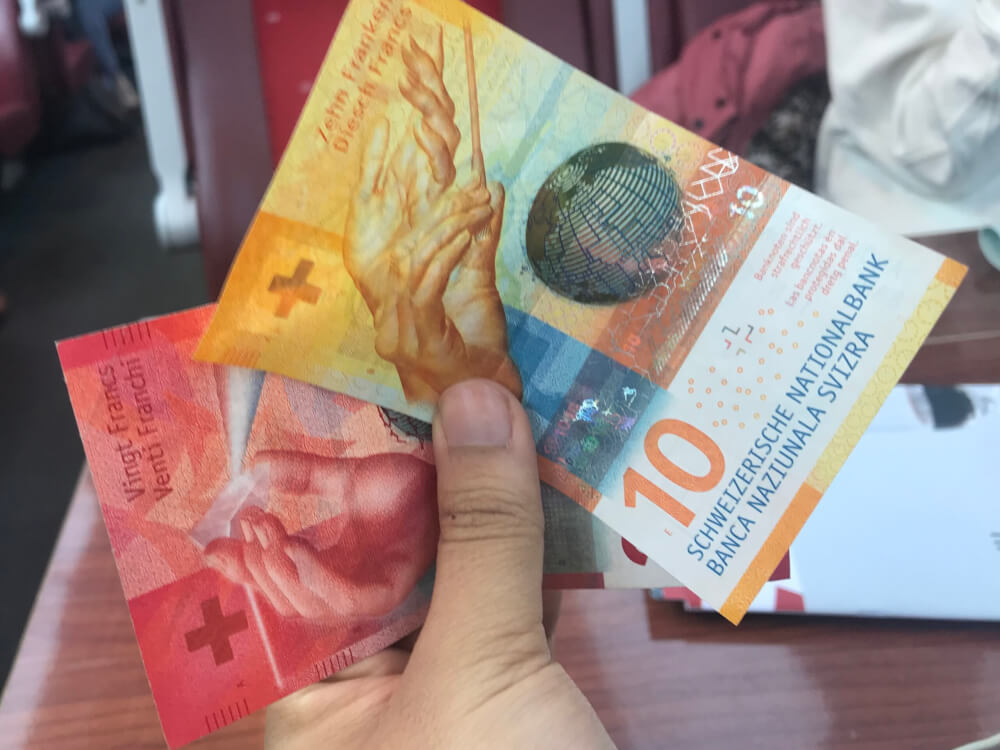
4. Switzerland also has its own unique plugs/outlets
In addition to the currency being different, the outlets are also different.
In Switzerland, they use Type J outlets that typically look like this, with scattered dots akin to a shocked emoji:

Usually Type F Euro plugs can fit these outlets, but it’s very important you make sure your adapter isn’t one of the circular ones because some of the outlets in Switzerland have these flat thin frames and the circular adapters won’t properly fit. Don’t say I didn’t warn you…

5. Know that they speak different languages in different parts of Switzerland
Another important Switzerland must-know is that when it comes to the local language, there’s no such thing as “Swiss”.
People in Switzerland are among the most multilingual you’ll meet (next to Luxembourg, anyway!) so depending on where you are in the country, you’ll hear German, French, Italian or Romansch spoken.
So, come prepared and do your research about which languages are widely spoken where you’re visiting, and try to at least learn hello and thank you in those languages as well.

6. Consider flying into one airport and out another
The major international airports in Switzerland can be found in Zurich, Geneva and Basel (which, fun fact – is one of the few airports jointly operated by two countries, France and Switzerland).
Anyways, if you plan on covering a lot of ground while in Switzerland, I would actually recommend flying into one airport and out of another, if the cost difference isn’t substantial.
The reason I say that is while Switzerland is small, there isn’t really a good way to travel around the country in a loop. So logistically, it kind of makes sense to travel in one direction, so you don’t have to double back.
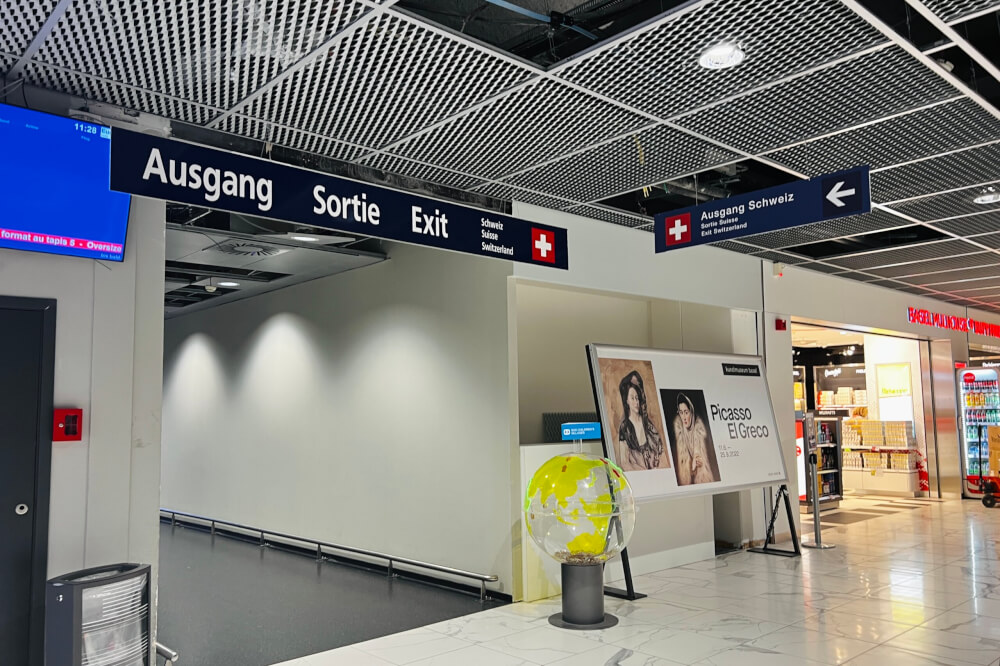
7. Or concentrate your Switzerland trip in a smaller area
Alternatively, I would advise picking a smaller region/area of Switzerland and exploring it thoroughly, rather than try to cover too much ground.
Transportation in Switzerland is expensive, so one of the best ways to cut costs is to simply not move around as much… which is Mission Impossible, I know, because of the many, many iconic spots you’ll no doubt want to see.
The trouble is though, many of these most famous spots aren’t actually that close together.
So, instead, I’d advise committing to one area – by doing that, you also start to discover more hidden gems and unique spots beyond the most famous attractions… which is of course a huge win in my books!
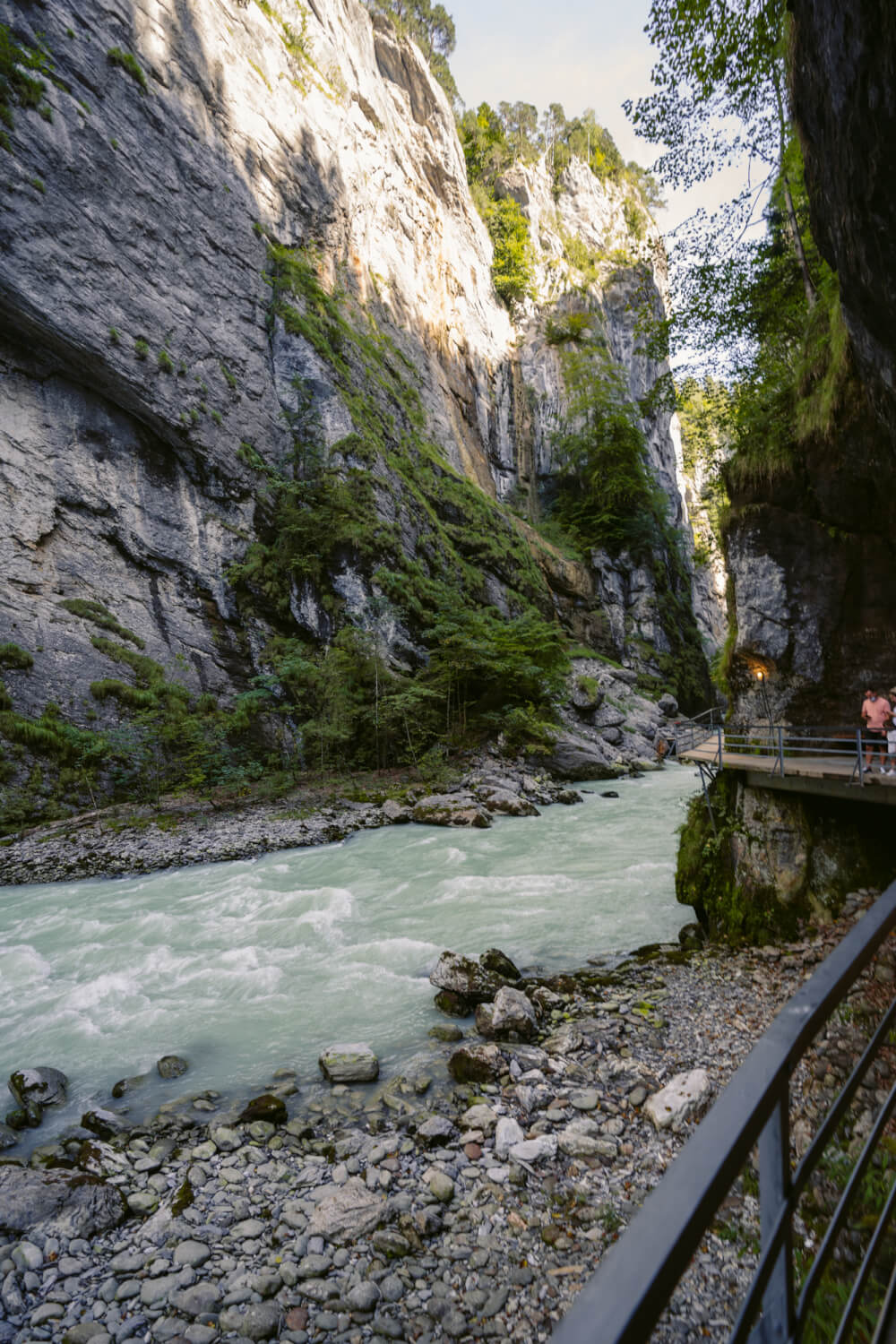
8. Go beyond the big cities in Switzerland
I have loved visiting many of the big cities in Switzerland like Lucerne, Zurich and Basel .
BUT, I would say the real charm of the country lies beyond city life, and if you really want the ultimate Switzerland experience, I highly encourage you venture off to the countryside for at least a day trip – exploring everything from quaint little villages and epic mountains to lakes more vibrant than Gatorade.
That’s where the real magic happens!
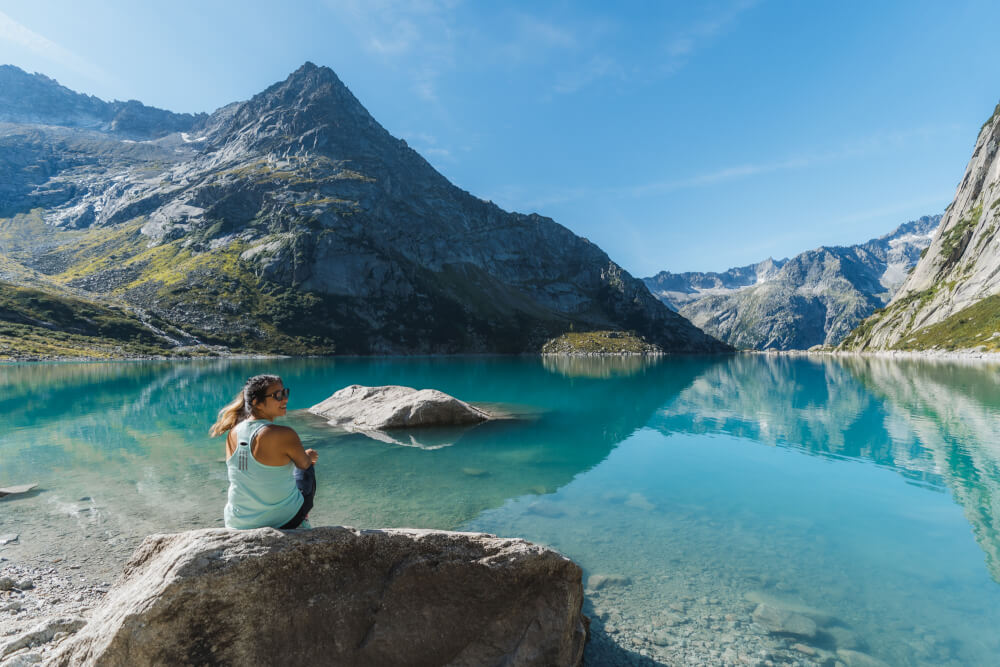
9. Go for Christmas markets!
Once upon a time, I did a whirlwind tour of Switzerland’s best Christmas markets , and it was probably that trip that sealed the country’s fate as one of my favourites.
Twinkly lights and the smell of Glühwein are usually enough (on their own) to make me tear up with joy. Add on the beauty of Swiss landscapes as the backdrop? Oof – I never stood a chance.
So, if you’re looking for one of the the most magical times to visit Switzerland, then I can highly recommend Christmas market season. If you plan your visit for earlier in the season (late November, rather than close to Christmas), you’ll usually be able to avoid the bulk of the crowds.
Here are my top must-knows for visiting Christmas markets in Europe if you want to learn more, and you can check out my Swiss Christmas market guides for more details on those:
- Zurich Christmas Market Guide
- Lausanne Christmas Market Guide
- Basel Christmas Market Guide
- Montreux Christmas Market Guide

10. Use public transport as much as possible
Swiss public transport is an astounding marvel in itself. It’s so clean. So beautiful. So scenic.
(And so expensive… but hey, probably not as expensive as renting a car!)
So, if you are planning mainly city to city travel, I can advise just getting around with the public transport. In fact, most cities will offer a free Guest Card when you stay overnight, which usually gives you unlimited public transport for the duration of your stay. Not too shabby at all!
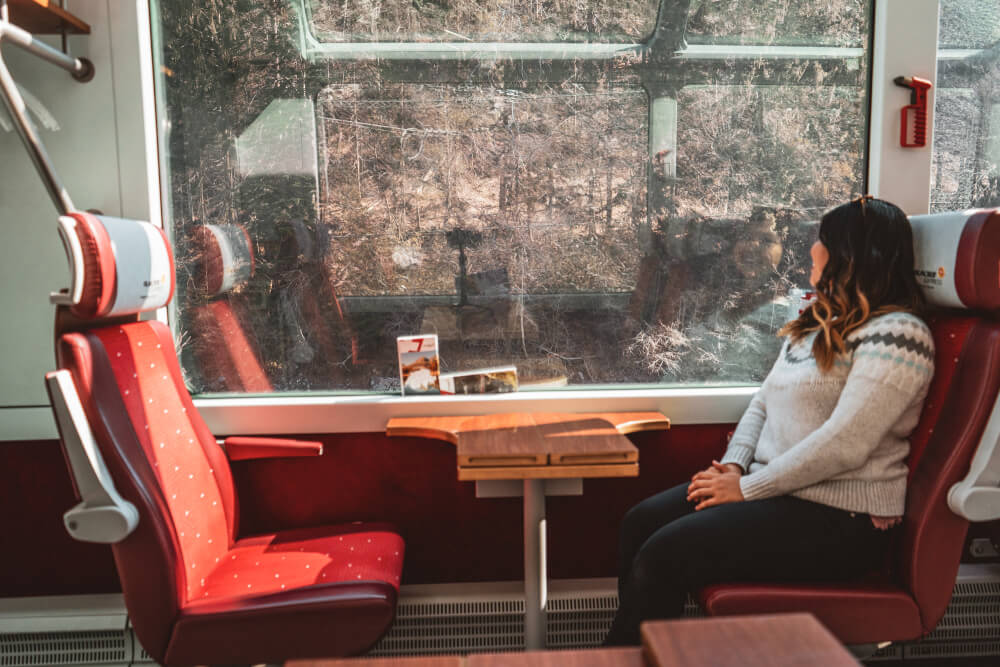
11. Look into scenic Swiss trains
And if you’re someone who likes to gaze out large windows and pretend they’re in a coming-of-age film, boy do I have the Switzerland travel tip for you.
Book yourself on one of Switzerland’s most scenic train rides. .. and thank me later.
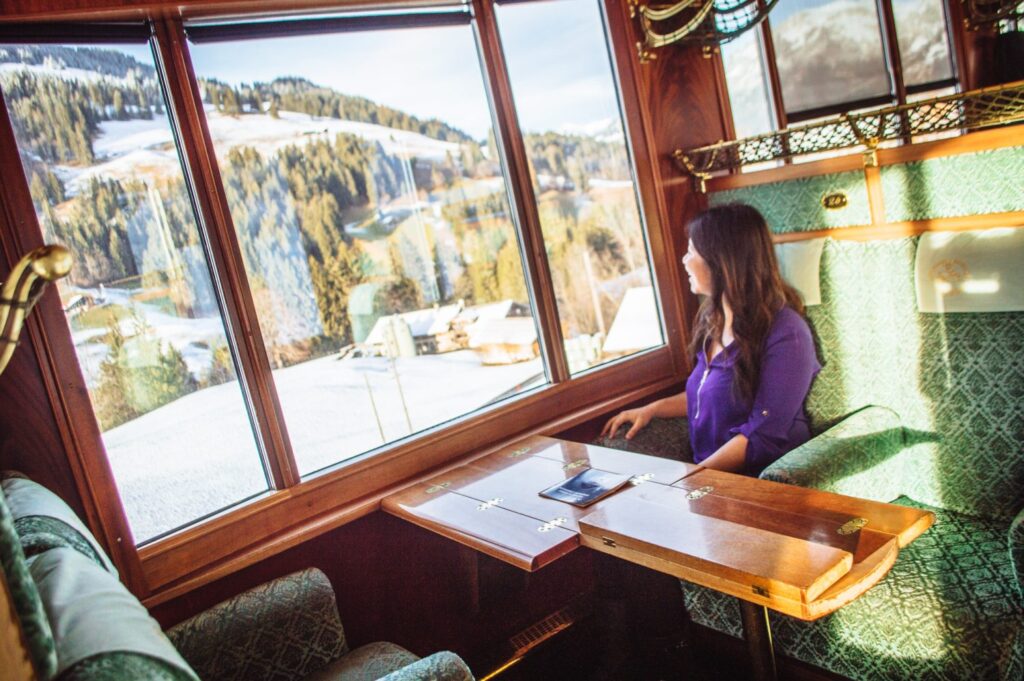
12. Book regional trains on scenic routes to save money
Now, if you do find yourself with a rabid desire to hop on Switzerland’s most scenic train routes (which duh, why wouldn’t you) then I have another secret money-saving tip.
Odds are you’ve heard of the big famous Swiss trains like the Glacier Express or Bernina Express . Both are great, but also pricey and sometimes over-congested with our fellow tourists.
But if the views are more your priority, what you can actually do is hop on a regional train that goes along the same route. This way, you get the same views at a fraction of the cost and even bonus perks like being able to roll down the (admittedly smaller) windows, or even special train cars that have space for photography!
I did this on the Bernina Express route, and actually preferred it to the main tourist/sightseeing train.
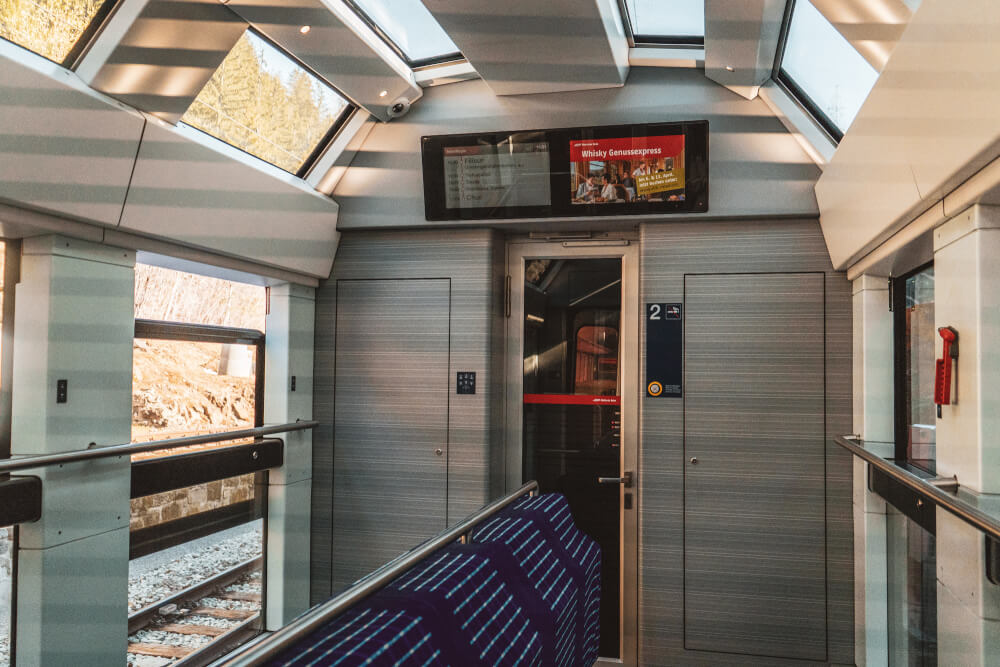
13. Look into Swiss transport passes
Even if you don’t end up using my Swiss train travel hack above, there are still many ways to save money on trains in Switzerland.
Overall, if you plan to take trains very frequently (or plan to be in the country for a while), then you’ll almost certainly save money by purchasing some kind of Swiss transport pass.
There are a few popular ones, and which is best depends on your specific situation, but here are the top options:
- Swiss Travel Pass: Gives you unlimited transport and discounts on attractions across Switzerland – prices vary depending on the time period you buy for.
- Swiss Half Fare Card | 120 CHF for a month: Gives you discounts of up to 50% on all journeys by train, bus, boat and most mountain railways in Switzerland, as well as public transport in over 90 cities.
- Regional Passes: Grants unlimited entry to attractions/public transport in a particular region, usually cheaper than buying the passes above which are nationwide. E.g. Jungfrau Travel Pass or Berner Oberland Pass
And of course, if you’re travelling to multiple countries, it might be more worthwhile to use a Eurail pass instead. This is how I managed to ride the Bernina Express and Glacier Express for a fraction of the full cost.
Read my full Eurail review for more details.
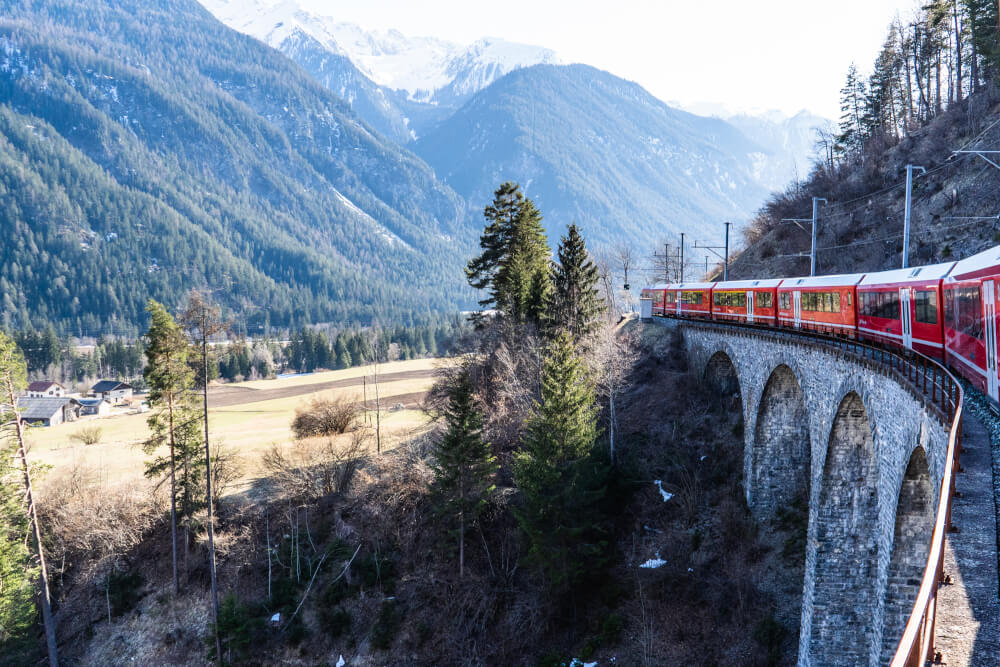
14. Rent a car if you plan to do a lot of natural sights or smaller villages
But while public transport across Switzerland is amazing, it does have its downsides.
The main one for me is that local bus services don’t tend to drop you to more remote hiking destinations or nature spots, so if your goal is go more off the beaten path, definitely rent a car.
IMPORTANT: To use the motorways in Switzerland, you need to purchase something known as a Vignette. This is a sticker you pay for that allows you to use Swiss highways. Unfortunately it’s only available as an annual sticker so it does cost 40 CHF, so that’s another cost to hear in mind.
Interested in renting a car? Here is a post to help you figure out how much renting a car in Europe really costs .
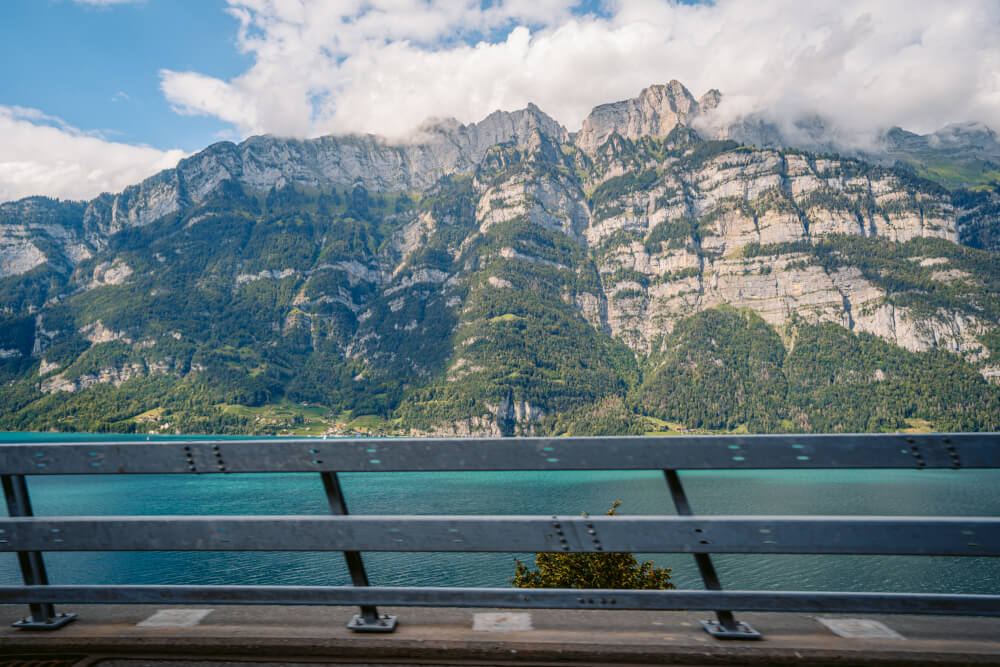
15. Learn all the tricks to saving money with your accommodation
Alright, so we’ve covered Switzerland travel tips for saving money on transport, now here are a few quick tips for saving money via your accommodation:
- Book accommodation with a kitchen to save big on food costs
- Stay in a smaller village outside a big expensive resort/city to save big
- Look for freebies/inclusions when booking accommodation (e.g. a visitor pass, meals included, etc.)

16. Budget for the tourist tax
We’ve already covered the fact that Switzerland is pricey, but an additional cost that surprises many visitors is the Swiss tourist tax.
This is an additional tax that usually has to be paid in person and can range from 2-7 francs per person per night. Yes, more money. Whee!

17. Don’t take Swiss directness personally
One of my most important Swiss travel tips? Don’t take any perceived ‘rudeness’ as a personal attack.
Culturally speaking, Swiss people can be very direct so don’t be surprised if you enter a bakery and they just ask “what do you want?” instead of “hey how are you? How’s your day? How’s your mom??”
They don’t tend to do the whole ‘overly friendly customer service’ thing here, so just accept it as a cultural difference, and know it’s not worth ruining your trip over.
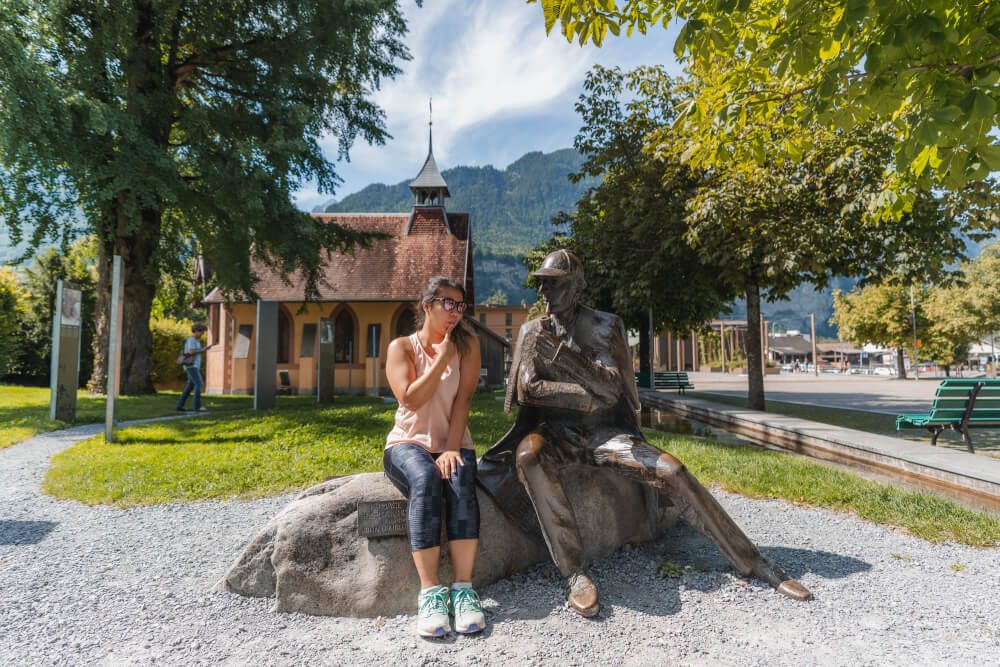
18. Prepare for an earlier start to the day
Another potential Swiss culture shock? Generally speaking, Swiss people get up early.
As a result, shops open earlier, and close earlier too. It’s not uncommon for grocery stores to close at 6:30 or 7pm, so keep that in mind when preparing your day.

19. Learn how to tip in Switzerland
Tipping is definitely not expected in Switzerland to the same extent as in North America. Often rounding up is considered enough (e.g. if your bill is 45 euro, then rounding up to 50), with 10% being a rough benchmark for good service.
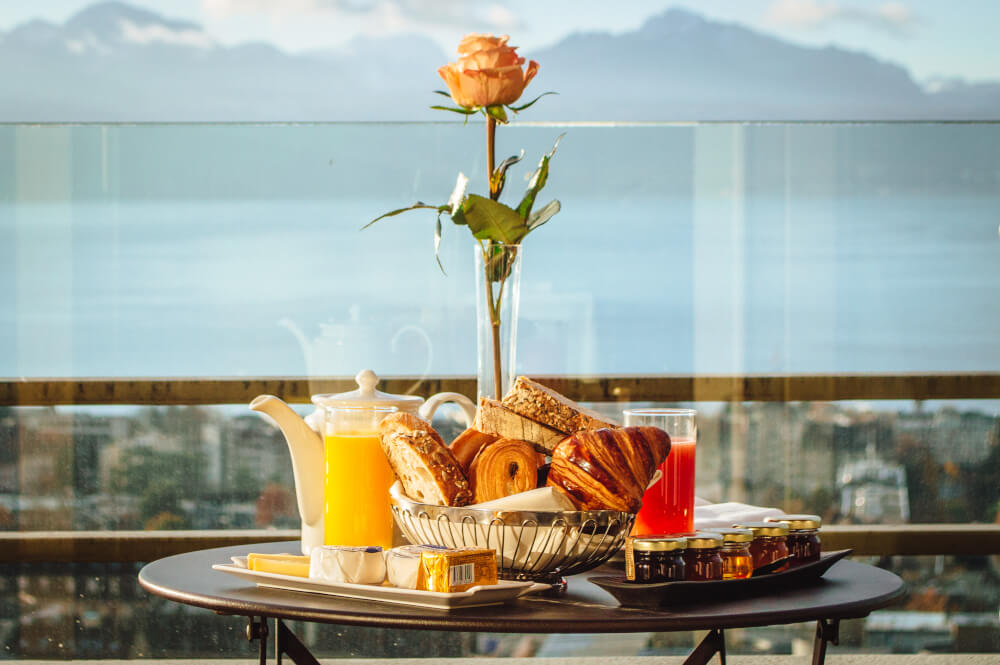
20. Thoroughly research your hiking route beforehand
Alright, now this is a more specific Switzerland travel tip, but if you plan to do any hiking while you’re there, listen up.
Research beforehand is very very important.
Swiss locals tend to be highly athletic and begin hiking from a young age. In fact, I’m convinced most Swiss people exit the womb with hiking boots on.
As such, I’ve noticed hiking resources like signs in Switzerland aren’t super helpful for beginners, so make sure you thoroughly research the trail and make sure you can do it before committing. Swiss mountains are no joke.
One of the most infuriating parts of travelling in Switzerland is the ubiquitous “Wanderweg” (Hiking Path) sign, which often points in two directions and offers little to no help for those new to these trails… so here’s an example of what you might be working with:
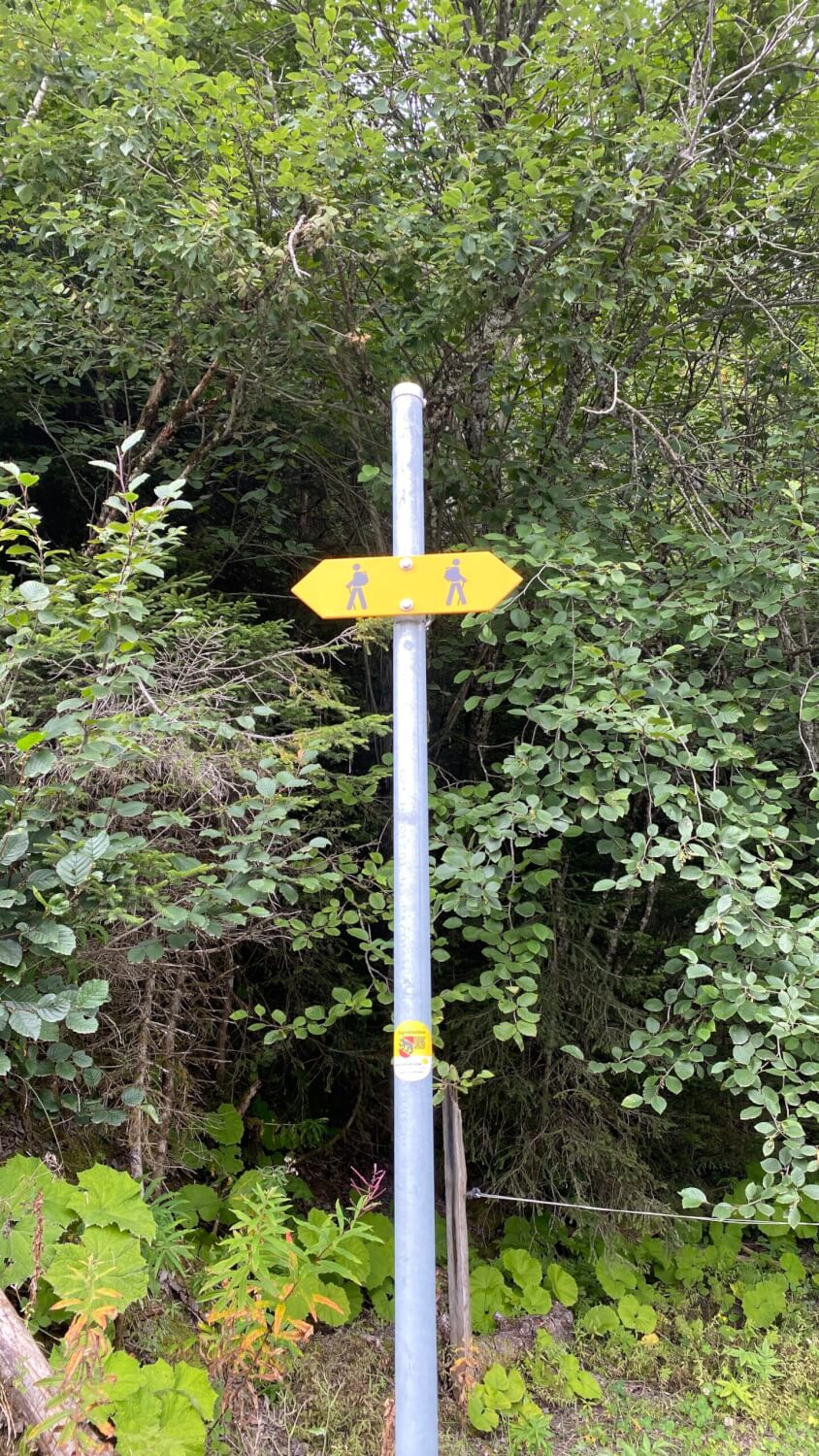
21. Consider an SAC membership
If you plan on doing a lot of hiking and intend to stay at mountain huts, another Swiss money-saving tip is getting a membership for the Swiss Alpine Club (SAC) .
This membership costs between 80 – 110 CHF a year but comes with a ton of perks like 50% off mountain hut stays.
Considering how expensive accommodation is, this can definitely be worth it for a longer hiking heavy trip.
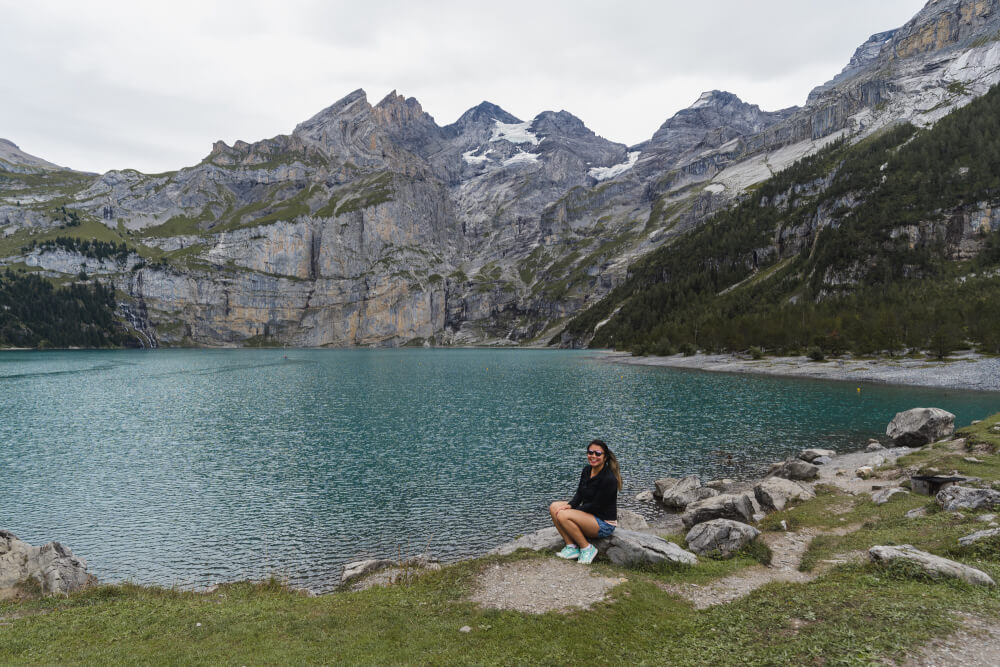
22. Splurge on some Swiss specialties
Alright, now let’s engage in a swift pivot from Swiss hiking to Swiss FOOD.
Yes, welcome to your happy-place.
Food-wise in Switzerland, I’ll be sharing some budget friendly tips below, but I do think it’s important that you don’t miss out on Swiss food while you’re over there. I know it can be pricey, but frankly there are some Swiss specialties that are worth the splurge.
Some Swiss must-tries include:
- Fondue: A delicious pot of melted cheese or chocolate that you dip things in
- Raclette: An amazing cheese that you melt a layer of and scrape over top potatoes and veggies
- Rösti: a crispy potato pancake
- Chocolate: A treat that requires zero introduction
NOTE: Apparently it’s considered sacrilegious to drink a cold beverage other than white wine while eating fondue or raclette. It stems from an old belief that this will lead the cheese to glop up weirdly in your body and kill you, but that has been scientifically dismissed. Instead, you’ll just be getting some weird stares from locals if you do… like we did when this photo was taken:
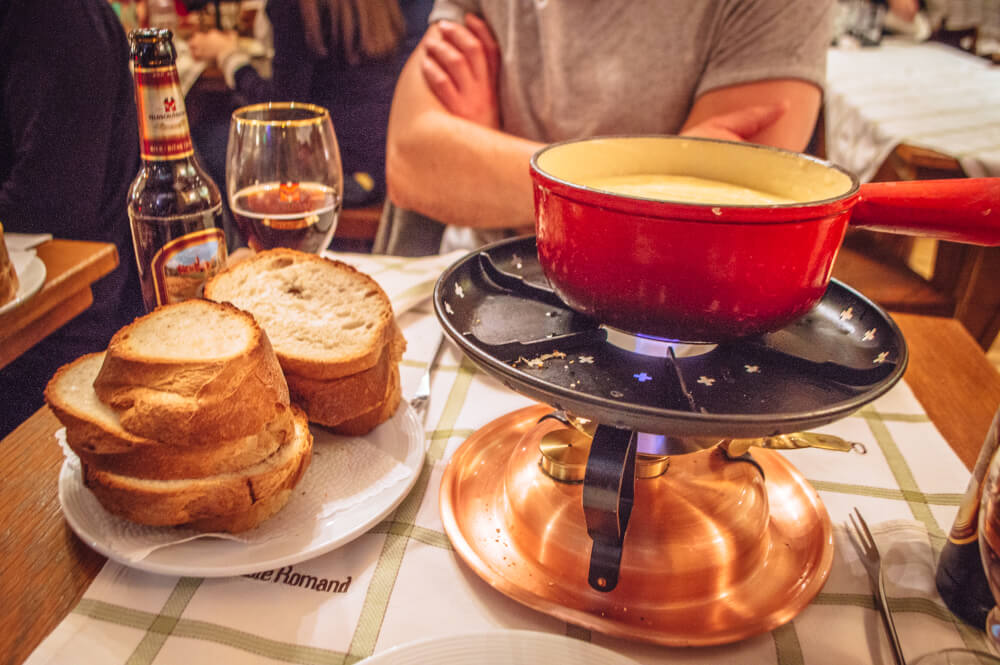
23. Have a quick search of regional specialties before you go
While yes, fondue and raclette are great, you should make sure to try some other lesser known Swiss delicacies too.
The cuisine in Switzerland can vary a lot depending on where you go, so I’d recommend doing some research beforehand about what the best must-tries are, so you can keep an eye out for them.

24. Stock up on supplies before visiting Switzerland
Alright, now for the less fun budget-friendly version of my Switzerland advice.
It’s a lot less exciting, but nonetheless necessary. Unless you want to leave Switzerland bankrupt.
First off – one of the best ways to keep your budget down is to ensure you grab all your necessities before you get to Switzerland.
The last thing you want to do is realize you forgot shampoo, or a razor, or your favourite granola bars, then be at the mercy of Swiss prices for all these random items.
So, stock up before you leave and your budget will thank you.
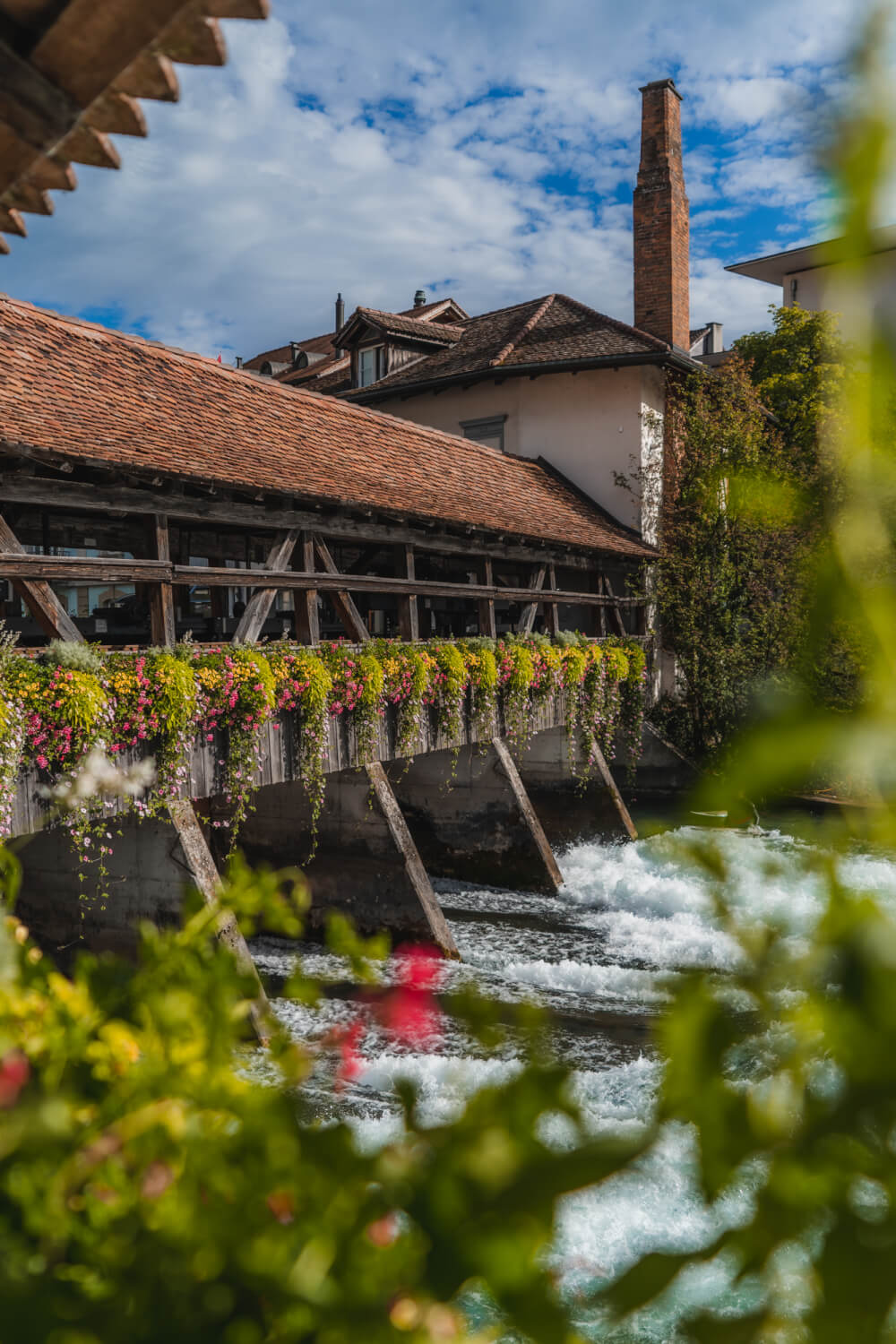
25. Buy groceries & cook to save big
On a similar note, if you’re on a budget, don’t feel pressured to dine at a restaurant for every meal while in Switzerland.
These costs can add up quickly, and since service in Europe is less rushed than in North America, often this will cut into your sightseeing time as well.
Instead, don’t forget that grocery stores and markets are a great resource for cheap grab & go meals, or even groceries for whipping up your own meals if you’ve booked accommodation with kitchen facilities.
The cheapest places to get groceries in Switzerland would be ALDI or Lidl (huge German chains known for their rock bottom pricing), or Switzerland’s own leading discounter, Denner.
Depending on where you are though, I’ve found that there often aren’t one of these available, so in those cases, be sure to look for the budget store brand for whichever supermarket you’re shopping at. These would be…
- M-Budget brand at Migros
- Prix Garantie brand at Coop
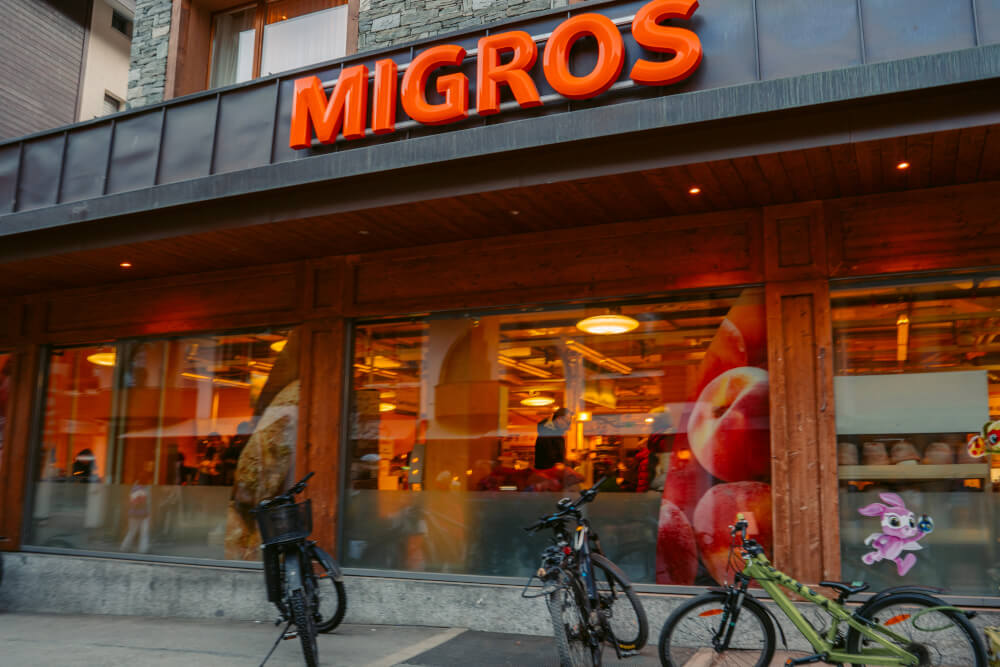
26. Shop for souvenirs at the supermarket
If you’re looking for nice goodies to bring back home to loved ones, often you’ll save a lot of money by buying them at the supermarket, rather than at pricey souvenir shops.
And no, I don’t mean in a “hey Timmy, I missed you, here’s some Swiss lettuce” kind of way, but moreso in a “suitcase full of Swiss chocolates and personalized Toblerones” kind of way.
Many souvenir shops will sell chocolate and the like, but usually for a higher markup than supermarkets. Beyond that, many supermarkets in more touristy areas will also have things like postcards and magnets too, so keep an eye out! Nobody from home has to know.
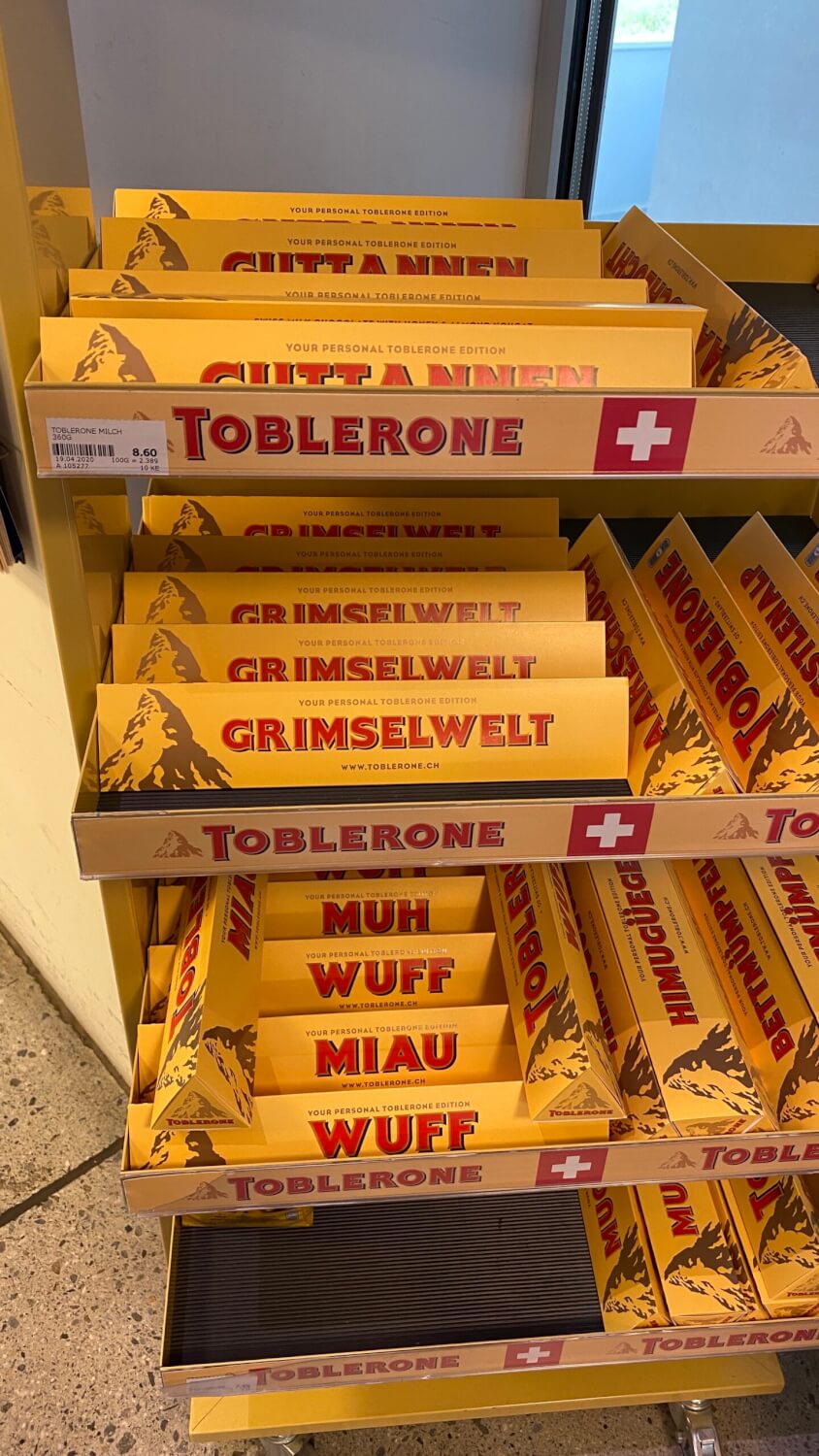
27. Visit Äss Bar
Yay! My favourite Switzerland tip for saving money! Because I’m sure you’re all absolutely mortified right now from that heading.
Don’t worry though – I haven’t completely lost it. I know the name seems a bit… questionable, but Äss Bar is actually a unique Swiss chain known for their low prices because they sell day old food that’s still good to consume.
It’s all bakery stuff like sandwiches, salads, and pastries, and honestly really good value for money, with quite a few locations now spread across the country. I’ve enjoyed a salad from there before, and was very pleasantly surprised by the price and quality.
Overall – it’s a great pick if you’re on a budget, or at the very least a fun photo opp:
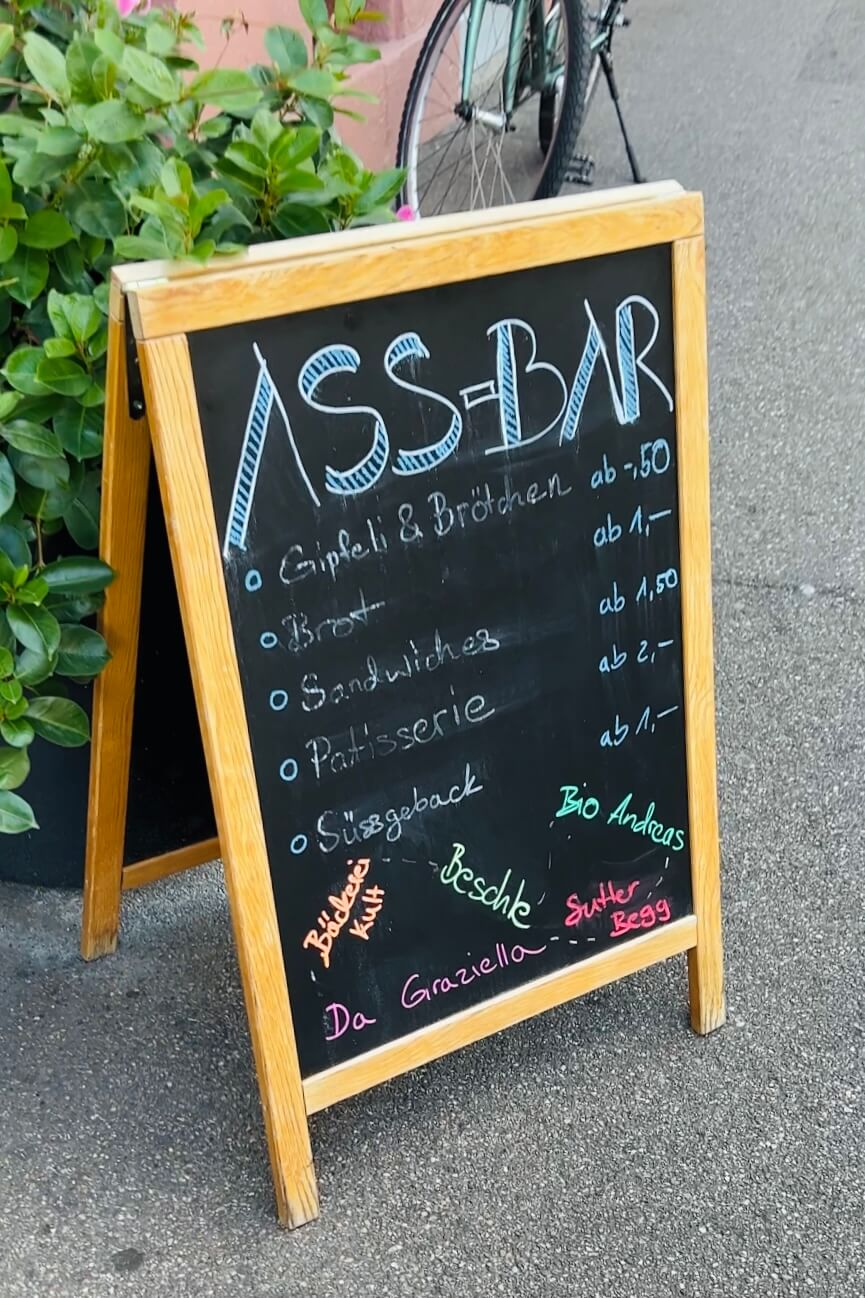
28. Consider sightseeing/attractions passes
If you plan to do a lot of paid attractions while in Switzerland, those costs can add up, so another way to save money on those is by purchasing… you guessed it – a pass!!
Most cities and regions will offer an attraction pass of some kind that bundles up entry to multiple attractions and modes of transport for one set price. If you plan to do a lot of paid sights, these can save you a ton of cash.
I’ve previously purchased one in Lucerne and was shocked by how much I saved.
Buuuut beware that some attractions and cable cars are privately owned and won’t be part of certain passes, so definitely read the fine print to double check if there’s a specific sight you had your hopes on.

29. Prepare for ever-changing weather
Generally, I have been blessed with beautiful weather on every trip of mine to Switzerland, but I’ve learned the hard way that Swiss weather conditions can change quickly. Very quickly.
It can also vary a lot depending on your elevation.
Many first time visitors fail to take into account that nasty weather conditions can mean zero visibility up in the mountains, which is a bummer when you pay so much to get up there!
So, be sure to check weather reports diligently and don’t forget what a huge consideration that is during your Switzerland trip… and pack layers so that you’re not caught off guard with swift changes in temperature and conditions.

30. Use webcams to spy on visibility conditions for mountain attractions
Another important tip is to use webcams to check visibility conditions before heading up to alpine attractions.
Swiss mountains are epic… but they’re also very high up. And just because the visibility is fine on ground level doesn’t mean it will be 2000m above ground.
This is why I’d advise against booking set date tickets or tours for Swiss alpine attractions until you get close to the date and have an idea of the forecast. It can be very disappointing to spend a bunch of money just to get up and see nothing but pure whiteness.
Anyways, one way to quickly check on weather is by using webcams. Most mountains will have a few installed so just google the viewpoint name and webcam to see if you can find one.
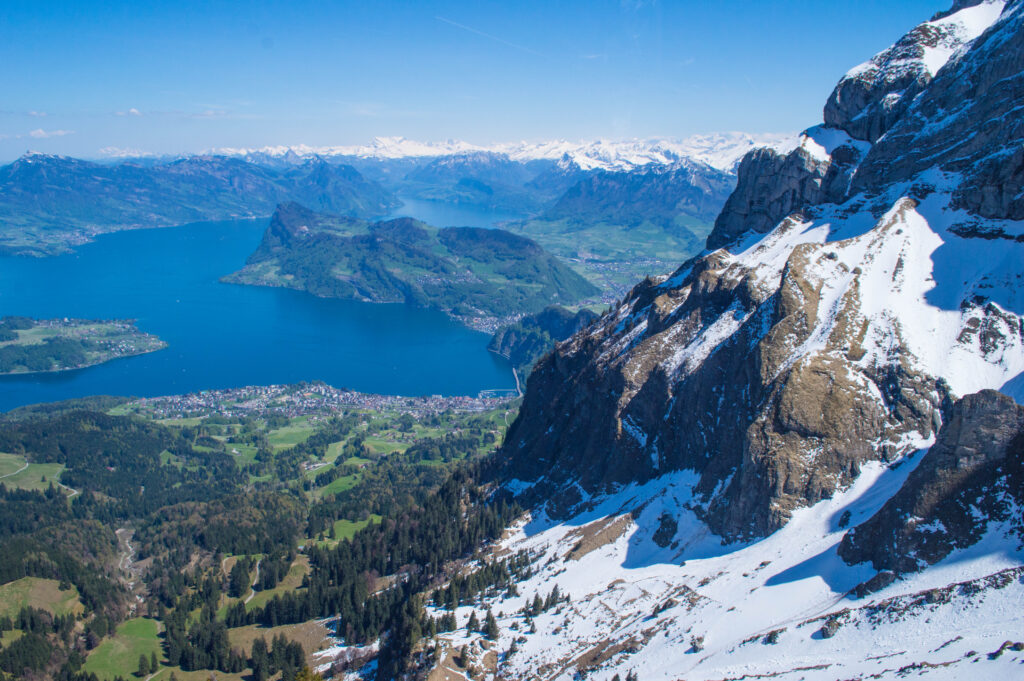
31. Rent free bikes
And as if Switzerland didn’t sound Utopian enough, another hot Swiss travel tip for you is that some cities actually offer free bike rentals so long as you put down a deposit and ID.
Here are two known cities that do this:
- Zurich: ‘Züri rollt’ program – free bike rental with a deposit of 20 CHF
- Geneva: GenèveRoule program – free bike rental in the summer with a deposit of 20 – 100 CHF plus an ID
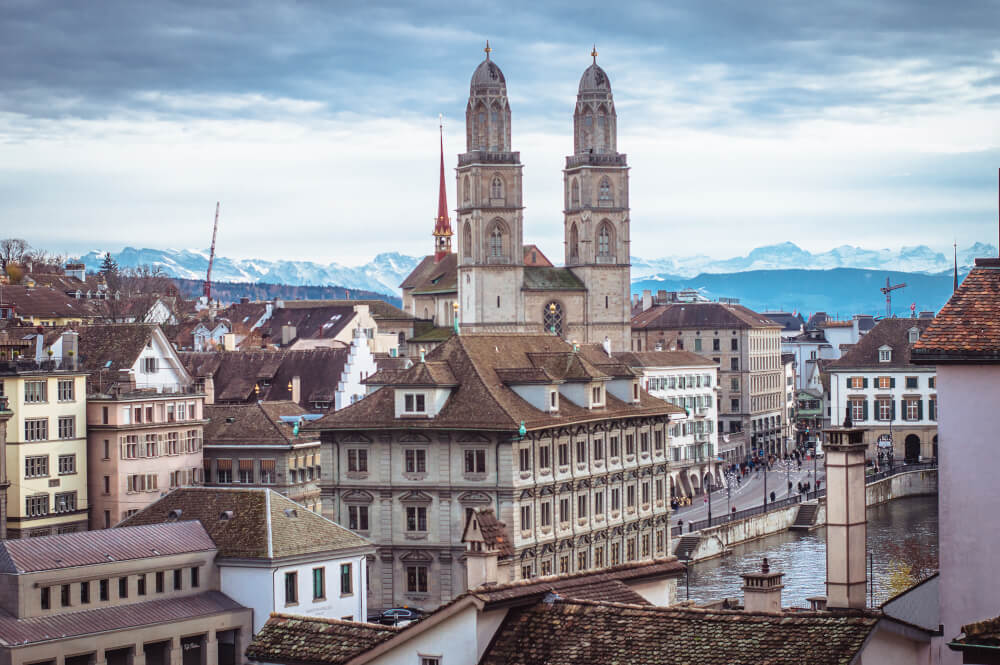
32. Use train station lockers
When travelling around Switzerland, if you’re looking for a stress-free way to explore a city for the day, or if you need a place to dump your bags before check-in or after check-out, remember that most Swiss train stations have a paid locker service that will totally save your life.
With them, you can explore with ease without worrying about lugging your bags around. So helpful!
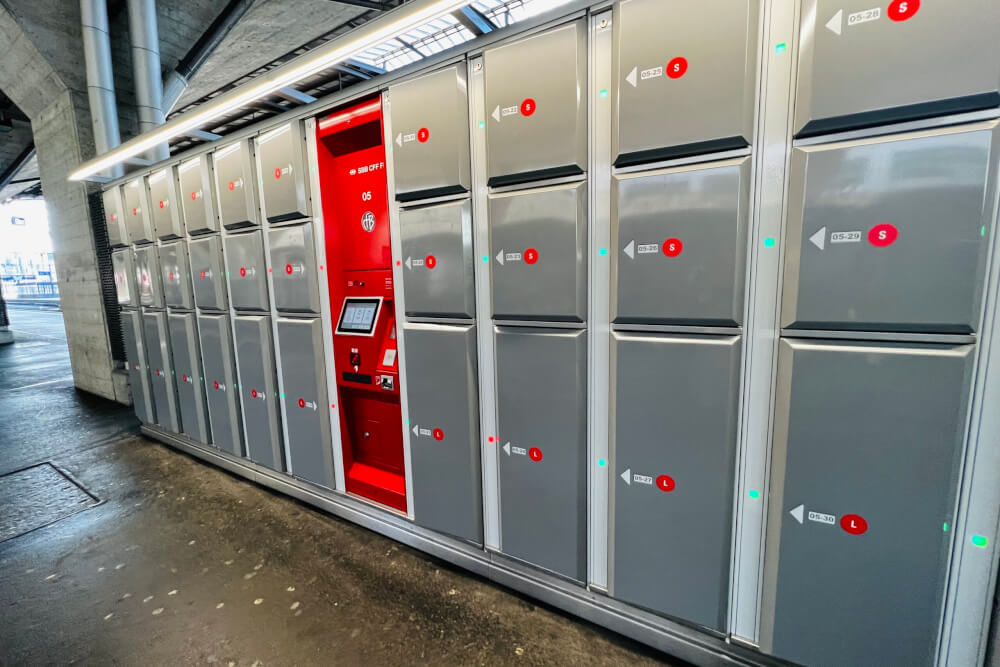
33. Get familiar with the many free things to do in Switzerland
Alright, as we near the end of this list of Swiss travel must-knows, it’s worth mentioning that while the country is (generally) quite expensive to travel, many of the best things to do in Switzerland are free.
Hiking? Free. Swimming in lakes? Free. Leaving a trail of drool as you gape at all the landscapes? Very messy… and very free!
Beyond the obvious however, there are many free attractions in pretty much every major Swiss city, from museums and parks to even a free tour of the Swiss Parliament Building.
So, be sure to google “Free Things to Do + Destination” to uncover a wealth of great freebies.

34. Know what “CH” means
Last but not least, allow me to solve a Switzerland mystery for you so you can strut around during your trip as someone ‘in the know’.
All over Switzerland, you’ll see the letters “CH” everywhere – the currency is CHF, most Swiss website URLS end in .ch…. etc. etc.
So what is that about? Well, as I learned, it comes from the Latin “Confoederatio Helvetica”, AKA the “Helvetic Confederation”.
The Helvetians were a Celtic tribe that occupied Switzerland for hundreds of years up to the 5th century.
Their legacy lived on through the Latin name of Switzerland through the Middle Ages (Helvetia), which is still seen today all over the country in the form of “CH”. Just in case you were curious (and want to flaunt your knowledge in front of your travel companions).
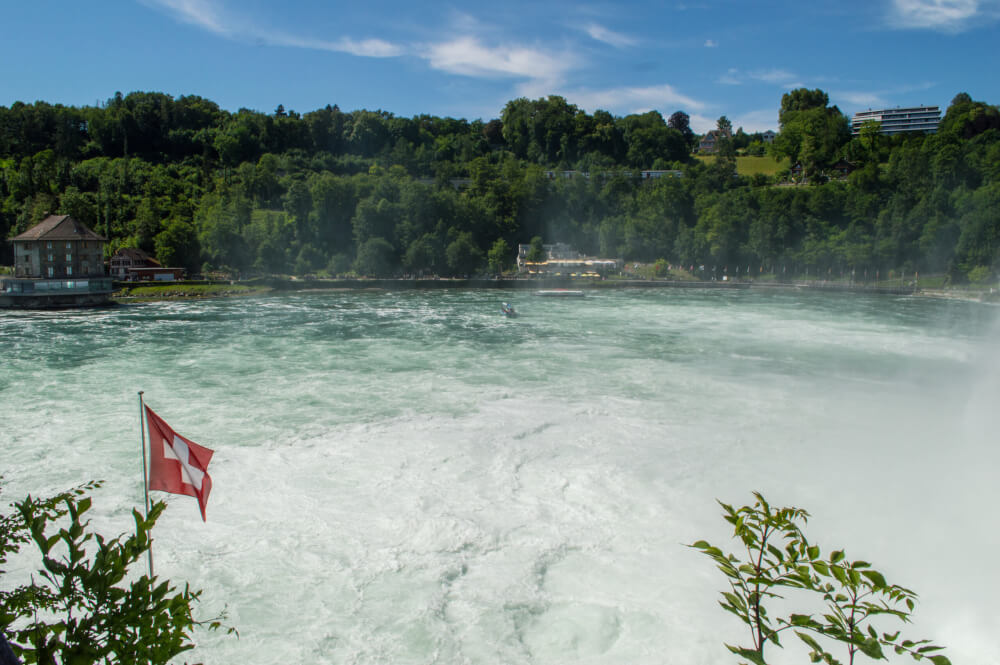
I hope this list of Switzerland travel tips was helpful!
Made it this far? Still reading? Wow! Hi mom 🙂 I admit this was a VERY long list of tips for Switzerland travel, but if you have any more questions, let me know in the comments.
My Go-To Travel Favourites:
🧳 Eagle Creek: My favourite packing cubes
💳 Wise: For FREE travel friendly credit cards
🍯 Airalo: My go-to eSIM
🏨 Booking.com: For searching hotels
📷 Sony A7IV: My (amazing) camera
✈️ Google Flights : For finding flight deals
🌎 WorldNomads: For travel insurance
🎉 GetYourGuide: For booking activities
4 thoughts on “30+ Switzerland Travel Tips for First Timers & Must Knows Before You Go”
I’ve lived here for ten years and still always giggle when I see the Äss Bar.
“The main one for me is that local bus services don’t tend to drop you to more remote hiking destinations or nature spots”
Yes they do. There are endless bus and train stops in the middle of nowhere. Certainly there are some spots you can drive to that would be an hours walk or more from the nearest public transport stop, but it would take years to exhaust all the options that are possible without a car.
“One of the most infuriating parts of travelling in Switzerland is the ubiquitous “Wanderweg” (Hiking Path) sign, which often points in two directions and offers little to no help for those new to these trails”
Those signs are just to indicate which of multiple options the path follows. If you come across a sign like that it means you just somehow stumbled into the middle of the section.
There are frequent signposts at every junction on the network and likely starting place (village, bus stop, car park etc) showing the destinations with the average time to reach them, and useful things like food or transport options – often with a map too in villages/transport stops.
You can also download the map on the SwissTopo app for free and check your position on that if you do somehow start mid-route.
Great article, and a ton of useful info !!!
I’m going there for Christmas & New Years by myself for the first trip across the pond. Flying in and out of Zurich. Starting off in Bern for Christmas, and eventually making my way back to Zurich. Any suggestions for Christmas day in Bern or New Years in Zurich….or elsewhere ?
Thanks again for your awesome article !!!
Hi Craig, sounds like you have a great trip planned! I haven’t spent Christmas in Bern so I’ll point you towards their official tourism page which will have more helpful info: https://www.bern.com/en/christmas/highlights If you didn’t know though, do prepare yourself for the fact that most (if not all) of the Christmas markets will be closed on Christmas Day.
As for New Years in Zurich, again, I haven’t had that experience myself but it looks like they do a cool fireworks display over the lake! Here’s more info on that: https://www.zuerich.com/en/visit/new-years-eve-in-zurich
Hope that helps, and safe travels! 🙂
Leave a Comment Cancel reply
By using this form you agree with the storage and handling of your data by this website. *
Nomadic Matt's Travel Site
Travel Better, Cheaper, Longer
Zurich Travel Guide
Last Updated: August 17, 2023
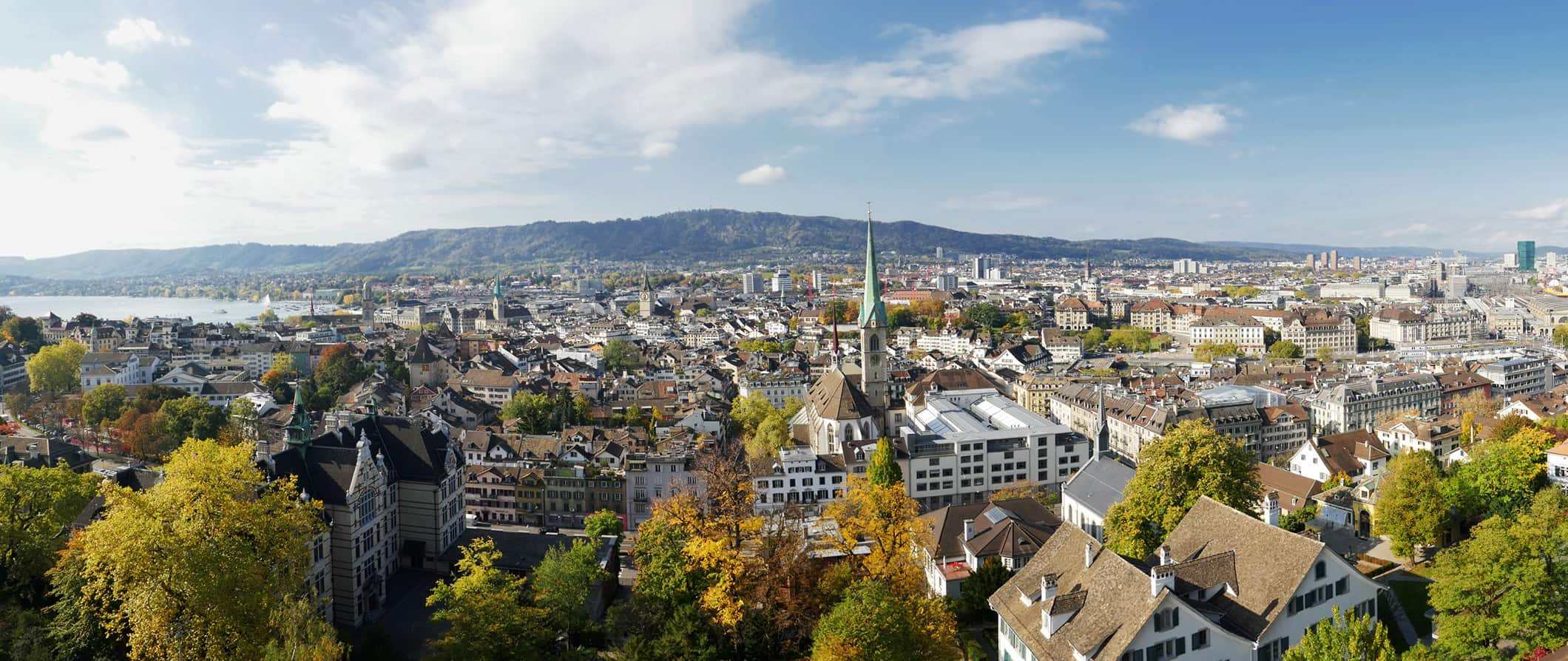
The biggest of the Swiss cities, Zürich has a hopping nightlife and is filled with endless bars and restaurants. It’s a cosmopolitan city that’s bustling with activity. It’s also set on a beautiful lake near the mountains so you can also do a lot of nature-based activities when you visit.
While Zürich is known as a financial hub and business center, it’s also one of the most cosmopolitan and dynamic Swiss cities. The city is very arty and full of street art and exhibitions. Zürich’s cultural scene includes theaters and opera, several well-known orchestras, and the Cabaret Voltaire.
The city also has a good number of festivals such as the Sechseläuten in April (which includes a procession and the ceremonial burning of a snowman), the Knabenschiessen in September (a sharpshooting contest for young people), the Fasnacht (Zürich Carnival) in late winter. There’s also the techno music Street Parade in August, which thousands of people come to.
In short, Zürich is a city with tons to see and do — no matter your interests.
While very expensive thanks to all the banks in the city, this travel guide to Zürich can help you visit the city on a budget and ensure you have a great time without breaking the bank!
Table of Contents
- Things to See and Do
- Typical Costs
- Suggested Budget
- Money-Saving Tips
- Where to Stay
- How to Get Around
- How to Stay Safe
- Best Places to Book Your Trip
- Related Blogs on Zürich
Top 5 Things to See and Do in Zürich
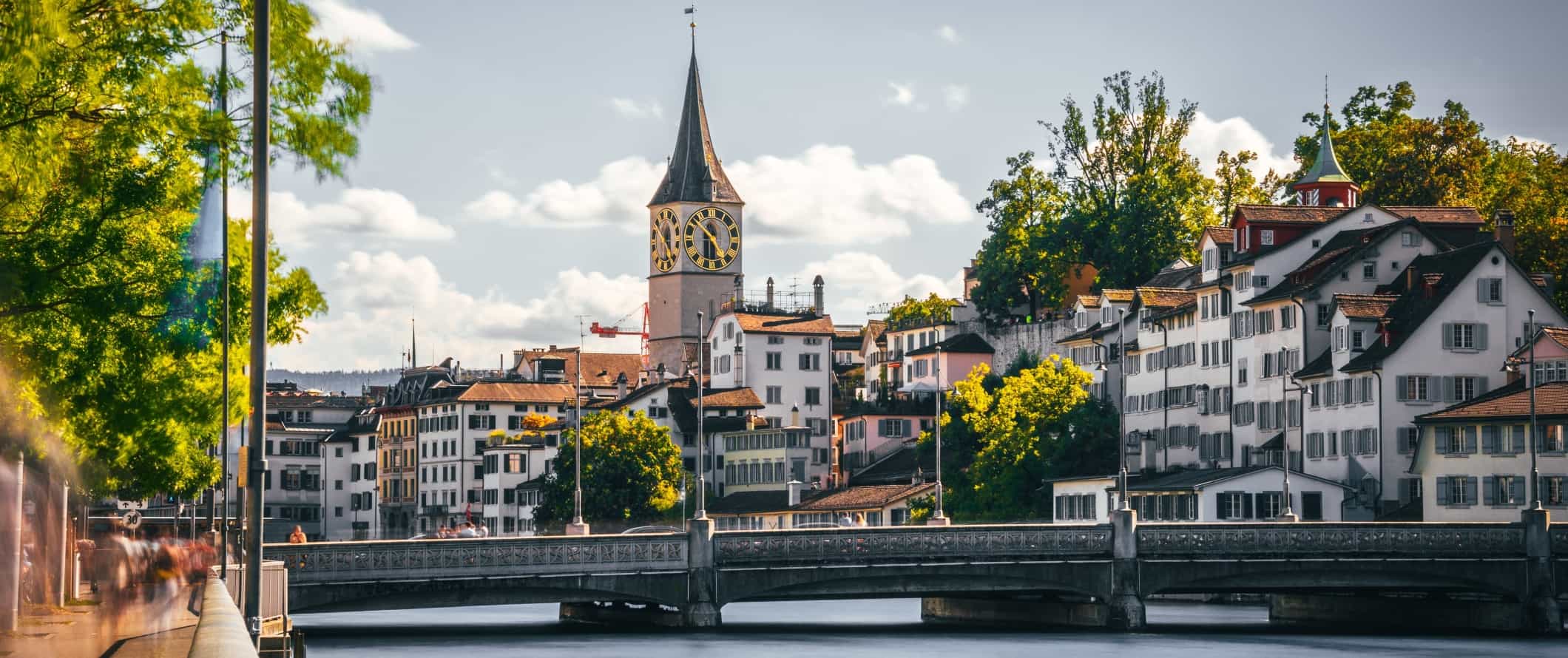
1. Go hiking
Zürich has two mountains that offer good views and even better hikes: Zürichberg to the East and Uetliberg to the West. Zürichberg is busier but Uetliberg has better mountain-biking trails. Start with the Planet Trail on Uetilberg for an easy two-hour trek. It takes 20 minutes to get there by train/tram.
2. Visit the National Museum
This museum offers a detailed look into the history of the country. The exhibits are comprehensive and it has a number of both permanent collections and temporary ones. A new archaeological section was opened in 2016 as well. Admission is 10 CHF.
3. See the City Gardens of Stadt Gaertnerei
This small botanical garden is home to some 250,000 plants that are used in public flowerbeds around Zürich. It’s also home to 17 different species of tropical birds, including toucans. It has rotating exhibitions, guided tours, lectures, and every Wednesday there’s an informational talk about plant life.
4. Catch the Street Parade
This is currently the biggest open-air techno rave in Europe. It happens on the second Saturday of August during which time trucks functioning as mobile sound systems start driving along the lakeside. Every year, this event attracts nearly a million visitors who dance carefree in the streets.
5. Walk around the Old Town
Located on both sides of the Limmat River, the Old Town is filled with guild houses and historic churches. Stop to eat at one of many restaurants or have a drink at a variety of pubs, or walk around tasting the city’s unique cheese and chocolates. Be sure to try the truffles at Confiserie Honold too.
Other Things to See and Do in Zürich
1. taste swiss chocolate.
Switzerland is synonymous with chocolate. To do a deep dive into this cultural staple, try a food tour. Sweet Zürich Tour organizes tours that focus on chocolate and its 200-year-old tradition in Switzerland. You’ll get to taste lots of chocolates, uniquely flavored truffles, bars, ice cream, and hot chocolate all while you learn about the chocolate trends of Zürich. Their small tours (2-10 people) take around 2.5 hours and cost CHF 85.
2. Explore Zürich’s vibrant nightlife
Zürich may be a relaxing city during the day, but at night it comes alive with over 500 nightlife venues including pubs, restaurants, music halls. With no open-container laws in Zürich, you can start your night with cheap drinks on the Limmat riverfront before moving to the bars and clubs. When you are ready to hit the town, head to Neiderdorf in the Old Town or Langstrasse just nearby for some of the best clubs and bars in Zürich. Cinchona Bar and Olé-Olé-Bar are two fun options.
3. Eat in the dark at Blindekuh Zürich
At the restaurant Blindekuh (which means “Blind Man’s Bluff” in German) you eat in the dark. Founded in 1999, this restaurant became the first dark restaurant to employ visually impaired staff in the world. Eat with only 4 out of 5 senses here and have a culinary adventure. It’s unlike any other dining experience out there. Expect to pay around 75 CHF for a three-course meal.
4. Walk the lake promenade
The Lake Zürich promenade was created around 1800 and stretches around the entire lake. From Bellevue, the boardwalk runs for about 3 kilometers (2 miles) along the lake towards Tiefenbrunnen, and is always busy with walkers, cyclists, and inline skaters. About halfway, at Bürkliplatz, there’s a peaceful meadow for relaxing on a sunny day, as well as an outlook terrace. If you’d rather mingle with the locals, pause and chat with some of the jewelry sellers or street artists who dot the promenade.
5. Go skiing
Flumserberg is the nearest large ski-resort to the city. A day pass costs around 69 CHF, but there are reduced passes available (as low as 39 CHF) if you go later in the day. There are other nearby ski resorts too, like Sattel-Hochstuckli and Amden, both of which can be reached in under an hour by car. There are also lots of cross-country skiing options nearby too, including Zurgerberg, Bachtel, and Rothenthurm. You can rent cross-country skis and boots for around 110 CHF per day.
6. Visit the Beyer Zürich Clock & Watch Museum
Switzerland is famous for its watchmaking. This private museum has one of the best collections in the world and tells the history of timekeeping from 1400 BCE (when they used things like sundials and hourglasses) to today. Check out all of the timepieces housed in this well-designed museum, and be sure to pay attention to the one-of-a-kind, rare, and antique clocks. Admission is only 10 CHF.
7. Celebrate Swiss National Day
If you happen to be here on August 1st, Swiss National Day celebrates the founding of the Swiss Confederation in 1291. Festivities are carried out in the evenings and fireworks are launched at night. Watch them over the lake, or if you have experience with (safely) launching fireworks yourself, you can buy them in the days leading up to the national holiday. The display over the Rhine Falls (one hour away by S-Bahn) is also extremely popular. No matter where you are in the city, you can find houses and buildings draped in the Swiss flag and another colorful bunting, while families and friends take advantage of the holiday to gather in parks and public spaces for barbecues and picnics.
8. Take a boat tour
When the weather is nice, take a boat tour on Lake Zürich to admire the scenic views of the region. You can find mini-tours starting at 25 CHF and bookings can be made at the pier on Bahnhofstrasse or online. Tours/cruises just get more elaborate from there, with a variety of themes such as cheese fondue cruise, folklore cruise, a brunch cruise, and even a build-your-own-burger cruise. These trips cost between 45-115 CHF per person.
10. Check out the Rietberg Museum
For a day of international art, head to the Rietberg Museum. It’s the third-largest museum in the city and the only art museum in the country that focuses on non-European art. The museum contains collections from around the world, including Asia, Africa, and Oceania. Admire Indian miniature paintings, Swiss masks, and ceramics from the Meiyintang collection. Other highlights include a shaman eagle mask and Persian wall hangings. Admission is 18 CHF for the collection plus special exhibitions. The park where the museum is located (Lindenhofplatz) looks over the city and is nice to pass a couple of hours in.
11. Tour Rosenhof Market
This seemingly hidden market in a square in the Niederdorf part of the Old Town is perfect for picking up little souvenirs and trinkets. Go here to browse shops selling intriguing goods like incense, jewelry, handicrafts, and bohemian clothing. When you’re here, be sure to sample some international food from one of the many delicious food stalls.
12. Wander around Bahnhofstrasse
Bahnhofstrasse is renowned for being one of the priciest shopping streets in the world per square meter; the entire route is covered in high-end shop fronts featuring international luxury brands. If you’re backpacking, you’re probably not shopping on this pedestrian street but it’s fun to people watch and see how the other side lives. If you’re here in December, be sure to check out the elaborate Christmas decorations lighting up the entire area.
13. Admire the architecture
Zürich is an attractive city and has many architectural features including the beautiful and well-preserved Altstadt (Old Town). Here is the 1,400-year-old Romanesque Grossmünster which was built by Charlemagne, St. Peter’s Church which was built in the 13th-century, and the Fraumünster (Minster of Our Lady) which has some beautiful stained glass windows that were designed by Marc Chagall. There are also guild houses and patrician residences (some are used as restaurants or for civic functions). More old buildings can be found along both shores of the Limmat River too.
For more information on other cities in Switzerland, check out these guides:
- Basel Travel Guide
- Bern Travel Guide
- Geneva Travel Guide
- Interlaken Travel Guide
Zürich Travel Costs
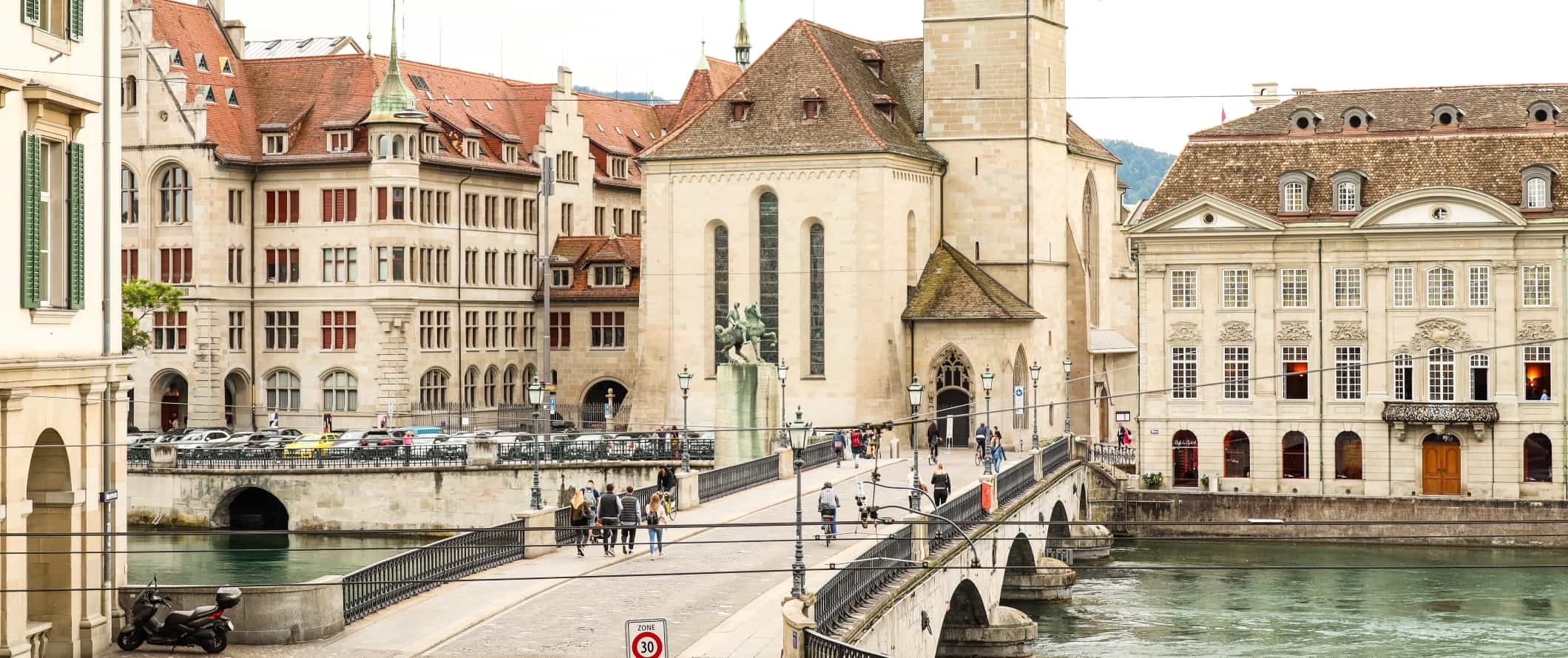
Hostel prices – There are only a couple of hostels in Zürich and they book up quickly in summer, especially during major festivals and events. Expect to spend at least 50 CHF per night for a bed in a 4-6-bed dorm (although prices can be as high as 100 CHF). Private rooms start at 100 CHF, but you’re more likely to spend over 120 CHF. Hostels typically include free breakfast and free Wi-Fi.
There are a few campsites around Zürich — including some that are right on the lakes. Prices start at 8 CHF per night for a basic plot without electricity but expect to pay more if you want to be closer to the city center. Wild camping is legal in the mountains above the treeline only (and it’s not permitting in official nature reserves).
Budget hotel prices – There are a handful of budget hotels in Zürich and they start at 80 CHF per night. Expect basic amenities like free Wi-Fi, TV, coffee/tea makers, and occasionally free breakfast.
Airbnb is available here with private rooms averaging around 90 CHF per night. Renting an entire home/apartment averages 200 CHF per night (though you can find cheaper options if you book early).
Food – With strong French, German, and Italian influences, Swiss cuisine is a mix of meat and potato-based dishes along with plenty of local cheeses. Popular dishes include veal and mushrooms, fondue (with bread or potatoes), rösti (fried grated potatoes), and quiche. Naturally, Swiss cheese and chocolate should not be missed either. When it comes to breakfast, muesli is a go-to healthy choice.
If you want to eat out, bars and cafés are the cheapest food option and cost about 9-15 CHF for a lunch special. An inexpensive restaurant costs about 25 CHF while a 3-course meal at a mid-range one costs about 60 CHF.
If you want to drink with your meal, a beer costs around 7 CHF and cocktails can cost 12-15 CHF.
Fast food (think McDonald’s) costs around 15 CHF for a combo meal. A large pizza is 15-21 CHF.
Sternen Grill, which has been open since 1963, has a couple of takeaway locations with wurst, deli sandwiches, and other delights for 8-15 CHF. Vegetarians and vegans can enjoy the menu at Tibits. Kafischnaps is a hip café with yummy breakfast and lunch menus with dishes under 20 CHF.
You can keep your food spending in check by going to the local supermarkets and buying your own groceries. Expect to spend around 140 CHF per week for basic staples like pasta, rice, eggs, seasonal produce, and some meat. The major supermarkets are Migros, COOP, and Spar. COOP is the most expensive.
Backpacking Zürich Suggested Budgets
For those backpacking through Switzerland, budget 100 CHF per day. This is a suggested budget assuming you’re staying in a hostel, cooking all of your meals, using local transportation to get around, limiting your drinking, and doing mostly free and cheap activities like walking tours and hiking.
For a mid-range budget of 195 CHF per day, you can stay in a private Airbnb, eat out for most of your meals, enjoy a few drinks, take the occasional taxi to get around, and do more paid activities like food tours, skiing, and museum visits.
On a “luxury” budget of 410 CHF or more per day, you can stay in a hotel, eat out for all your meals, drink more, take more taxis or rent a car, and do whatever tours and activities you want. This is just the ground floor for luxury though. The sky is the limit!
You can use the chart below to get some idea of how much you need to budget daily, depending on your travel style. Keep in mind these are daily averages — some days you’ll spend more, some days you’ll spend less (you might spend less every day). We just want to give you a general idea of how to make your budget. Prices are in CHF.
Zürich Travel Guide: Money-Saving Tips
Zürich is a very expensive city. There’s no hiding that fact. But there are plenty of ways to save money in the city so you don’t go bankrupt while visiting. Here are some helpful ways I lowered my costs:
- Buy a Zürich Pass – The Zürich Pass offers excellent value, with free airport transfers and local transportation as well as free admission to forty Zürich museums. A 24-hour Zürich Pass costs 27 CHF while a 72-hour pass costs 53 CHF.
- Ride a free bike – In Zürich, city bikes, e-bikes, and children’s bikes can be rented for free! You can pick your bike up year-round with a valid ID and a deposit of 20 CHF at the main station (Europaplatz). This service, known as Züri rollt, is available for every visitor.
- Stay with a local – Couchsurfing is a service that lets travelers stay with locals for free. It was a lifesaver that allowed me to keep my costs down the most. Since a lot of travelers use this service here, make your requests for hosts early.
- Don’t drink – Drinking alcohol is not cheap here so avoid it if you want to save money. If you’re going to drink, stick to hostel bars and happy hours.
- Cook your own meals – While it isn’t glamorous, cooking your own meals will cost you a fraction of what eating out costs. The major supermarkets are Migros, COOP, and Spar. COOP is the most expensive.
- Go veggie – Meat is expensive in Switzerland. Stick to veggies and avoid buying meat for your meals (especially beef).
- Use lunch specials – If you are going to eat out, do so during lunch when there are lots of affordable lunch specials. Moreover, stick to Chinese, Middle Eastern, Indian, and Thai restaurants for the best deals and biggest portions.
- Take a free walking tour – To get a feel for the city and learn about its history, take a free walking tour with Free Walk Zürich . it’s the best way to see the highlights on a budget. Just make sure to tip your guide at the end!
- Save money on rideshares – Uber is cheaper than taxis and is the best way to get around a city if you don’t want to wait for a bus or pay for a taxi.
- Bring a water bottle – The tap water here is safe to drink so bring a reusable water bottle to save money and reduce your plastic use. LifeStraw is my go-to brand as their bottles have built-in filters to ensure your water is always clean and safe.
Where To Stay in Zürich
There are only a couple of hostels to choose from in Zürich. Here are your options:
- Oldtown Hostel Otter
- Youthhostel
- Green Marmot Capsule Hostel
How to Get Around Zürich
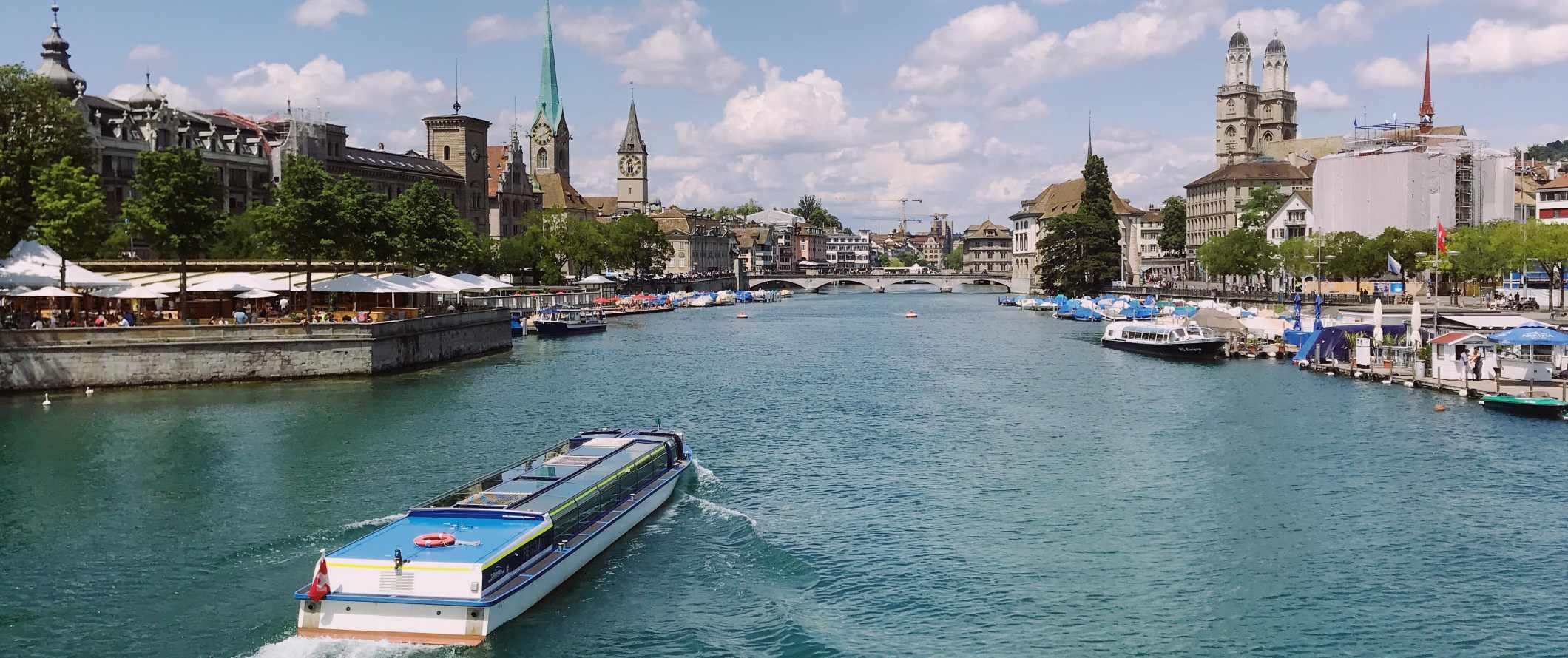
Public transportation – The bus, train, and tram system in Zürich runs on one extensive network. Zürich is divided into zones, and you need to make sure you purchase tickets or a day card which covers the appropriate zones. For example, Zürich City is zone 110, while the airport is part of zone 121.
Single tickets on public transit with Zürich Transport Network (ZVV) start at 3.10 CHF for 1 hour in 1-2 zones and increase from there. These tickets are good for the bus, tram, train, and boat.
The best value for public transit is the Zürich Card, which gives unlimited 2nd-class travel by tram, bus, rail, boat, and cable car in the city, as well as surrounding regions (zones 111, 121, 140, 150, 154, 155). The card also includes transfer between the city and the airport, an excursion trip to Uetliberg, short boat trips, and the Limmat River Cruise. The cost for 24 hours is 27 CHF and it’s 53 CHF for 72 hours.
Bike – Zürich has an excellent public bike-sharing program. Bikes are available year-round at Europlatz and can be used for free, once you pay a 20 CHF deposit. PubliBike is also available and has several stations spread throughout the city. The first 30 minutes cost 2.90 CHF, and then 0.10 CHF for each additional minute, up to a maximum of 20 CHF per day. To sign up, download their app and follow the instructions.
Taxi – Taxis are incredibly expensive in Zürich. In fact, with base fares starting at 6 CHF and then going up by 3.80 CHF per kilometer, Zürich taxis are some of the most expensive in the world. Skip them!
Ridesharing – Uber is available in Zürich and is a bit cheaper than taxis. However, public transportation goes everywhere so you really shouldn’t need one.
When to Go to Zürich
Summer is the most popular time to visit Zürich. July and August have the warmest temperatures, offering snow-free hiking trails and longer days. If you’re around on August 1st, there are tons of celebrations for Swiss National Day. Peak temperatures hover between 18-28°C (65-82°F). This is when prices are the most expensive, though it never gets too crowded here compared to other cities in Western Europe.
The shoulder seasons are from around April-May and October-November, which are known in Switzerland as Zwischenzeit — the “between time” for the ski and summer seasons. The weather can be unpredictable, but if you want to visit Zürich as cheaply as possible (and take your chances on the weather), this is the time to do it.
From December to March Zürich tends to be quieter as everyone flocks to the mountains. The weather is cold, with temperatures dropping below freezing, so be sure to pack plenty of layers. Because of its proximity to the ski resorts, hotel prices can also be quite high during this time – especially around Christmas when Europeans are on holiday. Book early to find the best deals.
How to Stay Safe in Zürich
Switzerland is one of the safest countries in the world (it’s ranked 7th safest currently). Both violent crime and petty theft like pickpocketing are extremely rare here.
That said, always keep your valuables secure and out of reach when in crowded areas and on public transportation.
Solo female travelers should feel safe here, though the standard precautions apply (don’t leave your drink unattended at the bar, don’t walk home alone at night if intoxicated, etc.)
While scams here are rare, if you’re worried about getting ripped off you can read about common travel scams to avoid here.
If you plan on hiking or spending some time skiing in the mountains, pay careful attention to weather reports. Heed avalanche warnings, and stay off the trails if you’re told to do so.
If you experience an emergency, dial 117.
Always trust your gut instinct. Make copies of your personal documents, including your passport and ID. Forward your itinerary along to loved ones so they’ll know where you are.
The most important piece of advice I can offer is to purchase good travel insurance. Travel insurance protects you against illness, injury, theft, and cancellations. It’s comprehensive protection in case anything goes wrong. I never go on a trip without it as I’ve had to use it many times in the past. You can use the widget below to find the policy right for you:
Zürich Travel Guide: The Best Booking Resources
These are my favorite companies to use when I travel. They consistently have the best deals, offer world-class customer service and great value, and overall, are better than their competitors. They are the companies I use the most and are always the starting point in my search for travel deals.
- Skyscanner – Skyscanner is my favorite flight search engine. They search small websites and budget airlines that larger search sites tend to miss. They are hands down the number one place to start.
- Hostelworld – This is the best hostel accommodation site out there with the largest inventory, best search interface, and widest availability.
- Booking.com – The best all around booking site that constantly provides the cheapest and lowest rates. They have the widest selection of budget accommodation. In all my tests, they’ve always had the cheapest rates out of all the booking websites.
- Get Your Guide – Get Your Guide is a huge online marketplace for tours and excursions. They have tons of tour options available in cities all around the world, including everything from cooking classes, walking tours, street art lessons, and more!
- SafetyWing – Safety Wing offers convenient and affordable plans tailored to digital nomads and long-term travelers. They have cheap monthly plans, great customer service, and an easy-to-use claims process that makes it perfect for those on the road.
- LifeStraw – My go-to company for reusable water bottles with built-in filters so you can ensure your drinking water is always clean and safe.
- Unbound Merino – They make lightweight, durable, easy-to-clean travel clothing.
- Top Travel Credit Cards – Points are the best way to cut down travel expenses. Here’s my favorite point earning credit cards so you can get free travel!
Zürich Travel Guide: Related Articles
Want more info? Check out all the articles I’ve written on backpacking/traveling Europe and continue planning your trip:
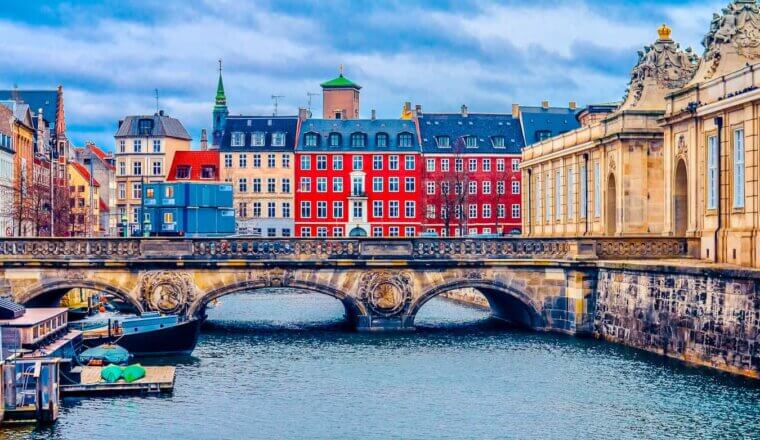
The 6 Best Hotels in Copenhagen

The 6 Best Hotels in Florence
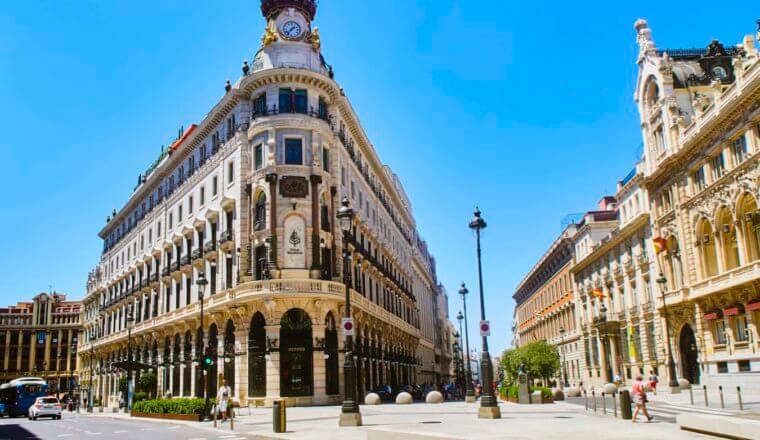
The 7 Best Hotels in Madrid
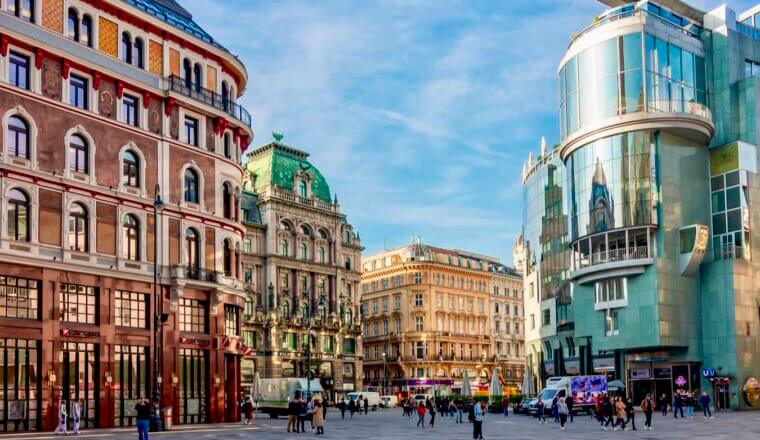
The 6 Best Hotels in Vienna

The Best Walking Tours in Barcelona
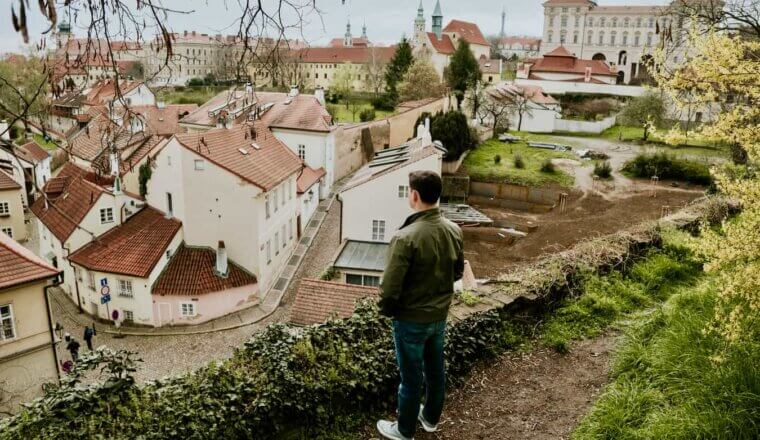
How to Be a Digital Nomad in Europe
Get my best stuff sent straight to you, pin it on pinterest.
- Where To Stay
- Transportation
- Booking Resources
- Related Blogs
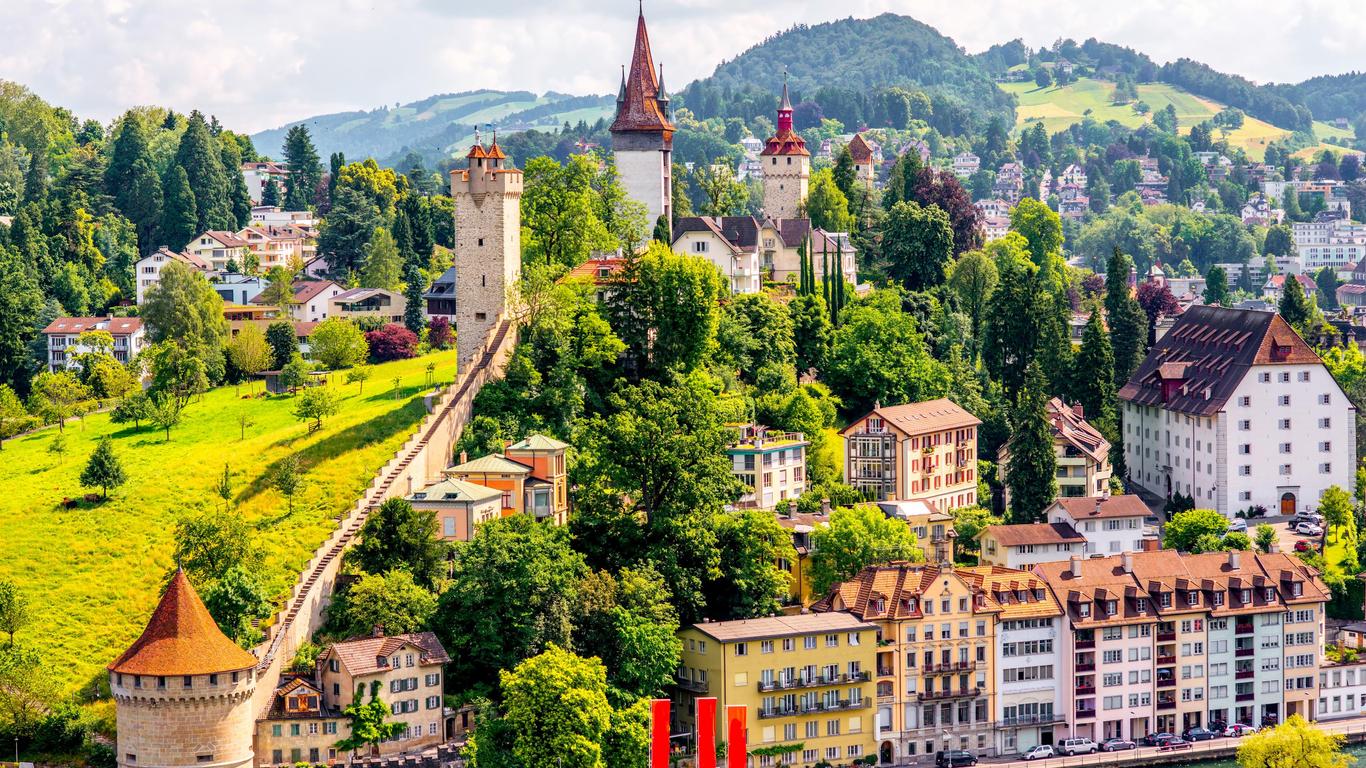
Find cheap flights to Switzerland from $162
This is the cheapest one-way flight price found by a kayak user in the last 72 hours by searching for a flight from the united states to switzerland departing on 10/10. fares are subject to change and may not be available on all flights or dates of travel. click the price to replicate the search for this deal., search hundreds of travel sites at once for deals on flights to switzerland.
Save 22% or more Compare multiple travel sites with one search.
Track prices Not ready to book? Create a price alert for when prices drop.
Filter your deals Choose cabin class, free Wi-Fi and more.
Bundle and save Save money when you bundle your flight + hotel.
Best Switzerland Flight Deals
Cheapest round-trip prices found by our users on KAYAK in the last 72 hours
Good to know
Faqs - booking switzerland flights, how to get to the city center from geneva international airport (gva).
The distance from the GVA airport to the city center is about 2.5 miles. It will take approximately 20 minutes and cost around 67 CHR ($70 USD) to take a taxi. Public transportation is preferable; in the arrivals hall, you may obtain a free pass for buses and trains. Buses take roughly 20 minutes to reach the city center, whereas trains take around six minutes.
Which facilities are available for those traveling with kids in Zurich Airport (ZRH)?
The kids' play areas are airside, at A81, A71, and B38. Zurich Airport has established a Family Services room to alleviate the hardship of flight for people with children. The space has diaper change tables, infant care supplies for sale, sleeping and nursing rooms, a kitchen with microwave and kitchenware, and a vast and colorful playroom of toys for the small ones and Playstation and video games for older kids. Childcare providers are available for assistance and support in the rooms airside at Gate A .Strollers are provided for children under four. You can get one at check-in and return it at your departure gate before flying.
What are the layover options from the U.S. to Switzerland flights?
The stopover options for flights from the U.S. to Switzerland vary depending on your airport, airline, and origin. Suppose you fly from Washington, D.C. (IAD) to Switzerland Zurich Airport. In that case, you could have stops at John F. Kennedy International Airport (JFK), Miami International Airport (MIA), Heathrow Airport (LHR), and Frankfurt Airport (FRA).
Are there lounges I can access at Zurich Airport?
Yes. If you are flying in economy class and arrive at Zurich Airport, you can visit the lounges by purchasing a day pass, paying at the door, or having an annual membership. The airport houses Aspire Lounge (Non-Schengen), located in Terminal E, on the third floor, near Gate E4. Aspire Lounge (Schengen), Dnata Skyview Lounge, Primeclass Lounge (Non-Schengen Area), and Swiss Lounge D are other lounges on the third floor.
Is a visa required to enter Switzerland?
Switzerland is a member of the European Schengen Agreement, which means that US Nationals can travel to Switzerland visa-free for up to 90 days. However, be advised that the 90 days applies to the Schengen area as a whole. As of 2021, an online ETIAS application will be required for entry. Official information can be found on the Swiss embassy’s website.
Are there nonstop flights to Switzerland?
There are international flights available to most of the airports in Switzerland; however, the only nonstop flights to Switzerland arrive in Zurich and Geneva, the country’s two busiest airports. Nonstop flights to these cities from the United States depart from several cities, including New York, Boston, Tampa, Las Vegas and Chicago.
Which city should I fly to for the best access to the Alps?
The Swiss Alps are one of the top tourist attractions in all of Switzerland, but they aren’t directly accessible from any Swiss airports. To get to the Alps, the best city to fly into is Zurich. After your flight lands in Zurich, you can transfer to the Alps’ base cities via train.
I want to visit Chillon Castle, which airport offers the easiest access?
Chillon Castle and the surrounding areas are another popular attraction for international tourists. The airport in Geneva provides the most convenient access to Chillon Castle. To get to the castle, you can catch a regional train from the city of Geneva to the city of Montreaux. Montreaux lies approximately 3mi from the castle.
How long is the flight to Switzerland?
An average nonstop flight from the United States to Switzerland takes 11h 27m, covering a distance of 4774 miles. The most popular route is New York - Zurich with an average flight time of 7h 45m.
What is the cheapest flight to Switzerland?
The cheapest ticket to Switzerland from the United States found in the last 72 hours was $380 one-way, and $429 round-trip. The most popular route is New York John F Kennedy Intl to Zurich and the cheapest round-trip airline ticket found on this route in the last 72 hours was $478.
Which airlines fly to Switzerland?
SWISS, United Airlines & Air Canada fly the most frequently from the United States to Switzerland.
What are the most popular destinations in Switzerland?
Based on KAYAK flight searches, the most popular destination is Zurich (74% of total searches to Switzerland). The next most popular destinations are Geneva (25%) and Lugano (0.3%).Searches for flights to Bern (0.0%) and to Thal (0.0%) are also popular.
How does KAYAK’s flight Price Forecast tool help me choose the right time to buy?
KAYAK’s flight Price Forecast tool uses historical data to determine whether the price for a given destination and date is likely to change within 7 days, so travelers know whether to wait or book now.
Top tips for finding cheap flights to Switzerland
- Enter your preferred departure airport and travel dates into the search form above to unlock the latest Switzerland flight deals.
- Zurich International Airport (ZRH) is Switzerland's most prominent and busiest airport. The airport, also known as Kloten, is a primary hub for the Swiss Airlines. The airline operates in Zurich and connects it to the country.
- Using charter flights, consider flying into Bern Airport (BRN) if you are heading to the Jungfrau Ski Region. If you fly into Zurich, it will take around one hour to use the train to the city center.
- If your final destination is around the French Alsace region, consider booking your flight to EuroAirport Basel Mulhouse Freiburg (BSL). It is located in southwestern Freiburg in Breisgau in Germany, southeastern Mulhouse in France, and northwest of Basel, Switzerland. France and Switzerland jointly oversee the airport's administration. Hence, choosing to fly to this airport will give you more options to choose from.
- Zurich Airport is the finest place to travel if you want to discover Switzerland. It is serviced by many international airlines, so it has a wide variety of travel options. It has excellent rail connections to major cities in the country.
- Geneva International Airport (GVA) is the primary airport serving the city of Geneva, as well as the countries of Switzerland and France. This airport has two terminals: the new, larger Terminal 1 and the seasonally used Terminal 2, which is used during the winter for select aircraft (charter or scheduled).
- You’ll have a handful of different arrival cities available when booking your flight to Switzerland. Although most of the international air traffic arrives in Geneva or Zurich, there are also flights from the United States available to the city of Basel in northwestern Switzerland and Lugano in southern Switzerland.
- Swiss Francs are the only official currency in Switzerland, but Euros are accepted in some tourist areas, hotels and railway stations. If you pay in Euros at establishments that accept them, you’ll receive change in Francs, but you’ll get a more favorable rate if you simply obtain Francs from one of the widely available ATMs.
- If you’re traveling through the surrounding countries as well as spending time in Switzerland, flying into Milan, Italy can give you access to more flights from more countries than Lugano. Milan is close to the southern border of Switzerland and gives you access to both southern Switzerland and northwestern Italy.
- For travelers looking to explore several different parts of Switzerland, purchasing a Swiss Travel Pass is a great way to save money. Switzerland has an extensive network of regional trains and buses, and the Swiss Travel pass grants tourists unlimited travel for durations of 3, 4, 8 or 15 consecutive days.
- Whether you’re heading to France after spending some time in Switzerland or the other way around, you can take a train between the two countries. Trains run frequently between Geneva and Lyon, and the total travel time can be as short as 2h.
Top 5 airlines flying to Switzerland
Big plane, long flight, absolutely no leg room and basically non existent air! I am 5”4’ and always travel Main Cabin, I was miserable on this plane and could barely move when we arrived in Cabo due to the cramped leg area!
From Atlanta to Cabo I would have hoped on a plane that size I would have been able to breathe and wiggle my feet a little! The leg room in that plane is non existent and I am only 5”4’. And the air vent either wasn’t working very well or just could not blow air from the ceiling to the seat area as I was suffocating through the entire flight! And please don’t say I would have been more comfortable in first class because I cannot afford those rates and have always travelled Main Cabin without issues !
The pilots were good. Disappointing when planes don't have electrical ports
I liked the piloting of the aircraft. Very disappointed about lack of electrical ports. Also, although a short flight. there was enough time to hand out snacks to comfort + seats as was done for first class.
I had a wonderful experience flying with delta. The gentleman taking care of us on our flight was so nice, accommodating, and attentive. He always was smiling and giving pins to the kids which made me smile. The flight was quick too and without turbulence. Thank you for the great flying experience.
Delta is one of the best airlines I have flown
Made the Atlanta to Pittsburgh trip many times, with Delta no issues
I always fly with Delta. My friends tell me their horror stories of flying with other airlines. I just smile and say, “You should fly Delta”
I'm a larger, athletic guy (6'2", 260lbs powerlifter) and I found the seats incredibly uncomfortable with minimal leg room, especially in a window seat. Now, I full understand that being smaller may change my view but even if I was 80lbs less, my legs would be the same size and I was sandwiched between my seat and the seat in front of me.
Horrible. This was not first class. This was a connecting flight whi h was late. My original flight never came. I hated the fact that delta gave me a connecting flight from New York to Orlando Florida. No meals and the television screens were not working. There wasn't even any power to charge your phones. This is NOT FIRST CLASS DELTA!!! Do better next time!
Flight was late and crew were unwilling to help with information on connections. Call light had been on for 61 minutes without tesponse.
Kudos to Swiss!! My wife and I thought Swiss was like flying years back: good food service, refreshments, friendly and courteous crew! We look forward to another trip to Europe next year, and it will be a priority to hopefully fly Swiss, thank you! We strongly can say from experience - the treatment (food, drink, entertainment) in service for Economy Class is unmatched!!!
So terrible. They would not rebook me for a flight until 2 days. I had to spend so much money to get my own flight. They were rude and not helpful.
Overall a good experience, the flight was on time, the crew very attentive and friendly. However the seats are too cramped, there is no space, and as soon as the person in front reclines the seat, it's literally in your face.
Bag lost. Lost bag recovery process is an unsatisfying customer experience. Because 1) bag is still lost but also 2) the process is outdated and form-heavy and 3) in our case also involved a long line.
We were very impressed with Swiss Air. The service was exceptional. Unfortunately, we had a baby behind us that screamed for hours. , It was a nightmare, though I completely understand that it was not Swiss Airs fault.
Great! The plane was decently sized and comfortable. The staff was nice and there was great in flight entertainment
Food was terrible Not many options Stewards dont care Delay
Water service would be great. The way they board is terrible. Slow passengers first😂😂 They need to smart up a bit
Our original business class flight was cancelled so we not only downgraded but we were also spread out across the plane not sitting together in separate middle seats. My poor kids were scared and couldn’t see me on the flight and the crew wasn’t sensitive to the situation and what the airlines did to us. Very dissatisfied with United airlines.
Crew were fine, drinks and snacks were as well but we were delayed for around 2 hrs which made our entry into Mexico delayed as well with the influx of arrivals at the same time. Sort of wasted our first day of vacation. We left Pittsburgh at 630am and did not arrive in Mexico until late dinner time.
The ride was good but no food ot entertainment hence, it was just over an hour flight.
There was a group of school age passengers that were very loud and unruly with their chaperones were no where to be found.
Boarding was unorganized. They expected passengers to ask people to move their assigned seat they paid for in order to sit together. The seats even in comfort are smaller than other airlines and the flight attendants appeared not to be well prepared
The WiFi didn’t work and the seats are too close together. Very uncomfortable.
I was told we'd have a hot breakfast option in first class, so I chose not get a hot breakfast. It was a very strange meal, but the fresh fruit was very good quality. Service was excellent from ORD to ELP. No service from MBS to ORD, not even water. However, when flying American from FNT to ORD, which is a shorter flight, they at least pass out snacks and offer water.
LATE LATE LATE!!! Plagued by late AA flights on this trip. Such a drag. This one was by far the worst.
WiFi connected but only let you go to the AA website, not even text messaging worked.
Too bad that first class seats do not recline significantly causing discomfort
I think the seats on some of their planes are uncomfortable. You can be ok on a short flight of two hours but no more than that. The delays, and also the refreshments on the plane were not enough.
Flight delayed over an over all day until it cancelled at 1:30am. Would not repeatedly delay that late. Offer hotel rooms and rebook early. Very difficult for families with small children
Not sure why JAL partnered with American Airlines because their service is no where near similar. Flight attendants were not friendly and didn’t smile. Food was horrible…
this is starting to seem like an american airlines standard. delayed flights and fake apologies… getting tired of it
Terrible boarding , Business class seats are sub standard. As usual crew will miss your food too
Just get Economy Plus for international flights, so worth it the extra room, bigger seats…
This flight is frequently delayed. The connections seemingly are more frequently delayed. I’ve missed connections as a result twice on the same route to charlotte then Charleston. Final destination arrival has been the next day, twice in a row. No pilots, no crew. Too many excuses. Unfortunately, my days with American are over.
Not connecting flights. Missed my flight from Dublin to Liverpool because I arrived at Dublin one hour too late. For this mistake, they offered me a flight from Dublin to Manchester. Thats great and all, but I waste time and money to commute to Liverpool. Be sure to check the time of your connecting flights, because they sure don’t when they sell it to you
Excellent! Great flight attendants, good food (in business class, at least), very comfortable. Touchscreen and remote wasn’t great.
In economy and food was ok, but with limited leg space (and I was in a 2 seat configuration) it was difficult to eat with a tiny seat tray. I spilt wine on my trousers. First time on British Air (I usually fly Turkish Air) and in a 777. Heathrow was pleasant but changing terminals awkward.
Starting with the flight Cairo to London the plain was so poor no entertainment at all uncomfortable seats although it’s 5 hours long,then an American airline plain took me from London to Miami it was a bad experience the crew most of flight time not available and they asked us to help our selves for any snacks if we need. From Miami to London actually was perfect flight with a huge plain and perfect crew but from London to Cairo was horrible plain with stiff fixed seats not movable no entertainment or wi fi very poor Menu which is unacceptable for a business class
I've done hundreds of flights in my life, and this flight was one of the best I've ever taken, From beginning to end, everything went smoothly, professionally, and with a smile and friendly attitude from all employees I interacted with. The food was delicious (and free), as were the drinks. There was just a genial and effective way in the way that British Airways organized the flight -that reminded of days in the 70's, 80's, and 90's, when flying was a fun, and exciting adventure. I enjoyed and had confidence in the abilities of the flight crew, I'll be flying British Airways several more times this summer. Thank you so much for the great experience! Cheryl Olso
My baggage did not arrived with me. Took 3 days to get it after so may calls and follow up
Terrible! I missed my flight to my final destination and British airlines and American Airlines keep pointing fingers on each other’s. Nobody wants to take responsibility
Terrible. Flight was 3 hours delayed and I missed my other flight to my final destination
Overall, terrific service, accommodations, and experience. Only reason comfort was rated lower was because it was difficult to keep a comfortable sleeping position for the overnight flight, but I also had an economy seat.
Not sure if the crew were experiencing something unknown to me,but the service of passing water was non-existent.In addition,please take consideration when providing yogurt as alternative for breakfast as some of us, could be lactose intolerant.. thanks
Book Cheap Switzerland Plane Tickets
Recent round-trip flight deals, search by stops, search by airline, search by price, recent one-way flight deals, last minute flights to switzerland, last minute flight, train and bus deals, flights to switzerland, return flight deals:.
Switzerland - United States
Cabin classes:
Browse origins:.
- Flights »
- United States
Browse destinations:
- Worldwide »
- Switzerland
Best Time to Visit
Weather & Climate
Switzerland Airports
Getting Around
Places to Visit in Switzerland
Top Things to Do in Switzerland
Top Things to Do in Geneva
One Week Itinerary
Most Scenic Train Routes
Switzerland's Nature Parks
How to Go Skiing
The Top Hikes
Matterhorn Complete Guide
The Most Beautiful Lakes
Foods to Try
Best Restaurants
Your Trip to Switzerland: The Complete Guide
:max_bytes(150000):strip_icc():format(webp)/ElizabethHeath-Headshot-horiz-e7525e97616245958bf3d94e8db7f119.png)
If you've ever ogled over photos of Switzerland's Alpine peaks, rolling meadows, and pristine lakes, you'll be happy to know that it's even more beautiful in person. The central European country is small compared to its neighbors, but it packs a lot into its 16,000 square miles, including 13 UNESCO World Heritage Sites , more than 1,500 glaciers, and at least that many lakes.
All these geologic wonders add up to some of the more stunning scenery in the world. And that's enough to bring travelers—about 12 million of them per year —to Switzerland. When you factor in the countless opportunities for hiking, skiing, and boating; hearty Swiss food; modern, interesting cities; and what is probably Europe's best public transportation system, you're met with an accessible, exciting, and altogether satisfying vacation destination.
Planning Your Trip
- Best Time to Visit : The best time to visit Switzerland depends on what you want to do while you're here. Ski slopes are open November through March (though there is year-round skiing in a few places), while hiking and swimming are glorious in the summer months. But to beat the crowds, consider a visit in spring or fall.
- Language: Switzerland's cantons, or states, are mostly either French- or German-speaking. In the southern Ticino canton, Italian is the first language and in the Graubünden/Grisons canton, Romansh, a form of ancient Latin, is still spoken by about 60,000 people. The good news for travelers is that English is widely spoken, especially in hotels, restaurants, stores, and tourist attractions.
- Currency: Despite being in the middle of western Europe, Switzerland is not part of the EU, though it participates in the European Common economic market. The official currency here is the Swiss franc (abbreviated CHF). That said, your euros will probably be accepted at most places, though they'll give you change in francs.
- Getting Around : The clean, convenient, and comprehensive Swiss Travel System is the pride of Switzerland, and rightly so. The system includes trains, buses, lake and river ferries, funiculars, cogwheel trains, ski lifts, and gondolas that permit access to virtually every corner of the country. Because the system is so complete, we recommend touring Switzerland by public transportation, instead of by rental car. From airports and larger train stations, taxis are always available for those who don't feel like schlepping their bags.
- Travel Tip: If you plan to do a lot of travel within Switzerland, consider purchasing the Swiss Travel Pass , which grants the holder unlimited first- or second-class travel across the country's network of trains, buses, and boats, and most scenic railways. Plus, you'll get admission to more than 500 museums, as well as discounts on mountain excursions. However, if you just plan to visit a couple of places in the country, you can get by with individual train/transit tickets.
TripSavvy / Michela Sieman
Things to Do
While every traveler has their own reasons for visiting Switzerland, the big draws here can more or less be broken down into three categories: scenery, outdoor activities, and Swiss history and culture. Your trip will likely start or end in one of Switzerland's big cities, where that history and culture are on full display. Be sure to plan at least one (or several) excursions into the Swiss countryside, either on an easy or challenging hike, a boat ride across an iconic lake, or a cable car ride up to some of the highest peaks in Europe.
Here are some ideas for planning your Swiss itinerary:
- Explore one of the country's culturally rich cities. If you're flying into Switzerland, you'll most likely arrive in Zürich or Geneva. Zürich , Switzerland's largest city, is a delightful place to spend a few days taking in art and history museums, dining in centuries-old restaurants, and strolling down the River Limmat. Geneva , in French-speaking Switzerland, is the diplomatic center of Europe, with plenty of history and classical appeal, and an idyllic setting on the shores of Lake Geneva.
- Hike, bike, swim, or ski. No matter what time of year you visit, you'll find a huge range of outdoor activities in Switzerland—though admittedly, swimming is a bit brisk from October to June! There are biking and hiking routes for every level of fitness, extensive networks of ski "arenas" across the Alps and the Jura mountains, and rivers and lakes waiting for you to jump in for a swim or a paddle.
- Choose a mountain excursion. In Switzerland, it doesn't matter if you're not a skier or hiker. You can answer the call of the mountains just the same, thanks to dozens of scenic mountain excursions that whisk you—by cogwheel rail, cable car, or ski gondola—for close-up looks at the Matterhorn , the Eiger, the Aletsch Glacier, and more. At most places, you can have lunch on the mountaintop while you enjoy the view. Don't leave Switzerland without partaking in at least one of these thrilling rides.
For more trip-planning ideas, check out our full-length articles on the top things to do in Switzerland , Switzerland's most scenic train rides , and Switzerland's top lakes .
What to Eat and Drink
Swiss cuisine is hearty, to say the least. Cheese, chocolate, potatoes, and meat feature heavily on Swiss menus everywhere, and risotto is popular in the cantons bordering Italy. Swiss wine, from vineyards mostly south of the Alps, is so popular among the Swiss that only 2 percent is exported!
Here are some of the foods and beverages you shouldn't miss in Switzerland:
- Fondue. This classic dish of melted cheese, served with bread and vegetables for dipping, is as iconic as the Matterhorn. Fondue originated in French-speaking Switzerland , but it's pretty much ubiquitous across the country.
- Raclette. Sort of a cousin of fondue, raclette is melted cheese served on a plate with bread, potatoes, and gherkins. Its roots are high in the Alps, where farmers would make meals from their abundant cheese reserves.
- Rösti. Pancakes made of grated, fried potatoes, rösti may be served as a side dish or, when paired with eggs, meat, or cheese, as the main course.
- Chocolate. Thanks to milk from grass-fed Alpine cows, plus a few "secret" recipes, Swiss milk chocolate is among the creamiest in the world. Brands to look for include Toberlone, Lindt, Sprüngli, and Läderach.
- Swiss wine. Largely produced in the more temperant cantons south of the Alps, Swiss wine is equally celebrated in its red and white varieties. Chasselas and pinot noir are among the most common grapes, but across the country's wine-growing region, micro-vineyards specialize in small-batch wines. Be sure to sample the wine while you're here— Swiss wine is hard to find outside Switzerland.
Read more in our guides to the top foods to try in Switzerland and where to eat in Zürich .
Where to Stay
Switzerland's accommodation options range from rustic mountain bunkhouses for hikers to luxurious 5-star hotels with spas, Michelin-star dining, and every imaginable amenity. In between those extremes, there are concept hotels, ski-in/ski-out lodges, and a host of B&Bs, small inns, and vacation rentals.
If you're staying in a city, we usually recommend basing yourself in the historic center so that you're within walking distance of popular tourist attractions, restaurants, and bars. But cities like Zürich also have creative, modern districts outside of the center, which make for interesting bases as well. In an Alpine destination such as Zermatt, Saas-Fee, or Gstaad, we like cozy, traditional hotels that really impart a sense of place.
For a taste of what Zürich has to offer, check out our articles on Zürich's top neighborhoods and best hotels.
Getting to Switzerland
International flights to Switzerland, especially those originating outside of Europe, will likely arrive in Zürich or Geneva. Some intra-Europe flights might land at Basel's airport, which is actually located just over the French border.
You can reach Switzerland by train from the neighboring countries of Austria, Germany, France, and Italy. Note that if you're traveling to Switzerland from an adjacent country, your ticket will likely only cover you until your first stop in Switzerland; for example, if you're traveling from Milan, Italy, your ticket will take you as far as Lugano. After that, you'll need a travel pass or ticket from the Swiss Travel System if you want to change trains.
If you're driving to Switzerland, you need to purchase or make sure your car already has a motorway vignette —a sticker that permits access to Swiss highways.
Learn more by checking out our guides to Zürich airport , traveling to Switzerland from Italy , and Zürich's public transportation .
Culture and Customs
While there are no special "rules" for visiting Switzerland, travelers here might find the Swiss somewhat reserved, especially when compared to Mediterranean cultures to the south. Here are a few basic customs and courtesies to keep in mind:
- Be on time. Trains aren't the only thing that runs on time in Switzerland. Plan to arrive on time, or even a few minutes early, for restaurant reservations or other reserved activities.
- Don't be noisy. In restaurants, on public transportation, and especially in the evenings in residential areas, keep your voices at a conversational level.
- Tip in moderation. While tipping waitstaff is appreciated in Switzerland, it's not expected. Tips for your hotel cleaning staff and bellhops are the norm, however.
Money Saving Tips
Here's something you should know about Switzerland before you start planning your trip: it's expensive. Hotels, dining, trains, and attractions are all costly compared to many other European countries, but there are a few ways you can save money:
- Travel in the shoulder seasons. Visit Switzerland in the spring or fall to save money on airfare and hotels.
- Drink tap water. Unless otherwise posted, tap water in Switzerland is clean and safe to drink. Bring a reusable water bottle and fill it up at any tap.
- Pack a picnic. Before you head out for a day of adventures, stop at a grocery store and pick up bread, cheese, cold cuts, or whatever else you want for a picnic. Just don't forget to grab a chocolate bar for the road!
https://whc.unesco.org/en/statesparties/ch
https://www.worlddata.info/europe/switzerland/tourism.php
Switzerland Tourism. "Language distribution." Retrieved on November 9, 2021.
Switzerland Tourism. "Currency." Retrieved on November 9, 2021.
BBC. "Tracing fondue’s mysterious origins." February 12, 2013.
Switzerland Travel Guide
The Best 17 Places to Visit in Switzerland
The Top 20 Things to Do in Switzerland
Lake Como Guide: Planning Your Trip
One Week in Switzerland: The Ultimate Itinerary
France Guide: Planning Your Trip
How to Travel From Florence to Paris by Train, Bus, Plane, and Car
The 10 Best Restaurants in Switzerland
How to Travel Between Italy and Switzerland by Train
The Complete Guide to Switzerland's Nature Parks
Matterhorn: The Complete Guide
The Best Time to Visit Switzerland
The Most Beautiful Lakes in Switzerland
Your Trip to Zurich: The Complete Guide
France Travel Planner for Every Vacation
How to Use Swiss Trains and the Swiss Travel Pass
- Health Insurance
- Supplemental Health Insurance
- Supplemental Hospital Insurance
- Life Insurance
- Legal Insurance
- Travel Insurance
- Rental Deposit Insurance
- Pet Insurance
- Insurance News
- Insurance Forum
- Insurance Magazine
- Insurance Calculators
- Savings Accounts
- Private Accounts
- Banking Bundles
- Business Accounts
- Credit Cards
- Business Credit Cards
- Prepaid Cards
- Banking News
- Banking Forum
- Banking Magazine
- Savings & Interest Calculators
- Mortgage Interest Rate Assistant
- Mortgage Calculators
- Personal Loans
- Business Loans
- Car Leasing
- Loan & Leasing Calculators
- Loans & Mortgages Forum
- Ratings of Swiss Banks
- Online Trading
- Forex Trading
- CFD Trading
- Asset Management
- Medium-Term Notes
- 3a Retirement Accounts
- Retirement Funds (3a & Vested Benefits)
- Vested Benefits Accounts
- Retirement Calculators
- Investing & Retirement Forum
- Investment & Retirement Magazine
- Trading Calculators
- Mobile Plans
- Internet Plans
- Landline Phone Plans
- Bundled Telecom Plans
- Video Streaming
- Music Streaming
- Telecom News
- Telecom Forum
- Telecom Magazine
- Telecom Calculators
- Accounts & Cards
- All Articles
- New in Switzerland
- About moneyland.ch
- Independence
- Advertising
- Moneyland Analytics
- Privacy Policy
- All Comparisons
- All Calculators
- Young Adults

The Costs of Transportation in Switzerland Compared
Traveling around Switzerland can cost very little or it can cost you an arm and a leg. It all depends on how you get around. This moneyland.ch report compares the costs of making intercity trips using buses, trains, airlines and various car-sharing options.
The words “Switzerland” and “expensive” often appear in the same sentence, but when it comes to travel there is absolutely no need to spend a fortune on getting around. Sure, some of us are particular about the way we travel and are willing to pay big bucks to get it just right, but others just want to get from A to B at the lowest possible cost. Here, moneyland.ch compares the costs of 8 ways to get around in Switzerland without owning your own car.
It may seem odd to count cycling as a form of intercity transportation, but it is important to understand that Switzerland is a small country, and distances between cities can be quite small. If you are not in a hurry, traveling by bicycle is the cheapest way to travel long distances in Switzerland (other than walking). Take a look at the moneyland.ch bicycle saving tips and guide to Swiss sharing economy platforms for ways to save.
2. Car-pooling
Car-pooling services have existed in various forms for many decades, but the internet has made it easier than ever to connect with drivers and organize rides. Unlike ride-sharing services like Uber, car-poolers do not make a profit. Instead, they allow other people to ride along with them to destinations which they are driving to anyway – in exchange for splitting fuel costs with passengers. This is by far the cheapest and most flexible way to travel within Switzerland or from Switzerland to neighboring countries.
Platforms for car-pooling between Swiss cities include Blablacar (online or app), e-carpooling.ch, and hitchhike.ch. A moneyland.ch assessment of Swiss car-pooling offers showed prices as low 18 francs from Zurich to Geneva. The main downsides are that you have to adapt your schedule to fit the available rides, and that you may not find car-pooling options for your planned time and/or route.
Although there are no major, regular bus lines between Swiss cities, a number of bus operators (like Flixbus) do travel from Swiss cities to border towns in neighboring countries.
It is worth noting that bus tickets from Swiss cities to other countries are often much cheaper than train tickets for intercity travel within Switzerland. For example, in 2022, the SBB/CFF charges around 65 francs for a standard, one-way train ticket from Zurich to Lugano. But depending on the time of travel, a ticket from Zurich to Como, which is just across the Italian border, can cost just over 30 francs if you book in advance. A standard train ticket from Zurich to Geneva costs nearly 90 francs, but a Flixbus ticket to Annemasse (just across the French border from Geneva) costs around 30 francs.
The railway is the go-to form of transportation for most Swiss (in addition to private cars), but price-wise it sits about midway. Traveling by train can offer more comfort than a bus or car, at least when you travel during off-peak hours, and railway travel is statistically safer than traveling by road. But you pay good money for those benefits.
A one-way ride between Zurich and Geneva in second-class costs 44 Swiss francs, if you have a Half-Fare Card (2022 fares). Without a Half-Fare Card you pay double that price. Buying tickets online in advance can be much more affordable (as little as 27 francs for a Zurich-Geneva trip, with a Half-Fare Card). Day passes for all Swiss public transportation are often a more affordable option if you plan to travel to and from your destination on the same day, and possibly use public transportation at your destination. These are only available to holders of half-fare cards. A standard day pass costs 75 francs – less than you pay for a return ticket from Zurich to Geneva with a half-fare card.
Discounted day passes can be obtained from your municipality. Depending on the municipality, the cost of municipal day passes can be well below 50 francs. No half-fare card is required to use these, but they must be ordered in advance and can only be used on a pre-specified date. The SBB/CFF offers day passes for all of Switzerland which can only be bought online in advance starting from 29 francs with a Half-fare Card and 52 francs without one (2022 prices). The Leisure Travelcard from the SBB/CFF is an annual plan which includes multiple day passes. Broken down by individual passes, the cost is 40 francs per pass (30-pass plan) or 45 francs per pass (20-pass plan).
5. Airlines
Flying between Swiss cities is not as expensive as one might think. While you are limited with regards to where you can travel to with commercial airlines, you enjoy the benefit of relatively short travel times. One-way SWISS flights from Zurich to Geneva can be gotten for just over 100 francs (2022 fares). It is worth noting though, that air travel is not the most sensible option from an environmental point of view.
6. Car rentals
All major conventional car rental companies in Switzerland offer one-way rentals between major Swiss cities. Prices start at just over 100 francs during low seasons for a budget rental car picked up in Zurich and dropped off in Geneva on the same day (2022 rates). But prices can be much higher if you do not book well in advance, or if you rent during high seasons. The cost of fuel will add around 30 francs with the most economical vehicle (2022 prices). So your total cost is at least 130 francs – close to what you would pay for a car-sharing rental.
If you will pick up and return the car at the same location, you can use car sharing platforms like 2EM and Gomore to rent vehicles from private individuals. The prices are often lower than those charged by car rental companies.
7. Car sharing
At its core, car sharing is basically a new take on car rentals, with the main differences being: you are charged based on hours and mileage rather than by the day; you generally pay a large annual membership fee but then pay less for actual car rentals than you would at conventional rental car companies.
A number of car-sharing schemes operate in Switzerland. The biggest is Mobility, which operates its own fleet, has locations in most Swiss cities and large towns and provides a one-way option. The downside of car sharing is that it is relatively expensive. Based on Mobility’s maximum one-way rate of CHF 29 plus around CHF 163 francs for rental and mileage fees (cheapest available car), driving one way from Zurich to Geneva will cost you around 192 francs. A plus is that fuel or charging is included in the price.
8. Ride sharing
Like car-pooling portals, ride-sharing services like Uber and Vertt also connect you with drivers who are willing to give you a ride to where you need to go. The difference is that, unlike car-pooling drivers, Uber drivers are not just looking to cover part of the cost of their trip, but to make a profit.
Because Platforms set the prices and required drivers to have taxi-grade driver's licenses, car-sharing pricing more closely represents that of a taxi service than a car-pooling effort. Prices are designed to meet the needs of urban transportation rather than long-distance travelers. A trip from Zurich to Geneva using UberX will cost you between 400 and 700 francs.
That makes ride-sharing the most expensive option for long-distance travel within Switzerland, aside from conventional taxi and limo services. You do get a private chauffeur, but the cheapest form of transportation (car-pooling) gives you that as well for a fraction of the price.
More on this topic: Tips for cheaper hotel stays in Switzerland Tips for cheaper restaurant dining in Switzerland Tips for grocery shopping savings in Switzerland Tips for cheaper skiing in Switzerland Tips for cinema savings in Switzerland Saving tips for language learners in Switzerland Saving tips for bicycle users in Switzerland
Cheap mobile plans
Quickline Mobile S
Swiss mobile plan
Includes data roaming in Europe
Direct online application
Quickline Mobile M
Unlimited calls within Switzerland
iWay Mobile
Monthly data included
Leading credit cards
Swisscard Cashback Cards Amex
No annual fees
Two cards Amex & Visa/Mastercard
With cash back
Migros Cumulus Visa
With Cumulus points
Without foreign currency fees

Information
About moneyland.ch Magazine
The moneyland.ch magazine provides accurate, unbiased information on topics related to finance and money. In addition to research and expert interviews, the magazine contains numerous financial guides. You can find more information about our editors and experts here.
Show categories

Compare Mandatory Health Insurance

Compare Credit Cards

Compare Rental Deposit Insurance

Compare Personal Loans

Compare Savings Accounts
Sign up for the free newsletter
Find all comparisons here
- Experts and Editorial Team
- moneyland.ch Founders
- Partnerships
- Calculators
- Bank Packages
- Fixed Deposits
- Home Telecom Packages
- Compulsory Health Insurance
- Security Deposit Insurance
- Pillar 3a Accounts
- Retirement Funds
moneyland.ch is Switzerland’s independent online comparison service covering banking, insurance and telecom. Contact us

How to Get Around Switzerland: A Guide to Swiss Transportation
Wondering how to get around Switzerland? This guide will help you learn how to use the public transportation system and how to get around by car.
Don’t have time to read a bunch of reviews and blog posts? Here are our top picks for visiting Switzerland:
Wanderlust switzerland guide.
Need a quick day-by-day, open-and-go itinerary for Switzerland? Get my guide and let me do the work for you!
Our favorite Hotels in Switzerland
- Zurich : Baur Au Lac
- Lucerne : Burgenstock Alpine Hotel & Spa
- Zermatt: The Omnia
- Interlaken : Victoria Jungfrau Grand Hotel
- Bern : Hotel Schweiserhof
- Geneva : Swiss Luxury Apartments
- Montreaux : Eurotel Montreaux
Getting Around Switzerland
- Unlimited Train Rides : Swiss Pass
- Renting a Car : Cheap Rental Cars or Expedia Cars
Our favorite activities and tours in Switzerland
- Paragliding
- Lindt Chocolate Tour
- Lake Lucerne Cruise
How do I get around Switzerland?
There are many ways to get around Switzerland , the two main ways are using public transportation and renting a car. I’ll highlight the best way to get to each destination below. This Switzerland itinerary can easily be used with either a car or by train.
If you choose to get a rental car in Switzerland, I always recommend using this site to compare rates and cars.
If you choose to use public transportation in Switzerland, I recommend getting the Swiss Travel Pass to maximize your time and save you money. The Swiss Travel Pass offers unlimited train rides on most lines, free or discounted gondola rides, and discounts to many attractions though Switzerland.
I find that it’s especially worth buying the Swiss Travel Pass if you are planning to visit Zermatt because the expensive Gornergratt train is quite expensive, and it’s half off with the pass. If you’re comfortable riding trains and buses, I think it’s the best way to travel in Switzerland.
Where do I purchase my Swiss Travel Pass?
You can purchase your Swiss Travel Pass here . Just select the correct number of days for your Switzerland itinerary and check out. The pass begins on your selected date and runs continuously. The Swiss Travel Pass comes in. 3, 4, 6, 8, and 15 day increments.
Swiss Half Fare Card
If you’re unsure of your dates or the amount of time your Switzerland itinerary will be, it might be a good idea to purchase a Swiss Half Fare Card instead. This pass is good for one month and will offer 50% off most trains. There seems to be less of a discount on shorter journeys. I prefer to purchase the more expensive Swiss Travel Pass just for ease of use while I am in the country. But the Swiss Half Fare Card may be a better option if you are only planning on taking several long and expensive rail journeys. You can purchase the Swiss Half Fare Card here .
Renting a Car in Switzerland
If you want a little more freedom during your trip, you may want to consider renting a car in Switzerland . You’ll have the ability to reach some more off-the-beaten-path places that trains can’t reach. Driving in Switzerland is easy, especially if you’re from the US because they drive on the right side of the road.
Download the SBB App for Switzerland Transportation
SBB App – Public transportation in Switzerland is shockingly punctual, clean, fast, and efficient. The SBB app will tell you when and where to get your trains and buses to take you where you want to go. This is the most important app you’ll need in Switzerland if you’re only traveling by public transportation.
I hope this guide to Switzerland transportation will help you get around the country with ease. Be sure to check out the most beautiful places in Switzerland and our Switzerland Itinerary.
There are lots of pros and cons to renting a car in Switzerland and using public transportation. Here’s a good list
Here is a list of pros and cons for traveling Switzerland by train vs. by rental car:
Traveling by Train in Switzerland
- More scenic views out the window
- Can relax and enjoy the ride
- No need to focus on driving/navigation
- Environmentally friendly
- Arrive directly in city centers
- Less flexibility with schedule/stops
- Can be more expensive
- Limited luggage space
- More flexibility with schedule and route
- Can stop wherever you want
- Usually cheaper than train
- More privacy
- Can carry more luggage
- Less scenic views
- Have to focus on driving
- More planning required for navigation
- Have to find and pay for parking
- More environmental impact
I hope this helps you plan your trip to Switzerland!
The post How to Get Around Switzerland: A Guide to Swiss Transportation appeared first on Wanderlust Crew .
![Wondering how to get around Switzerland? This guide will help you learn how to use the public transportation system and how to get around by car. How do I get around Switzerland? There are many ways to get around Switzerland, the two main ways are using public transportation and renting a car. I’ll highlight the [...] Wondering how to get around Switzerland? This guide will help you learn how to use the public transportation system and how to get around by car. How do I get around Switzerland? There are many ways to get around Switzerland, the two main ways are using public transportation and renting a car. I’ll highlight the [...]](https://img-s-msn-com.akamaized.net/tenant/amp/entityid/AA17Mj4i.img?w=768&h=512&m=6)

IMAGES
VIDEO
COMMENTS
The best way to travel to Switzerland from the United States is to fly into one of the major cities such as Geneva or Zurich. From there, you can take connecting flights to Bern, Davos, Zermatt, and Basel. Zurich is the largest city and you'll likely find the most flight options into Zurich airport.
Don't Miss Out on Student Discounts. Youth and student discounts on travel in Switzerland can help you save on transportation and activities! For example, young travelers from 16-24 can get a discount on the Swiss Travel Pass. These discounts are usually found in the "Reduced" section of ticket charts.
And here are 10 ways to make your money last longer in Switzerland. 1. Use free public transport. Take advantage of free public transport in certain cities to make your money last longer in Switzerland. If you're staying in Bern, Lucerne, Basel, Geneva or Lausanne, you get to use local public transport for free.
In 2022, a regular SBB Half-fare card costs CHF 185 for one year. But people living outside Switzerland may purchase a 1 month Half-fare card for CHF 120. The half-fare card can pay for itself rather quickly if you travel a lot by public transportation and go up a lot of expensive mountains.
5. Cook your own meals. With sit-down restaurants costing 25-40 CHF per meal, eating out in Switzerland can be costly. If you're on a tight budget, buy groceries at the supermarket and cook your own meals. A week's worth of basic staples like pasta, rice, bread, eggs, and produce costs around 65-95 CHF.
Yet, while it is not a cheap destination, Switzerland is one of the most beautiful places on earth. ... Train - Train is the best way to travel in Switzerland and is the most preferred method for locals. It's economical and efficient. Bern to Geneva (a two-hour ride) costs 50-95 CHF. The two-hour trip from Zurich to Interlaken is 54-96 CHF ...
Mid-Range: 200-400 CHF per day. Luxury: 500+ CHF per day. Keep in mind that it depends on so many things. If you can get cheap plane tickets, sleep on someone's couch for free, eat only home-cooked meals, and pay only for attractions and train tickets, you can get costs under 100 CHF per day.
Book into a swanky Swiss hostel. Even the most modest hotels can be budget-blowing in Switzerland, but thankfully there are alternatives. Swiss youth hostels are among the swankiest in the world, and while prices aren't dead cheap, a dorm bed in the Saas-Fee Wellness Hostel 4000 (from Sfr61) or the Backpackers Lucerne (from Sfr34) is considerably less than a hotel room.
Swiss Travel Pass. If you want to travel to Switzerland for a longer time (at least 5 days) and see different places (at least 5), the best way to save up is to purchase a Swiss Travel Pass.. This Pass is available for 3, 4, 8, or 15 days.All trains, buses, boats, and public transportation in cities are included in the Pass.. You can choose between 1st and 2nd class.
As dreamy and beautiful as it is, Switzerland has frequently been flamed as an expensive country to travel to. Nevertheless, it's not to say there aren't ways to travel to Switzerland on a budget. From value-for-money travel passes to free walking tours, cheap accommodation options, and tons of attractions that offer free entry, we've come up with a list of practical tips to help you plan your ...
Single day travels - Super Saver, for single journeys at the lowest possible cost look for supersaver tickets online. This requires a bit of flexibility but you can pick up some amazing deals like a day pass for 23.- with unlimited access to train, boat, bus, and some cable cars. Swiss Half fare 50% on everything.
With the Swiss Travel Pass (Flex), you can explore all of Switzerland by train, bus and boat over 3, 4, 8 or 15 days. This covers the popular panoramic routes (such as the Glacier Express), as well as public transport in 90 cities. You will also benefit from free admission to over 500 museums across the country, as well as an up to 50% discount ...
Not only is it inexpensive (well, for Switzerland) at CHF 42 (€45) a night for a dorm and CHF 141 (€149) for a twin, but the design is sleek, the location perfect, and the continental or buffet breakfast delicious. Overall, then, you can see that you can expect to spend CHF 40-60 (€42-63) a night for dorms in most parts of Switzerland ...
Check out the Swiss Railways website to get an idea of what small towns fall on the major train lines, prices for train tickets, train stations, etc. Sleep on Straw (minus the cows) 3. Cheap or Free Accommodations. Nowadays, budget travelers have so many options in finding a place to stay.
Lugano, in the Italian-speaking part of Switzerland. 6. Consider flying into one airport and out another. The major international airports in Switzerland can be found in Zurich, Geneva and Basel (which, fun fact - is one of the few airports jointly operated by two countries, France and Switzerland).
Traveling to Switzerland by train is highly recommended. There are excellent, frequent connections from the surrounding countries Italy, France, Germany, and Austria. A train journey from other European countries is possible too. Your benefits: There are no check-in or check-out procedures as with planes. Just show up on time and board the train.
Backpacking Zürich Suggested Budgets. For those backpacking through Switzerland, budget 100 CHF per day. This is a suggested budget assuming you're staying in a hostel, cooking all of your meals, using local transportation to get around, limiting your drinking, and doing mostly free and cheap activities like walking tours and hiking.
The cheapest ticket to Switzerland from the United States found in the last 72 hours was $380 one-way, and $390 round-trip. The most popular route is New York John F Kennedy Intl to Zurich and the cheapest round-trip airline ticket found on this route in the last 72 hours was $477. Which airlines fly to Switzerland?
Travel Tip: If you plan to do a lot of travel within Switzerland, consider purchasing the Swiss Travel Pass, which grants the holder unlimited first- or second-class travel across the country's network of trains, buses, and boats, and most scenic railways. Plus, you'll get admission to more than 500 museums, as well as discounts on mountain ...
Very solid advice - can confirm from experience. My tips from hiking the Haute Route cheap: - Switzerland is one of the best places to use a multi-trip Eurorail pass, since 1 trip in Switzerland costs more than a trip almost anywhere else. - Mixing wild camping with with chalet stays is an ideal mix.
Switzerland is notorious for being one of the most expensive countries for tourists to visit, however it is so gorgeous that it is worth the price. Here we g...
This is by far the cheapest and most flexible way to travel within Switzerland or from Switzerland to neighboring countries. Platforms for car-pooling between Swiss cities include Blablacar (online or app), e-carpooling.ch, and hitchhike.ch. ... (cheapest available car), driving one way from Zurich to Geneva will cost you around 192 francs. A ...
There are many ways to get around Switzerland, the two main ways are using public transportation and renting a car. ... Cheap Rental Cars or ... I think it's the best way to travel in Switzerland.
The cheapest way to get from Amsterdam to Switzerland costs only SFr 177, and the quickest way takes just 1¾ hours. Find the travel option that best suits you. Rome2Rio uses cookies to help personalize content and show you personalised ads.
The cost of shipping to Switzerland depends on weight, size, speed, and chosen carrier, but can range from $20 to $50+ for small packages. What is the cheapest way to send a package to Switzerland? The Flat Export service is the cheapest way to send a small package to Switzerland. How much does it cost to send a parcel to Switzerland?